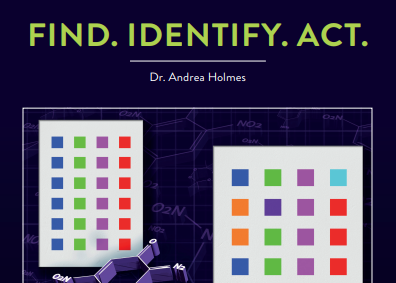Articles
These articles are about real scientists and academics – real people just like you – who are working on international and national research projects that are making a difference to our lives and the world around us. You’ll discover researchers who are using STEM / SHAPE (social sciences, humanities, and the arts for people and the economy) to follow their dreams, passions and interests – and you can too.
Each article includes:
- A glossary of key terminology
- A summary of a research project
- A researcher profile
- Personal insights into work in a specific field
- Advice on career pathways
- Links to learn more.
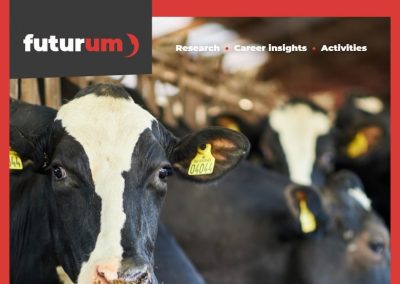
Can lactic acid fermentation disinfect manure?
Cow manure is a valuable fertiliser but can also be a biohazard as it can contain harmful bacteria. It is important to kill off pathogens before [...]
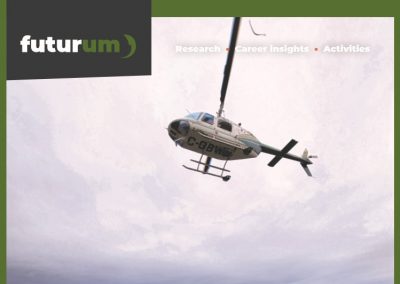
Mineral exploration: future-proofing the availability of essential metals
Metals such as copper are not often talked about, but they are essential for many electrical items that we use every day. With the rapid rise in our [...]
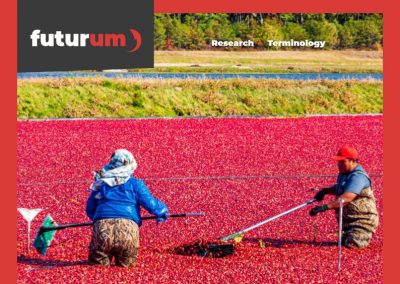
Forecasting frost to protect cranberry crops
Cranberries contribute a huge amount of money to North American economies, yet a single frosty night can destroy an entire crop in a matter [...]
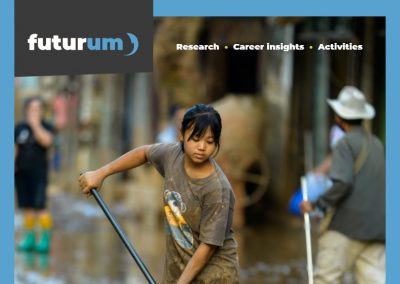
Building community resilience for disaster response
Natural and man-made disasters can destroy infrastructure and take lives – but the way that communities and organisations respond is what defines [...]
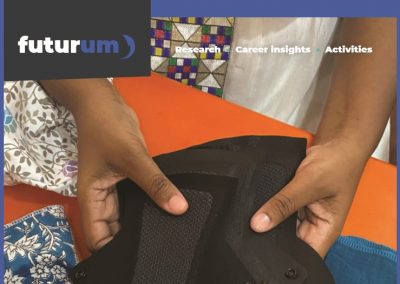
Combining textile technology with healthcare entrepreneurship for human dignity
When we think of health, we tend to think about the physical aspects – being free from pain, illness or injury. However, there is also experiential [...]
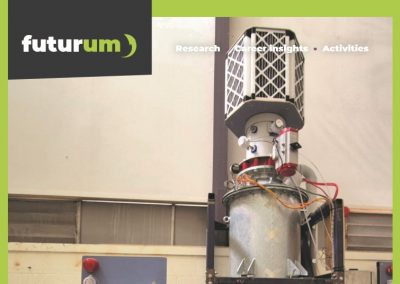
How can we transform carbon dioxide from a greenhouse gas into a valuable resource?
Most climate change mitigation strategies focus on reducing our emissions of carbon dioxide (CO2). However, direct air capture tackles the problem [...]
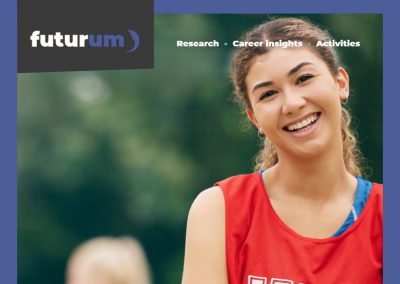
Staying on track: how do teenage athletes choose what to eat?
In Canadian high schools, around 30% of teenagers participate in school sports. However, there are limited resources available to help these [...]
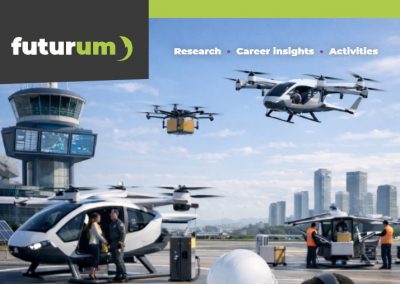
Preparing the world for the next generation of flying machines
Advanced air mobility could revolutionise how we transport people and goods. The technology for new aerial vehicles, focused on sustainability [...]

How does the gut microbiome influence the outcomes of breast cancer treatment?
There are trillions of microorganisms living in your gut. In addition to helping you digest food, your gut microbiome can impact how well [...]

Changing the narrative: how does colonialism affect healthcare research?
Whose health is studied for scientific research, whose opinions get published, and how is healthcare impacted if some people are not included [...]
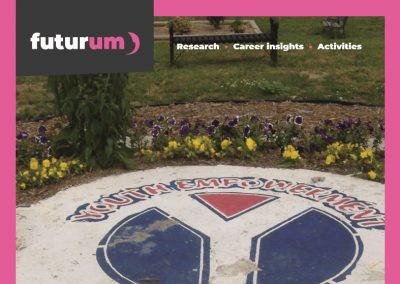
Say YES to youth empowerment – how increasing agency can reduce violence
Many young people feel like they have little control over their lives, and this feeling, along with the emotions it can trigger, can lead to violent [...]
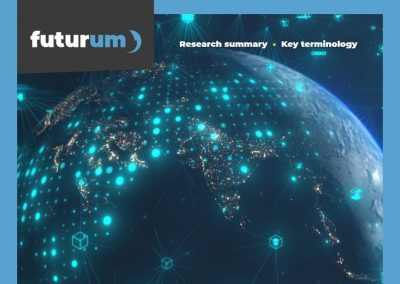
How can we use blockchain and AI to revolutionise supply chains?
Blockchain technology has taken off in recent years, and is helping to streamline and secure supply chains like never before. However [...]
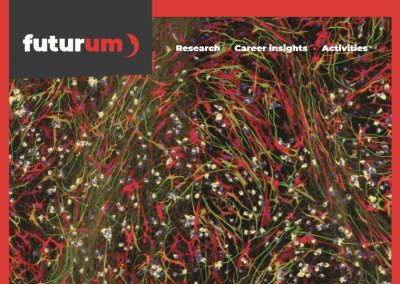
Could the brain’s over-eager ‘pruning shears’ be causing schizophrenia?
Schizophrenia is still a very poorly understood psychiatric disease. Uncovering the factors that lead to schizophrenia is no easy task [...]
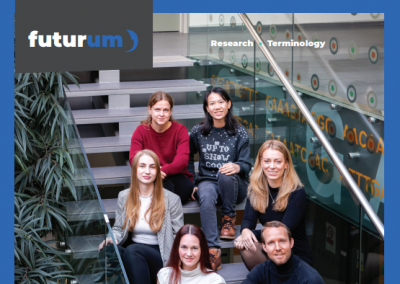
Targeting senescent cells to promote healthy ageing
As people live longer, many spend their extra years managing chronic illnesses rather than enjoying life. Cellular senescence, the accumulation [...]
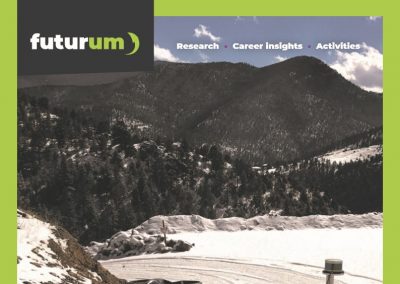
Can robot teams work together and adapt to solve problems and save lives?
From saving lives in disaster zones to inspecting infrastructure and exploring distant planets, teams of robots are beginning to transform how we tackle [...]
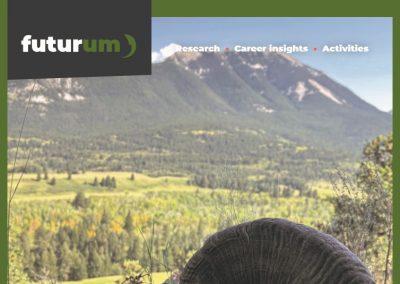
How are mathematical models helping wildlife management?
Humans deliberately manage wildlife populations for a variety of reasons, such as sustainable harvesting or to prevent overpopulation, the [...]
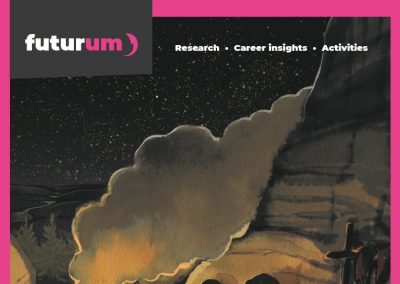
Combining scientific and traditional knowledge at Tse’k’wa
On a steep, rocky hillside in British Columbia, Canada, covered by tall trees and thick bushes, lies Tse’k’wa, an incredibly well-preserved archaeological [...]
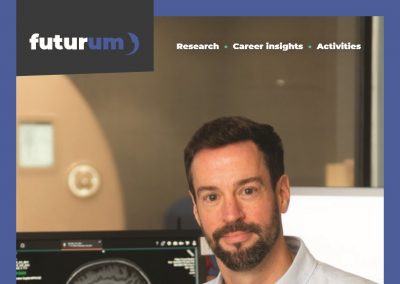
Healthy hearts = healthy brains? How protecting your blood vessels could prevent dementia
Your heart and your brain are organs with very different functions, but they are deeply connected. Dr Timothy Hughes, Associate Professor [...]
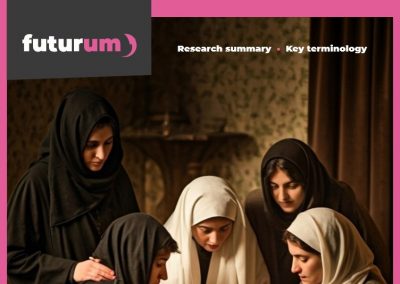
The rise of feminism in Egypt: colonialism and cultural progress
The late 19th to early 20th century was a tumultuous time for the Muslim world. The British Empire had become a colonial force, and the Ottoman [...]
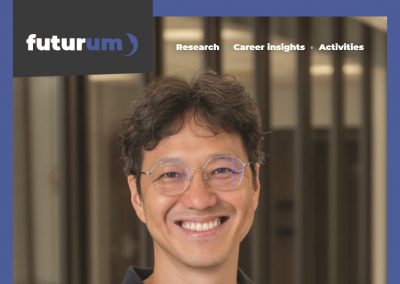
Why do our muscles get weaker with age – and can we do something about it?
As we get older, our muscles get weaker – a phenomenon known as sarcopenia. The causes of this muscular degeneration are not [...]
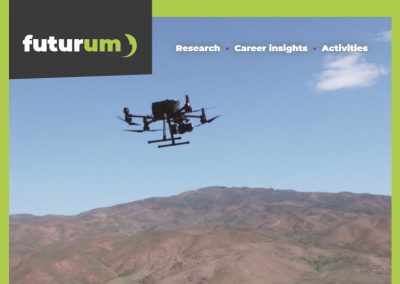
Can we predict where falling rocks will go?
Rockfalls can cause serious damage to people and infrastructure. To design useful protection measures, it is important to understand what [...]
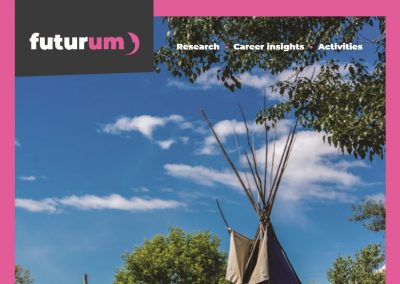
The relational determinants of health: An Indigenous journey to wellness
The belief that we are all intimately interconnected with the world around us and the beings that live in it is the foundational belief of many Indigenous [...]
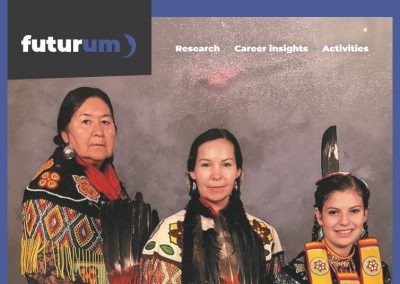
Health is wealth
Racism in healthcare is a serious barrier that prevents Indigenous peoples from receiving the care they need. At the University of Saskatchewan [...]

Making nuclear-powered space travel a reality
Nuclear reactions are capable of producing huge amounts of energy, which can be harnessed in nuclear power stations. However, current systems [...]
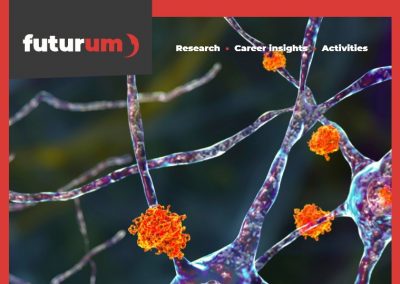
The molecular mechanisms behind a devastating disease
Huntington’s disease is a serious genetic disorder that causes problems with movement, thinking and mood, and eventually leads to death. It is known [...]

What increases someone’s risk of developing addiction?
Why are some people more likely to develop alcohol or drug problems than others? Professor Ashley Acheson, a behavioural neuroscientist at the [...]

Nuclear fusion: is endless energy imminent?
For a century, researchers have been wrangling with the science of nuclear fusion. If they crack it, we could have access to as much cheap, clean [...]
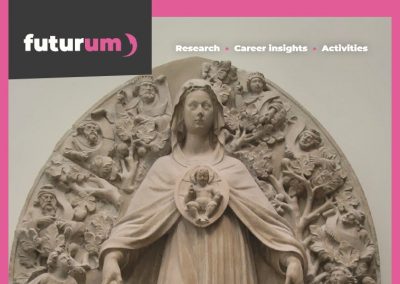
The history of science and culture through the medieval lens of alchemy
Alchemists believed that, if their mind, body and spirit were pure, they could create the Philosophers’ Stone – a substance that could heal people from [...]
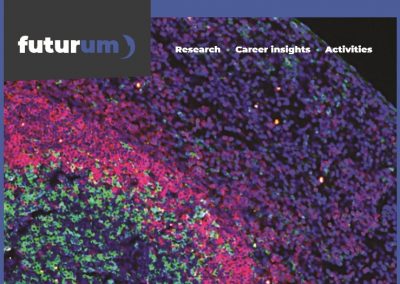
Breath by breath: how T cells protect our lungs from infection
Every day, we breathe in around 11,000 litres of air, full of microbes, dust particles and pollutants. Our lungs must work tirelessly to filter the air [...]
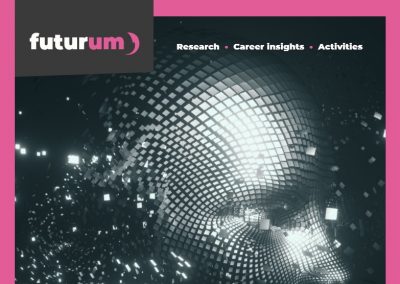
The future of AI – and why social sciences matter
However we feel about it, artificial intelligence (AI) is here to stay. The technology is advancing rapidly and will have implications for many [...]
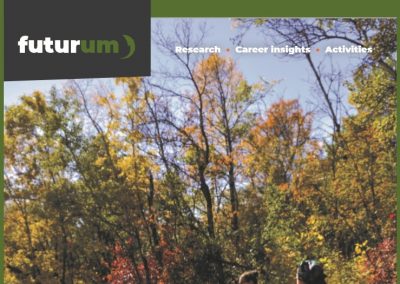
Walking against climate change
Many people feel powerless in the fight against climate change. To combat this, Dr Sheena Wilson, from the University of Alberta in Canada, and [...]
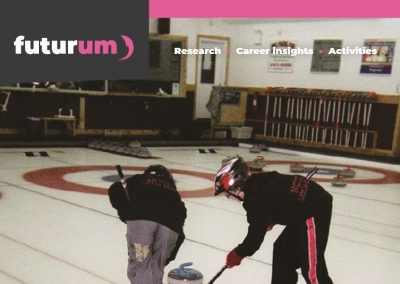
How ethnography highlighted the value of curling for communities
The sport of curling provides more than just exercise for its players. Growing up in rural Canada, Professor Heather Mair witnessed the importance [...]

The class issue: examining economic and social inequality across Canada
From shopping online to posting on social media, we generate data about ourselves all the time. To keep us safe and avoid cybercrime, it is essential [...]
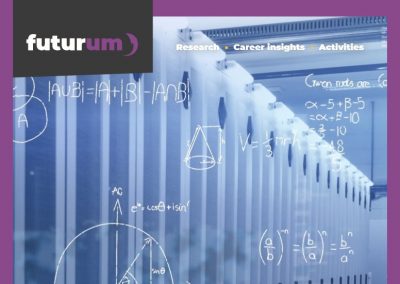
Make some noise: the mathematical theories behind data privacy
From shopping online to posting on social media, we generate data about ourselves all the time. To keep us safe and avoid cybercrime, it is essential [...]

How is AI improving smart biomedical devices?
Advances in artificial intelligence (AI) are creating new possibilities for biomedical systems – the implantable or wearable devices that support [...]
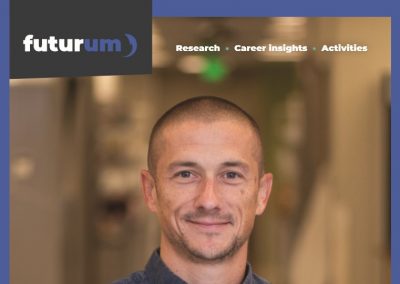
Could oddly behaving mitochondria hold the key to treating leukaemia?
Blood cancers, such as leukaemia, are challenging to treat. Usually, chemotherapy does not kill all the cancerous cells, and the surviving [...]
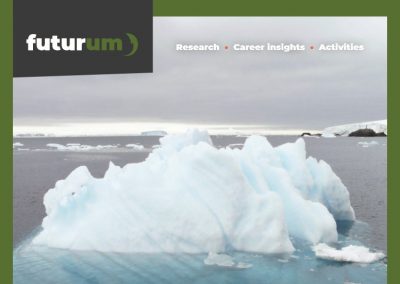
Iceberg hunting: how well can we predict the distribution of icebergs?
Ever since an iceberg sank the Titanic in 1912, scientists have been attempting to track their movements across the oceans. However, predicting [...]
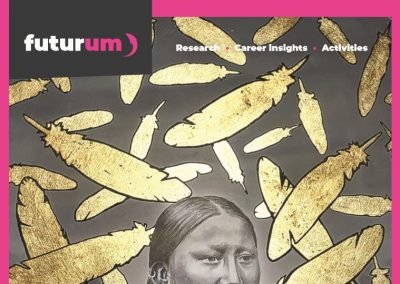
Challenging the legacy of colonialism: advocating for the rights of Indigenous women and girls in Canada
In Canada, Indigenous women face disproportionately high levels of violence and are greatly overrepresented in long-term and unresolved missing [...]
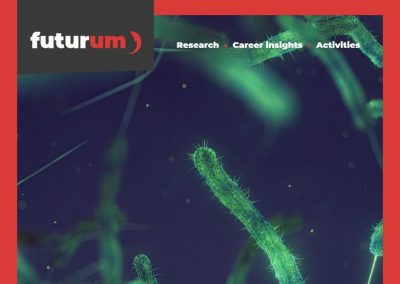
Tackling climate change with gas-guzzling microbes
Climate change, and its catastrophic effects on the world, are gathering pace. Even if we completely stopped emitting greenhouse gases tomorrow [...]
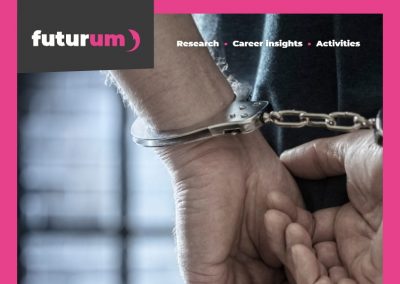
What causes wrongful prison convictions?
At Toronto Metropolitan University in Canada, Professor Caroline Erentzen is a social psychologist researching wrongful convictions. With 2% to [...]

How did a Renaissance printer shape the books we read today?
More than five centuries ago, the printer Aldus Manutius permanently changed how people read and shared knowledge with the publication [...]
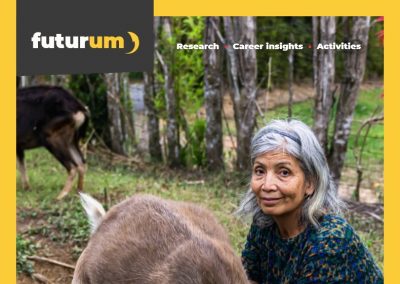
How can conservation agriculture improve the climate resilience of women farmers?
Women who farm on small plots of land to produce food and income for their families are particularly vulnerable to the impacts of climate change [...]
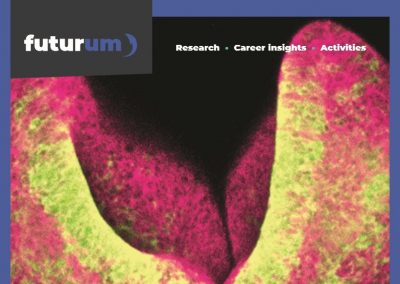
How do rare genetic disorders affect vitamin B12 metabolism and embryonic development?
Vitamin B12 plays a crucial role in our growth and development. Without it, our bodies cannot produce healthy blood cells or maintain a functioning [...]
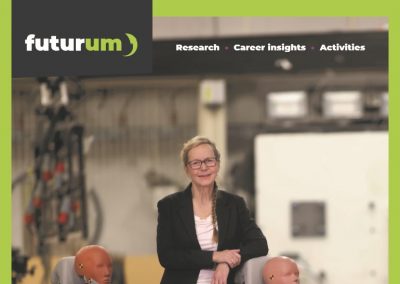
Road traffic safety for dummies: the world’s first average female crash test dummy
Crash test dummies are used extensively in the development of safety features for cars and other vehicles. However, global regulations only [...]
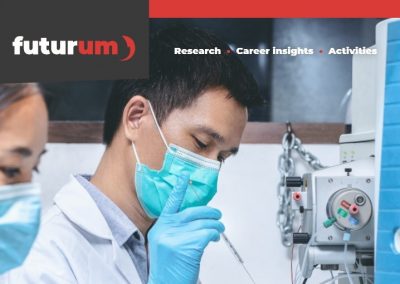
Searching for enigmatic biomarkers to address a devastating degenerative disease
Friedreich’s ataxia is a genetic disorder that damages the nervous system and dramatically reduces life expectancy. It is caused by low levels [...]
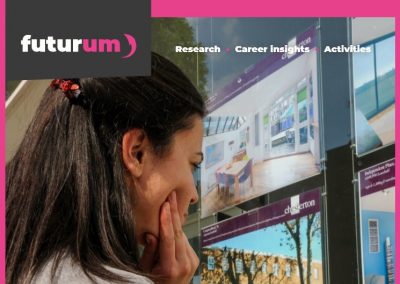
Is it harder to buy a house these days, or have young people been eating too many avocados?
Today’s younger generations are finding it harder to buy homes than previous generations did. So, are younger people being less responsible with [...]
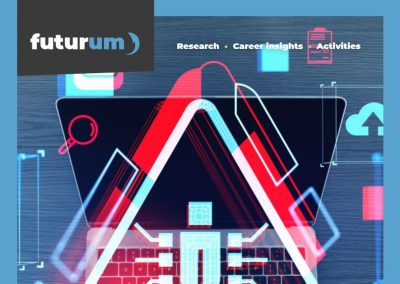
Bugs and artificial intelligence: what is happening in the field of software engineering?
Software plays a huge role behind the scenes of our lives, but there can be disastrous consequences when it malfunctions. Dr Masud Rahman, a software [...]
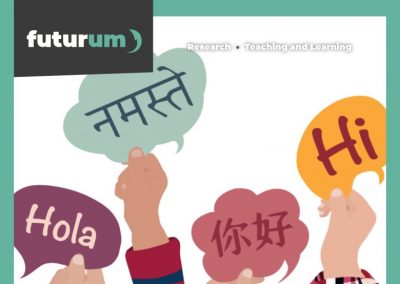
Embracing bilingualism to heal and empower teachers and students
In an era where multilingualism is the norm rather than the exception, many schools still privilege a narrow version of ‘standard’ English which overlooks [...]
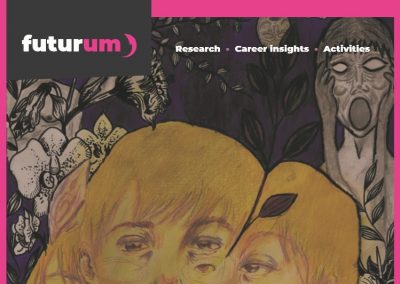
How can portraits and podcasts change perceptions of disability?
Disability is often portrayed as something undesirable, something that prevents people from living a happy, healthy and fulfilling life. Creating [...]
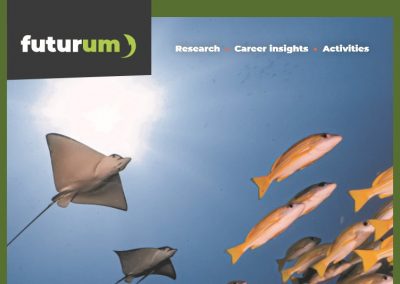
Ocean soundscapes: how do fish hear?
To our human ears, the sounds of the ocean can be strange and disorientating. Fish, however, have ears that are adapted to life below the [...]
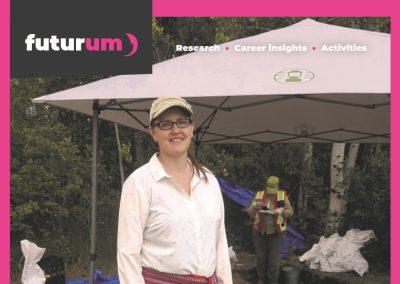
Bringing Indigenous rights, leadership and knowledge into archaeology
The impact of Canada’s colonial history continues to be felt today through outdated practices that are not inclusive of Indigenous populations. This [...]
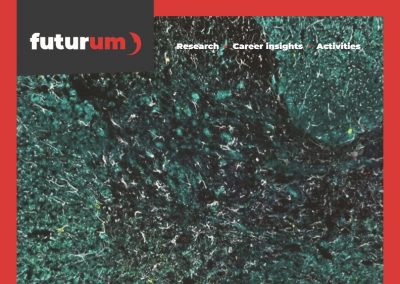
How do immune cells ‘evolve’ to protect us?
Your immune system is constantly updating to protect you from harmful diseases, but how does it do this? At Western University in Canada [...]
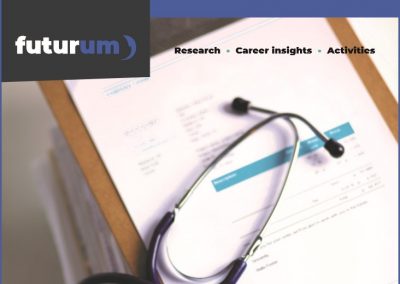
In evidence we trust: how do doctors decide which treatments to recommend to their patients?
Our bodies are incredibly complex, and so are the diseases and disorders that make us sick. In order to make us better, doctors and healthcare [...]

What can data tell us about the long-term effects of surviving childhood or adolescent cancer?
Our childhood and teenage years are full of milestones and transitions that impact the rest of our lives. For children and adolescents who receive [...]
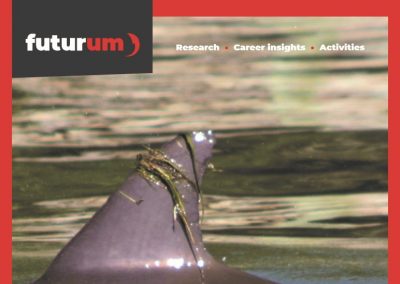
What can biostatistics teach us about dolphin culture and communication?
Dolphins are known for their intelligence, but do they also have their own culture? Dr Ann Weaver, an ethologist and biostatistician at Good-Natured [...]

Rituals that build, break, include or exclude: the hidden dynamics of start-up life
Entrepreneurship involves navigating uncertainty, managing visibility and building trust. While these dynamics are widely acknowledged, the subtle [...]

Girls+Sports: using law and data to address gender inequality in school sports
Although laws in Canada forbid discrimination in schools, barriers to participation in school sports still exist – especially for girls. Dr [...]
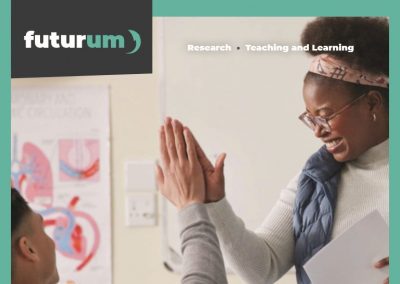
Beyond grades: rethinking how we measure student success
Although schools and teachers rely on point-based assessments to evaluate individual student and whole school attainment, current research [...]
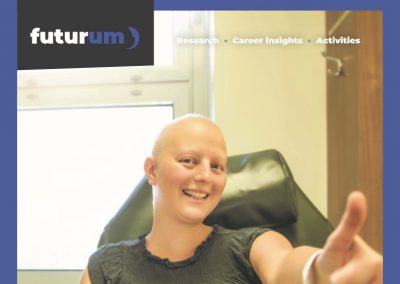
How philanthropy is improving cancer care and oncology research
Following the death of their beloved husband and father, the Eisenberg family established the Harold E. Eisenberg Foundation in his honour. This [...]
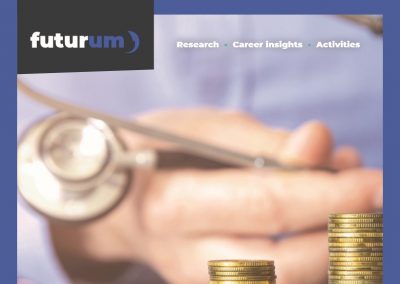
Financial toxicity: understanding the costs of cancer care
In many countries, including the US, patients have to pay for their healthcare. When diagnosed with a disease that requires expensive [...]
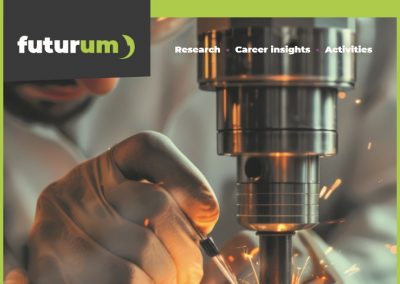
Making metals: how are engineers developing new composite materials and manufacturing processes?
New composite materials are pushing the boundaries of what we can create. At the University of Wollongong in Australia, Distinguished Professor [...]
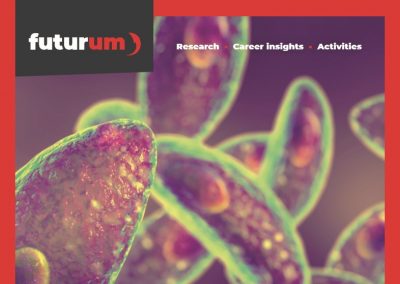
Targeting the hidden threat: what the cell cycle of Toxoplasma gondii can teach us about fighting infection
Toxoplasma gondii is a microscopic parasite that infects nearly every warm-blooded animal on Earth – including humans. Although many people [...]
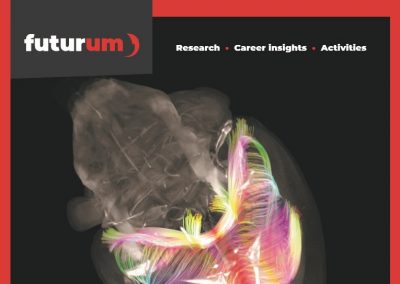
Unlocking new neuroscience frontiers by imaging the intricacies of the mouse brain
Many mysteries of the brain remain unsolved. At Duke University in the US, Professor Allan Johnson and Associate Professor Leonard White are pushing [...]

Environmentally friendly heating: what’s the solution?
At McMaster University in Canada, Dr Marilyn Lightstone is a Professor of Mechanical Engineering researching how to reduce greenhouse gas [...]
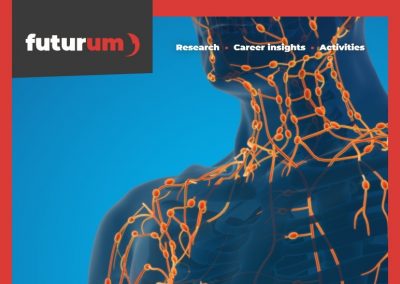
Targeting the lymphatic system as a new gateway for effective drug delivery
The lymphatic system is a vitally important network within the body. While its most obvious functions have been known for a long time, it plays [...]

Beauty is more than skin deep: how African American women used beauty to change history
Beauty is often dismissed as superficial, but for African American women, it has long been a powerful form of resistance, identity and self-expression [...]
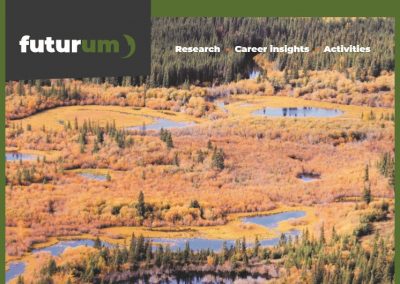
Wetlands in a changing world: the climate benefits of wetlands
Wetlands are humid, damp environments where the boundaries between land and water become blurred. Here, you might find trees, shrubs, grasses [...]
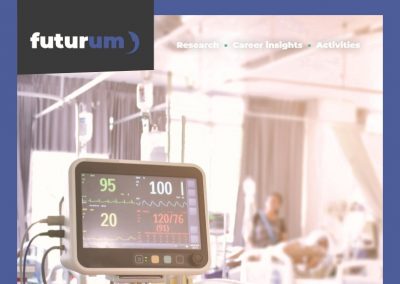
Can a learning health system optimise emergency care?
Hospitals’ emergency departments are intense places, where the speed and efficiency of care is key for good patient outcomes. However, these [...]
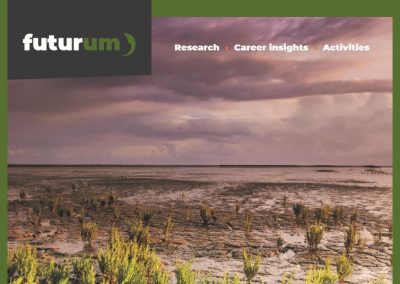
How can plants clean contaminated soils?
Soil contamination is a global issue. Human activities cause toxic chemicals, heavy metals and salts to seep into soils, damaging natural ecosystems and [...]
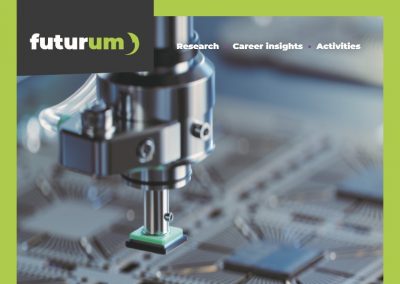
Harnessing DNA to make cutting-edge nanoscale semiconductors
Computer chips and the semiconductors they are made from are getting progressively smaller and more sophisticated. Manufacturing techniques [...]
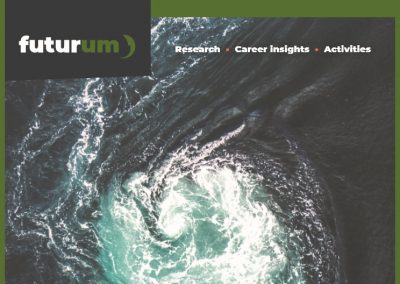
Modelling the effects of climate change on complex ocean currents
Ocean currents are complicated systems, and their transport of heat, nutrients and oxygen around the planet is vital for life as we know it. The [...]
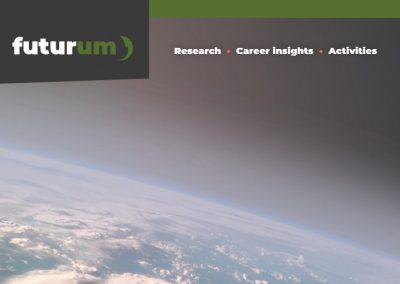
How do atmospheric radiation models help us understand climate change?
Our atmosphere is dynamic and ever-changing, constantly balancing incoming radiation from the Sun and outgoing thermal radiation emitted [...]
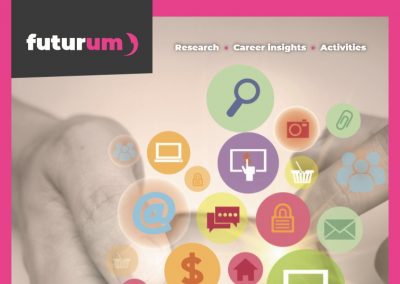
What are the effects of data portability?
Each time we do something online, we generate data, and our online activity is increasing all the time. Over 90% of the world’s data has been created [...]
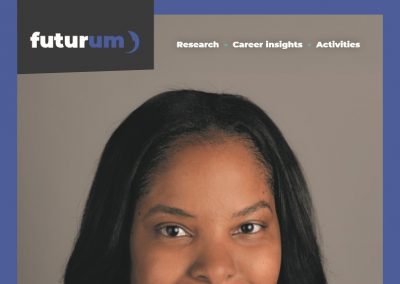
How are social factors linked to heart failure?
There are many physical factors that can impact our health, such as age, genetics, and physical mobility. However, social, educational and economic [...]
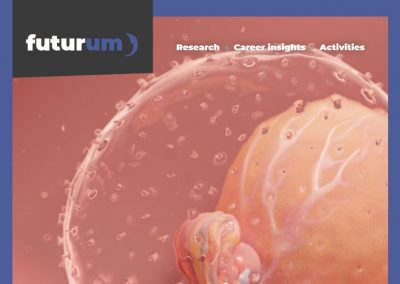
Exploring the cell structures that boost babies’ brain growth
Lipid rafts are structures found in cell membranes that are essential for healthy brain development. As a neonatologist at the Rainbow Babies [...]
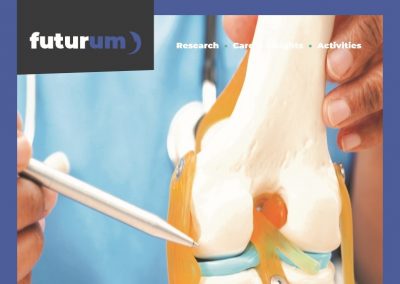
Knees, noses and NASA: how can microgravity help us study and test bioengineered cartilage?
Knee osteoarthritis is a debilitating condition that affects 250 million people worldwide, occurring when the tissues in the knee joint gradually [...]
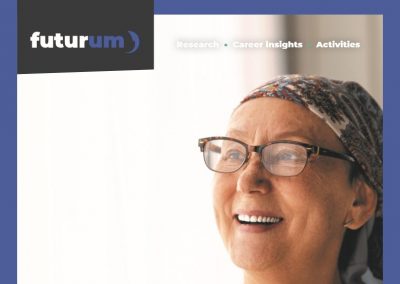
Palliative care psychiatry: easing the emotional burden of life-limiting illnesses
When someone is diagnosed with a serious illness, such as cancer, the physical toll is only part of the story. Psychological distress – like depression [...]

How do organic micropollutants affect fish?
Wastewater treatment plants remove contaminants and pollutants from water before releasing it back into the surrounding aquatic ecosystems [...]
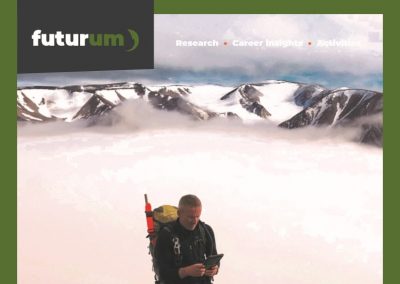
Exploring other worlds by exploring our own
Exploring the planetary bodies in our Solar System poses many challenges – but understanding Earth is a good place to start. Dr Gordon Osinski, a [...]
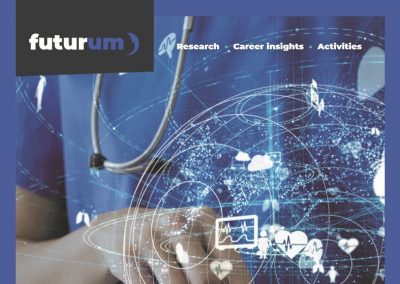
Designing systems to build access to high-quality stroke treatments across Canada
There is often a big difference in the quality of healthcare received by patients living in urban and rural areas, usually due to proximity to [...]

Caught in a trap: how to capture a quantum dot
Many new quantum technologies will rely on the precise manipulation of single photons; however, most light sources produce photons randomly [...]
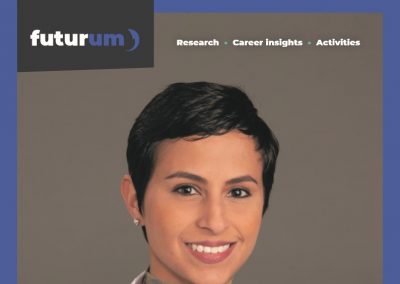
Why is geriatric cardiology a rewarding field to work in?
Dr Maria Octavia Rangel from Wake Forest University School of Medicine in the US has been making significant changes to the lives of older adults [...]
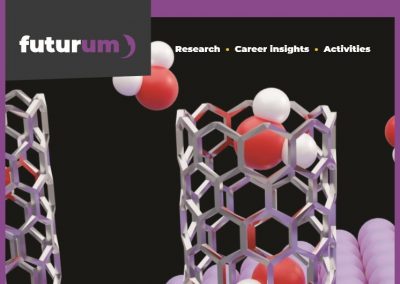
How can tiny holes detect DNA and generate electricity?
Nanotechnology is transforming the world around us. At the University of Illinois Urbana-Champaign in the US, Professor Jean-Pierre Leburton [...]
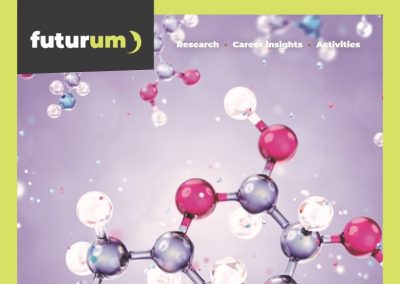
Creating carbohydrates: how can synthetic carbohydrates improve modern medicine?
For plants, creating carbohydrates is as simple as breathing. Using sunlight, water and carbon dioxide, they spend their days quietly making glucose [...]
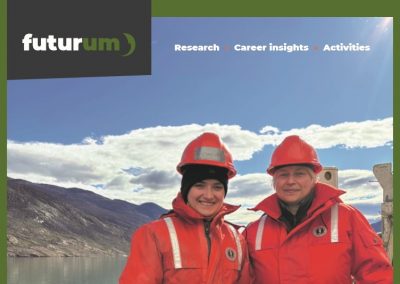
How is carbon stored in seafloor sediments?
In the summer of 2024, Dr Émilie Saulnier-Talbot, a biogeographer from Université Laval, and Dr Hilary Corlett, a geologist from Memorial University [...]
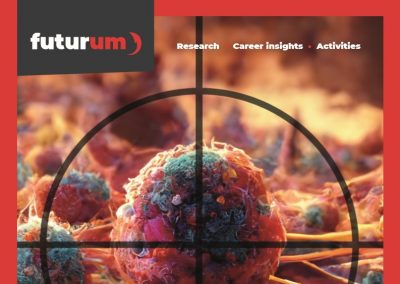
Building a new protein to fight brain tumours
Did you know that scientists can build new proteins in much the same way that you can build something out of Lego? Professor Lali Medina-Kauwe, a [...]
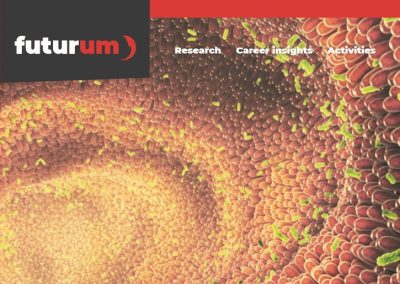
Exploring the link between the gut microbiome and Alzheimer’s disease
Alzheimer’s disease is a progressive neurodegenerative disorder that affects memory, thinking and behaviour. While its exact causes remain unclear [...]
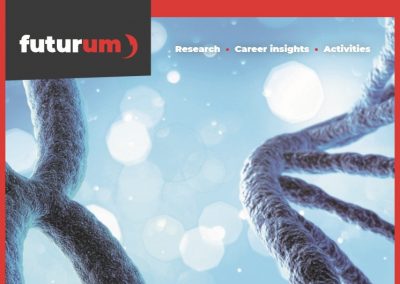
Could ingenious gene therapy prevent health issues associated with Down syndrome?
Down syndrome is a genetic developmental disorder that leads to a range of health issues. It is caused when someone inherits three copies [...]
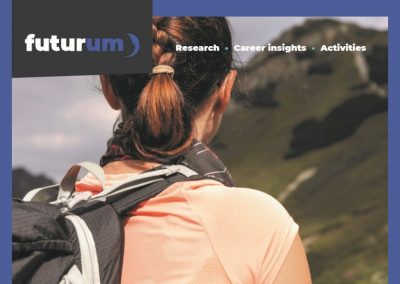
How can wearable sensors help monitor health and tailor drug treatments?
Currently, most healthcare is based on reactive medicine; when we get sick, we go to a doctor who prescribes us some medicine or a treatment that will [...]
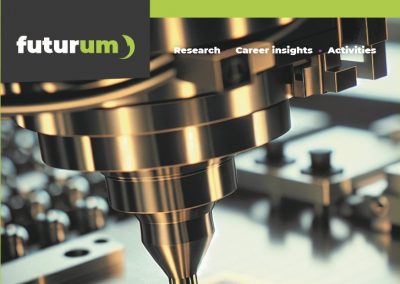
Turbocharging nanofabrication skills for an automated society
Semiconductors are critical for computing. As society becomes increasingly automated and emerging technologies like artificial intelligence become [...]
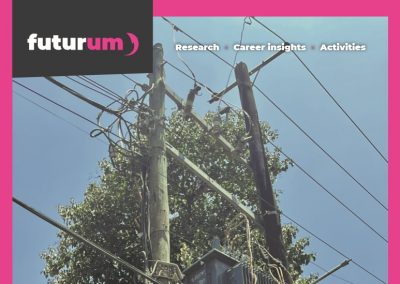
How does access to electricity impact citizens in Kenya?
Over the past decade, access to electricity in Kenya has increased rapidly. As a result, it currently has one of the highest levels of electricity access in [...]
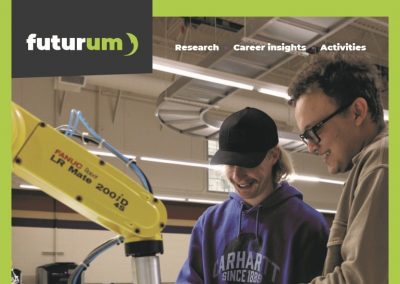
The CCAC Makerspace: helping students’ innovative ideas become reality
Approaches to entrepreneurial product design and development are changing rapidly, as new technologies like 3D printing and sophisticated computer [...]
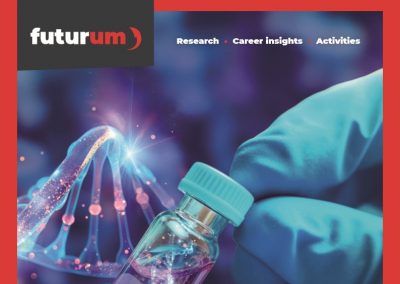
Unveiling the epigenetic switches behind immune responses
When a person has a terminal illness, they and their family may not receive optimal palliative care. Quality palliative care focuses on alleviating [...]
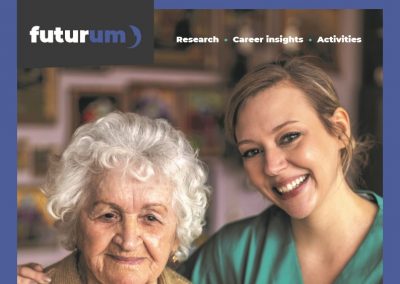
Quality palliative care for people living with dementia
When a person has a terminal illness, they and their family may not receive optimal palliative care. Quality palliative care focuses on alleviating [...]

All mixed up: how can robots help us understand turbulence and mixing in the Arctic Ocean?
The Arctic Ocean is a unique environment that can tell us a lot about global climate change. Professor Stephanie Waterman, from the University of British [...]
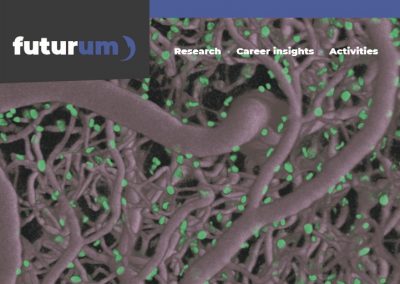
Can functional imaging and image-guided therapy revolutionise treatments for neurological disorders?
Functional imaging allows us to see how our bodies work from the inside out, while image-guided therapy uses information from medical images [...]
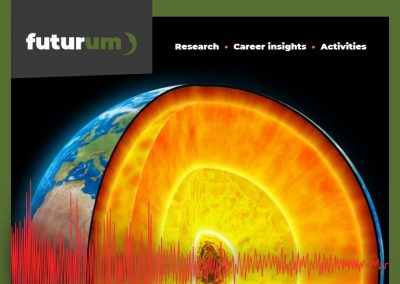
What can seismic waves tell us about Earth’s history?
Studying the hidden structure of our planet is essential for understanding Earth’s geological past and predicting its future. Dr Fiona Darbyshire, a [...]
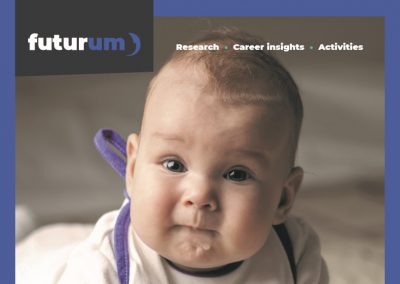
How can saliva help us diagnose and care for newborn babies?
Caring for newborn babies, particularly those born prematurely, can be a tricky business. They are unable to tell caregivers how they are feeling [...]

How can we see air pollution with a camera?
Air pollution is a growing concern worldwide, affecting health, climate and weather systems. Scientists use special tools to measure tiny particles [...]

Finding common ground: how can we reduce political polarisation?
Politics is often a divisive topic, as people have strong views about politicians, governments and how society should be organised. At [...]

Breeding better beans: how understanding plant genetics can improve the appearance of beans
Beans are tasty, versatile and in high demand. However, many varieties darken after harvesting, making them undesirable to consumers which [...]
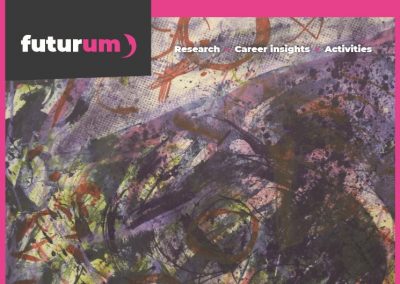
Can art help scientists see more clearly?
Scientists rely on observation to collect data, but what if their personal perspectives and biases influence what they see? Dr Christina [...]

Linguistic diversity in the classroom: Embracing multilingual perspectives and pedagogies
Despite the cultural and linguistic diversity present in classrooms across various parts of the world, many education systems still follow monolingual [...]

Evidence-based medicine: placing scientific evidence and patient values at the centre of healthcare
Deciding between different treatment options can be a stressful and unnerving time for patients. To make such a decision, patients need [...]
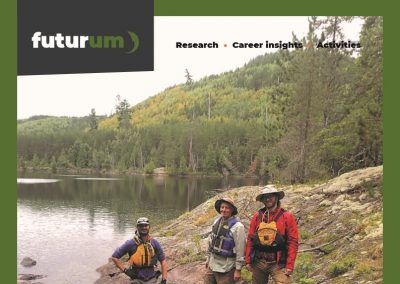
What sedimentary rocks can tell us about the evolution of Earth’s atmosphere
Rocks have a lot to tell us about the history of our planet. Geologists study rocks to identify the clues they hold and decipher the answers they reveal [...]

GEMINI: a brighter path for managing chronic pain
Chronic pain affects millions of people and often leads to reduced functioning, depression and a diminished quality of life. Niina Haas, [...]

Dancing for change: how 1980s dance parties shaped LGBTQ2+ liberation
“When we are on a dance floor, we can experience collective joy and glimpse alternative ways we might live our lives,” says Dr Craig Jennex, an LGBTQ2+ [...]
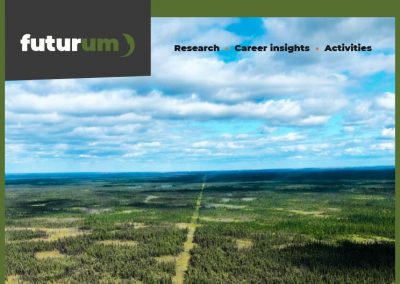
Studying and restoring Canada’s peatlands and their carbon storage superpower
Healthy peatlands capture and store a huge amount of carbon, helping to mitigate climate change. However, industrial activities, such as oil and [...]
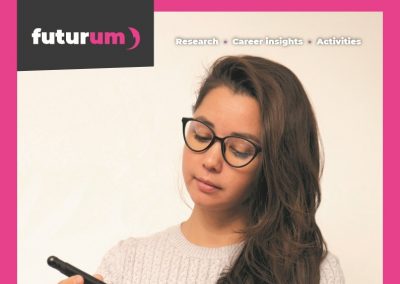
Can better glucose monitoring improve workforce participation for people with diabetes?
Over 38 million people in the US have diabetes, a chronic illness that can have serious health and economic consequences. Dr Belinda Román, an [...]
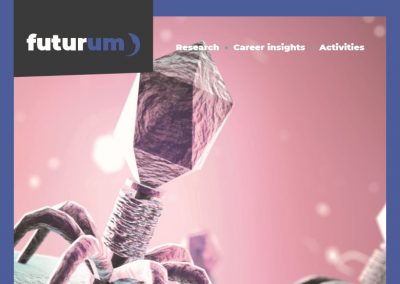
How can studying bacteria and their viruses help us find solutions to the problem of antibiotic resistance?
Antibiotic resistance presents a major threat to humanity: if we can not protect ourselves from bacterial infections, deaths from these diseases will [...]

Diagnosing the fungal infection talaromycosis earlier to save lives
Talaromycosis is a fungal infection found in Southeast Asia and is life-threatening for people living with HIV and other immunocompromising [...]
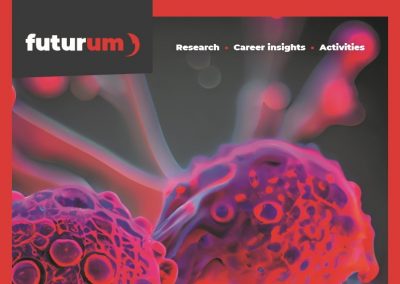
Exploiting an immune response to alter the side effects of cancer treatment
Chemotherapy remains a powerful but unpleasant treatment for cancer patients, often causing severe side effects as it impacts healthy tissues [...]

The Elite Africa Project: what is it and why does it matter?
The word ‘elite’, used to refer to a person of high status who holds a lot of power and influence, often has negative connotations. This is especially [...]

Immunology: understanding our body’s defences
Immunology plays a critical role in medicine, helping scientists understand allergies, autoimmune disorders, and how the immune system fights [...]

Detecting pancreatic disease using artificial intelligence and human ingenuity
The pancreas is a vital organ for digestion and metabolism, so when issues arise, it is important to diagnose and treat the issue effectively. However [...]

Celebrating who you are: how clothing shapes LGBTQ+ and feminist weddings
How do your clothes make you feel? And why is this important? At the University of British Columbia in Canada, Dr Ilya Parkins is investigating [...]

The history of hair: tracing its roots to early origins
Hair is unique to mammals and has driven mammalian evolution. However, the origins of hair-producing cells, and the genes that code for them, go[...]

Redefining mental health services: the power of co-production and self-guided recovery
In recent years, as attitudes towards mental health conditions have become more accepting and supportive, our mental health services have begun [...]

How has photography shaped ornithology and bird conservation?
How do you feel when you see a photo of a majestic eagle soaring through the sky, or of a dead seabird tangled in a fishing net? What can you learn [...]

Unlocking student potential: how museum visits enhance learning and bridge social gaps
Museum education can be a powerful tool for enhancing student engagement and bridging social inequalities in learning. Professor Anik [...]

How can artificial intelligence help to create a more inclusive labour market?
When applying for work, everyone should experience a fair recruitment process. Unfortunately, this is not always the case, as human biases can [...]

How can churches promote health equity in African American communities?
Following centuries of injustice, many African Americans mistrust medical institutions. Dr TanYa Gwathmey co-leads the Triad Pastors Network [...]

How food insecurity affects health – and how healthcare can help
Globally, 2.4 billion people are unable to access or afford sufficient food to meet their nutritional needs1. Even in the US, one of the wealthiest countries [...]

Can lifestyle choices protect your brain as you age?
As we grow older, maintaining cognitive health becomes increasingly important. Dr Tina Brinkley, a gerontologist at Wake Forest University [...]

Climate change in the Arctic
The impacts of climate change are all around us, but research in certain locations can provide particularly fascinating insights into this global issue [...]

Saving lives with coding: the global impact of an undergraduate project
Every piece of digital technology that we use, from smartphones to gaming consoles, relies on code that is written and designed by people. At the [...]

What is parenting like today compared to the past?
Have you ever wondered what childhood was like forty years ago? Or considered how historical and social contexts affect how parents raise [...]

How can the transistors in your smartphone form quantum dots?
Quantum engineering likely holds the key to the next technological revolution. But this does not necessarily require developing new [...]

What can amoebas teach us about mitochondrial dynamics?
Understanding how our cells function is vital for addressing some of today’s most challenging diseases, from genetic disorders [...]

Fostering STEM success in Puerto Rico
Many students face challenges outside the classroom which prevent them from reaching their full academic potential in STEM subjects. At the [...]

Beyond the spill: the hidden effects of crude oil pollutants on fish behaviour
How do pollutants like crude oil affect aquatic life, specifically fish? At the University of Alberta in Canada, Professor Keith Tierney is exploring how [...]

What could you achieve with a career in primary care nursing?
Do you want a rewarding and fulfilling career that improves the lives of others? Would you like to participate in community-focused work in which [...]

Improving attention and focus in classroom environments
Maintaining students’ concentration has often been a challenge, but for many teachers, this is now especially true thanks to the rise of [...]

Reimagining mathematics teaching: Dr Elle G. Brayic’s Math Academy and the path to confidence
Mathematics often evokes a sense of dread among students, leading many to believe they simply ‘can’t do mathematics’. Dr Jennifer Holm, a mathematics [...]

How do our brains extract information from faces?
Most of us can tell how someone might be feeling just by looking at their face. But, how do we do this? At the University of Waterloo in Canada [...]

How can we measure time?
Learning to tell the time is one of the key skills we are taught as children; but take a moment to think about it, and you may find the concept of time [...]

Killer whale conversations and conservation: eavesdropping with artificial intelligence
Killer whales, or orcas, are some of the most intelligent and socially complex animals on the planet. At Simon Fraser University in Canada [...]

The hidden chemicals affecting primates’ hormones
In many of the world’s rainforests, human activities threaten the survival of our closest living relatives: primates. Some of these activities, such [...]

Bridging cultures for better healthcare: how the Ktunaxa Nation is leading health systems transformation
The legacy of colonialism continues to dominate the design and implementation of Canadian systems and institutions, including [...]

How can protecting our telomeres help us live longer, healthier lives?
Telomeres, sections of DNA tacked on to the end of chromosomes, play a crucial role in the ageing process. Much like the protective tips at the [...]

What do quantum physicists know about gravitational waves and dark matter?
Did you know that dark matter makes up over 85% of the Universe’s mass, but scientists have never been able to detect it? And that some [...]

Improving treatment options for people with ankylosing spondylitis
Ankylosing spondylitis (AS) is a serious form of spinal arthritis. Unlike most forms of arthritis, which generally affect older people, AS tends to [...]

What was the role of French colonial companies?
Studying the role that commercial and colonising companies played in the formation of the French empire and state reveals some surprising [...]

Vaccines: building confidence and tackling mistrust
The ability to be vaccinated against infectious diseases is a wonder of the modern world, yet mistrust in vaccines is an ongoing issue that is a real [...]

How do role models shape moral frameworks in a democratic society?
At York University in Canada, political theorist Nicholas Poole is exploring how role models influence our sense of right and wrong. His research [...]

Embracing multilingualism in the classroom
Many learners around the world face educational challenges since their languages are not recognised in classrooms. Dr Tracey Costley and [...]

Why is it hard to build quantum computers?
Quantum computers have the potential to revolutionise technology. But at the moment, they do not work very well! Dr Salini Karuvade, a theoretical [...]

How do brain processes bias our decision-making?
Our lives are defined by the decisions that we make. Coffee or tea? English or Mathematics? University or an apprenticeship? We spend hours [...]

What can historical letters teach us about past societies?
Before the internet and mobile phones, people wrote letters to stay in contact. The contents of these letters provide historians with [...]

Bringing beekeeping and berry farming to Alberta
The Canadian province of Alberta is one of the most agriculturally productive regions in the world, yet new farmers face many obstacles [...]

How should we interact with strangers on the bus?
Travelling on public transport gives us a unique opportunity to cross paths with people from all walks of life. But how do we know how to behave [...]

Transforming agriculture with solution-driven science
In recent years, the agricultural industry has faced unprecedented challenges due to emerging pests and diseases threatening crop [...]

Inspiring high school students in clinical research
Working as a clinical researcher can have massive, positive effects on other people’s lives, giving them the opportunity to live longer and [...]

Decoding RNA mysteries: a new era for biology and medicine
RNA modifications critically influence the structure and function of RNA molecules, impacting health, biotechnology and agriculture. To overcome [...]

Changing the world to a circular economy
Worldwide, more than two billion metric tons of municipal solid waste is produced each year. By 2050, this figure is predicted to increase by 70%. [...]
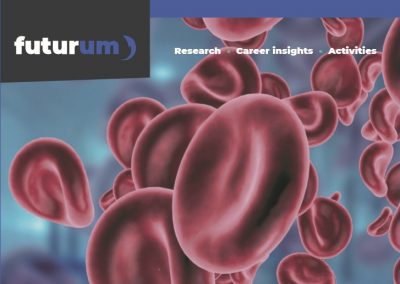
Unlocking the secrets of iron regulation in the human body
Iron is crucial for many biological functions, but maintaining its balance in the body is a complex challenge. Dr Kostas Pantopoulos from [...]
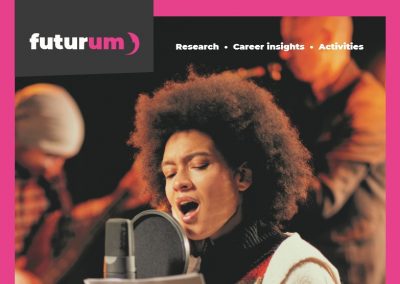
Exploring how arts and culture benefit our health
While we might hold the instinctive feeling that engaging with arts and culture is good for our health and wellbeing, investigating the extent [...]
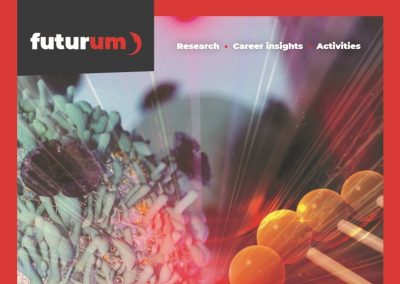
Telomeres: the chromosome tips that stave off ageing
The ends of our chromosomes are capped with structures called telomeres, which protect our DNA when cells divide. Over time, chromosomes get [...]
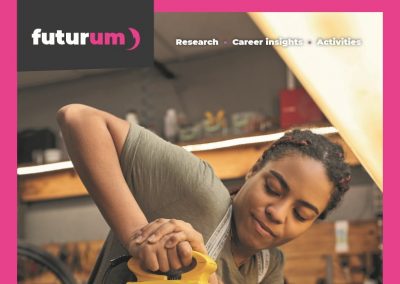
How do young people manage their career pathways?
Finding a good job that is well-paid and satisfying is becoming increasingly difficult for many young people. Professor Jason Heyes, [...]
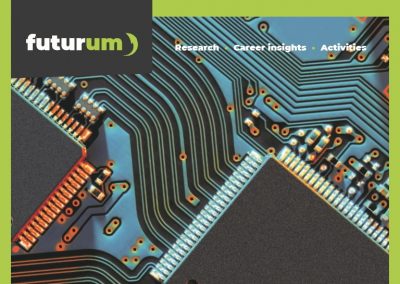
How are flexible electronic devices solving healthcare challenges?
Advances in healthcare are not only made by healthcare professionals. Led by Dr Radu Sporea, a team of electronics engineers and surgeons at [...]
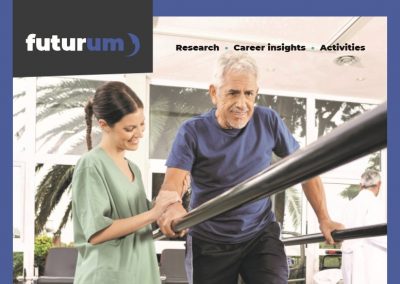
How does exercise help recovering stroke patients?
The after-effects of a stroke can severely alter a person’s quality of life. Effects range from mobility issues to changes in brain function. However [...]
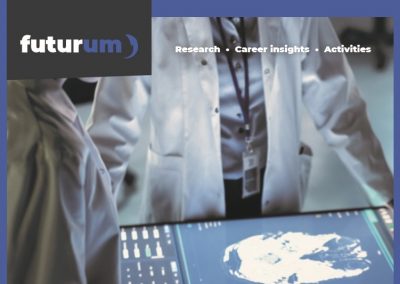
How are strokes, dementia and depression linked?
At Western University in Canada, Dr Jamie Fleet and Dr Stephanie Frisbee are collaborating to improve health outcomes for people affected by [...]
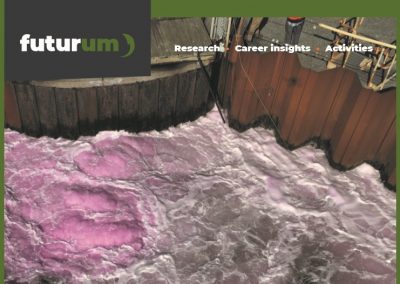
Can ocean alkalinity enhancement reduce atmospheric carbon dioxide?
We must urgently and dramatically reduce our carbon dioxide (CO2) emissions. However, even if we completely cut emissions tomorrow, the [...]

Commuters on computers: how is technology changing the way we live in our cities?
Smartphones, air pods and the internet are now essential items in many city-dwellers’ survival packs. In the hustle and bustle of the morning [...]
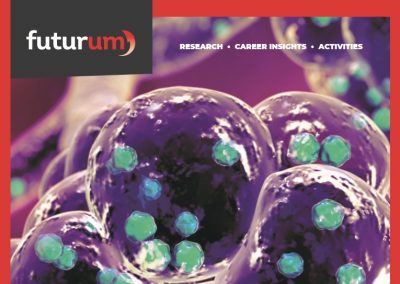
A new paradigm in antibiotic research
Used for treating bacterial infections, antibiotics are an essential part of modern medicine. However, this crucial treatment option is in jeopardy [...]
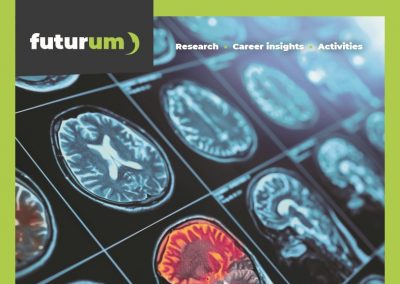
Can brain cooling revolutionise stroke treatment?
A stroke is a life-threatening condition in which oxygen is prevented from reaching the brain, causing brain cells to die. At Western University in [...]
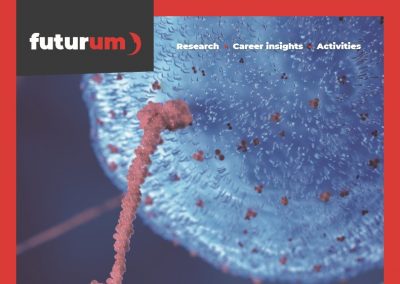
How do motor proteins help cells maintain their structure and internal organisation?
How do cells receive developmental cues and other specialised signals? How do your airways prevent dangerous particles from reaching your [...]
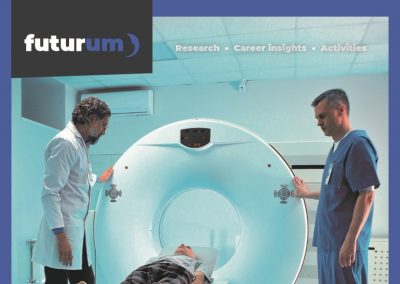
How can new biomedical imaging techniques help us understand strokes?
Strokes can be devastating. Depending on their severity, they can cause issues with movement and muscle control, a loss of feeling and [...]
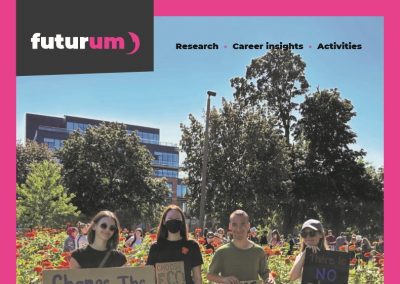
Exposing environmental injustice through maps and stories
Often, it is society’s poorest and most vulnerable people that are most exposed to environmental harm. This injustice is the subject of [...]
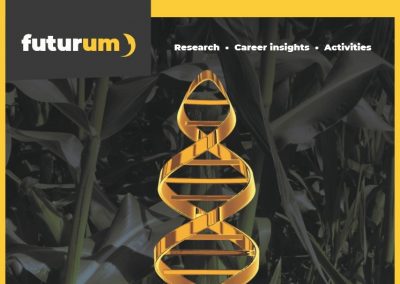
Separating fact from fiction in agricultural misinformation
Social media is a hotbed of fake news and false claims about a huge range of topics. At the University of Guelph in Canada, Dr Ataharul Chowdhury is[...]
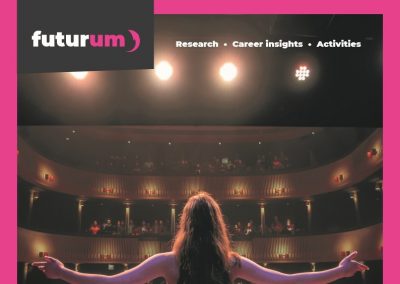
Learning in the spotlight: cutting-edge technology to help performers reach their full potential
Whether in music, business, sport or any other performance field, performing in front of an audience is very different from [...]
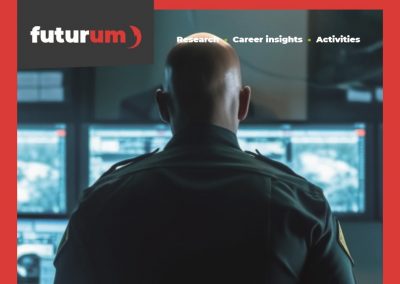
Improving police performance by training officers to manage stress
Policing is a high-stress occupation in which making mistakes can have serious consequences. Dr Judith Andersen, a Canadian researcher [...]

How much should political parties know about you?
With so much of our lives shared online these days, it is often easy to get hold of someone’s personal data. Political parties can use this [...]
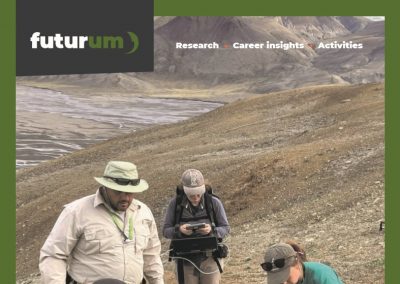
What can Arctic rocks teach us about life on Mars?
On top of snow-capped mountains high in the Canadian Arctic, giant slabs of rock may hold the answers to an age-old question: is there life on [...]
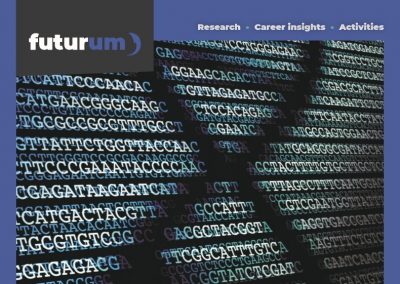
Understanding haemophilia, one amino acid at a time
The hereditary blood disorder haemophilia B can have huge health implications, but it is still far from fully understood. At the University [...]
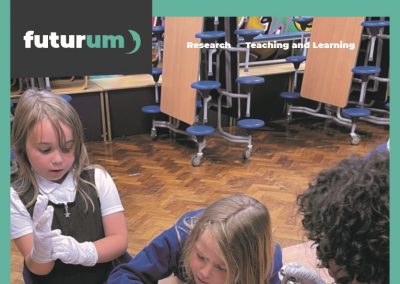
Engaging history: the educational impact of medieval objects
At the University of Chester in the UK, historians Dr Katherine Wilson and Dr Thomas Pickles are seeking to reinvigorate history education [...]
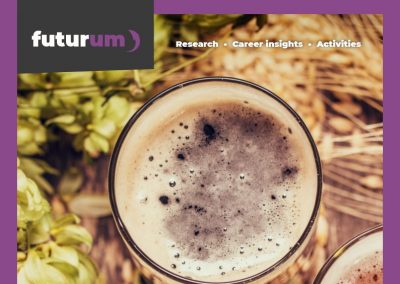
Can analytical chemistry make beer taste better?
Since beer was invented thousands of years ago, brewers have been modifying, adapting and experimenting with their recipes. Subtle [...]
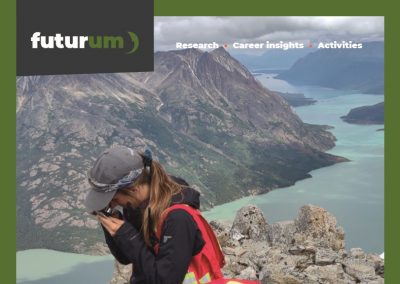
Can we reveal Earth’s secrets by dating faults?
Understanding the Earth’s geological history is crucial, not only for revealing its hidden evolutionary past but also for predicting future events [...]
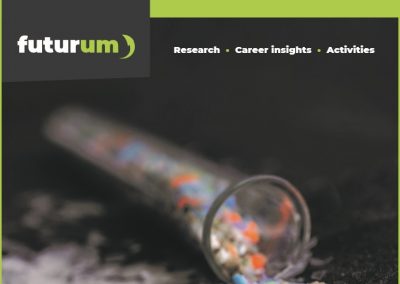
What happens when plastics break down into microplastics and nanoplastics?
Microplastics and their even smaller cousins, nanoplastics, are a growing concern for environmental and human health. At the FAMU-FSU College of [...]
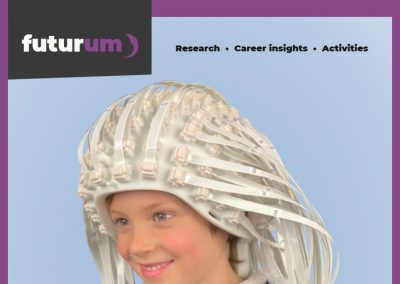
How the latest tech is unveiling the brain’s complex functionality
Understanding how our brains work in health and disease is hugely challenging, not least because all interactions have to be performed [...]
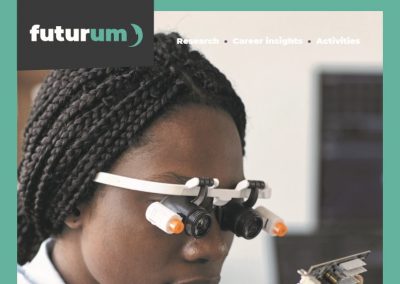
A CURE for education: how can genuine scientific experiences inspire future scientists?
What is it like to be a research scientist conducting hands-on experiments in a working lab? How well can science lessons prepare – and encourage [...]
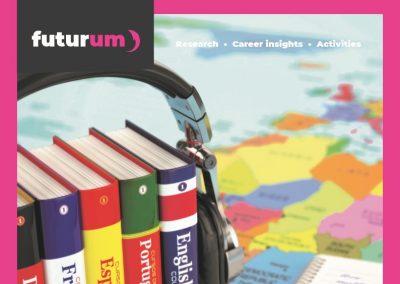
Can embracing plurilingualism transform education?
Dr Caroline Payant, an applied linguist at Université du Québec à Montréal in Canada, is exploring the power of plurilingualism – the use of [...]

Navigating the maze of reading comprehension for first grade learners
At the University of Quebec in Montreal, Canada, Dr Marie-France Côté, studies the complexities of reading comprehension among first [...]
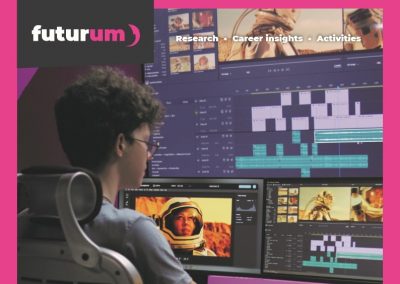
Boosting employment prospects for neurodiverse people through video game development
Despite often having the potential to be huge assets to the workforce, people with Autism Spectrum Disorder often face discrimination and [...]
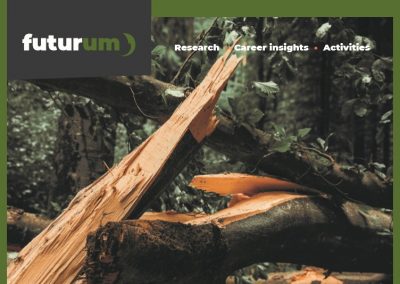
How do hurricanes impact forest ecosystems?
The island of Puerto Rico has diverse landscapes, making it a natural laboratory for ecologists. From mountain rainforests to coastal coral [...]
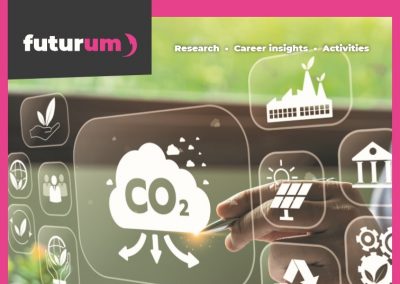
How is climate change affecting accounting and business?
Climate change is creating unprecedented risks for businesses around the world, which is making investors nervous. A key way that businesses [...]
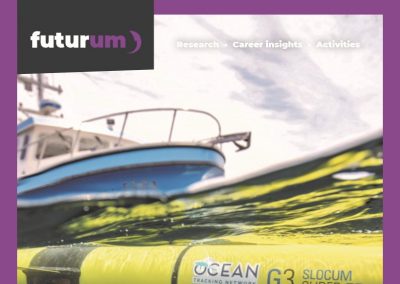
Can statistics help to uncover the ocean’s secrets?
There are still many mysteries about the ocean. While this vast store of water is known to support life and help mitigate the impacts of climate [...]
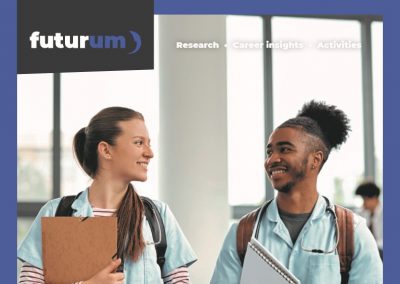
What makes nursing a dream career?
In a world grappling with healthcare staffing shortages, exploring the exciting field of nursing has never been more crucial. Dr Kathryn [...]
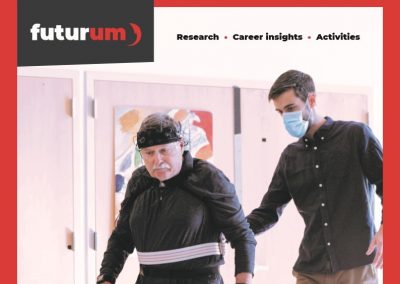
How wearable tech can combat Parkinson’s disease
Every time we move around, our body is performing a complex array of tasks to move us in the direction we intend to go and to keep us [...]
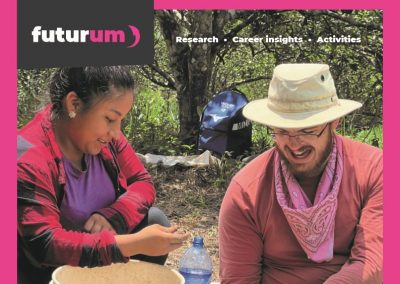
How are archaeologists uncovering the secrets of an Ancestral Maya boomtown?
Famous for their large stone pyramids, and with advanced skills in construction, agriculture and mathematics, the Ancestral Mayas were [...]
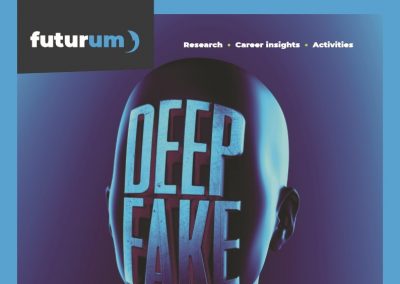
Detecting deepfakes: how can we ensure that generative AI is used for good?
The field of generative artificial intelligence (AI) is advancing at an astronomical pace. As a result, deepfakes – manipulated pieces of media [...]
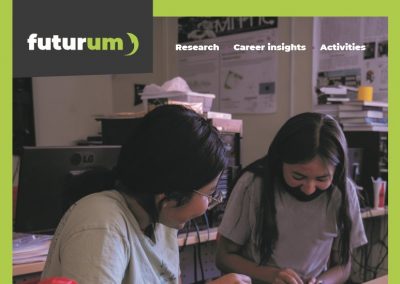
Power to the people: how electrical engineering can empower the Navajo Nation
The Navajo Nation lies across more than 25,000 square miles of desert and scrubland in the southwest US. The Navajo People, or Diné as [...]
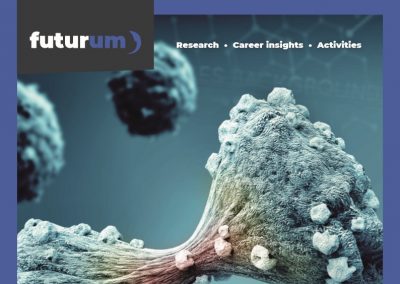
How can targeted antibodies and vaccines be used to treat cancer?
Causing nearly one in six deaths worldwide in 2020, cancer is one of the biggest health challenges of our time. Advancements in technology [...]

Looking after performing artists’ physical and mental wellbeing
Careers in the performing arts are incredibly rewarding, but they also present a number of unique risks to performers’ physical and mental [...]
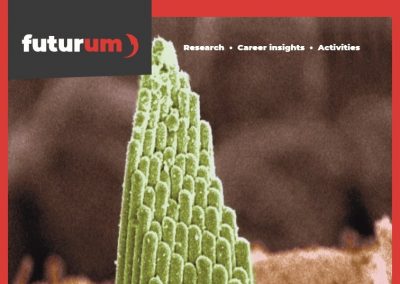
How does the inner ear develop into a sensitive hearing and balance organ?
Our inner ears contain specialised hair cells that give us the ability to hear a range of sounds and to orientate ourselves in three dimensions. At [...]
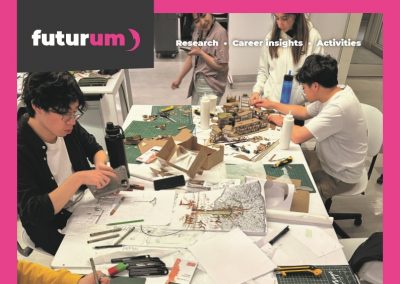
Building a better future: how can architecture help make a better world?
What leads to good architecture? How can we create environments that are not only functional, but also help people feel happy and meaningfully[...]
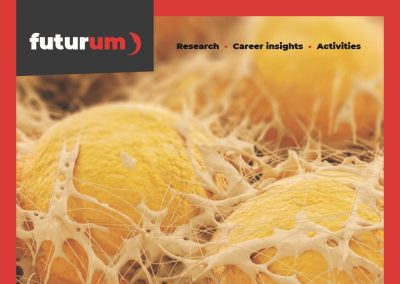
Understanding leptin: how can changes in body weight affect reproduction?
Dr Carol Elias, a physiologist and neuroscientist at the University of Michigan Medical School in the US, is exploring how a hormone called [...]
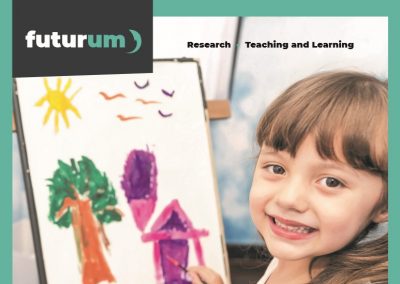
Using creative arts to address children’s eco-anxiety
As the climate and biodiversity crises worsen, predictions about the future are becoming increasingly gloomy. This has a profound effect on people [...]
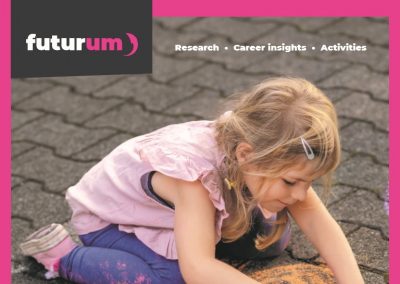
How can creative arts help children cope with eco-anxiety?
As the climate crisis deepens, do you feel hopeful or hopeless about the future? In Canada, a clinical psychology research team is using [...]

Can workplaces truly embrace LGBTQ+ inclusivity?
Based at York University in Canada, Professor You-Ta Chuang is exploring intricate LGBTQ+ workplace dynamics and addressing key aspects [...]
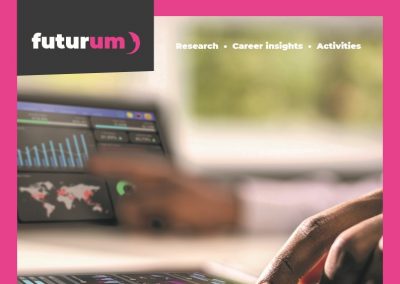
How can health and care support break the cycle of homelessness?
People experiencing homelessness often face significant health and well-being challenges, but accessing health and care support can be very [...]

Decolonising the Classroom
Current teaching methods in many nations across the globe tend to stem from Eurocentric traditions, which can be at odds with the communities [...]
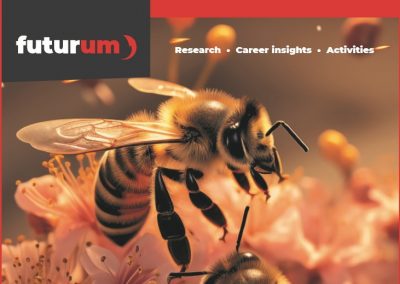
Can microalgae improve honeybee health?
Thanks to their work as pollinators, bees play an essential role in agriculture. However, modern agricultural practices and climate change [...]
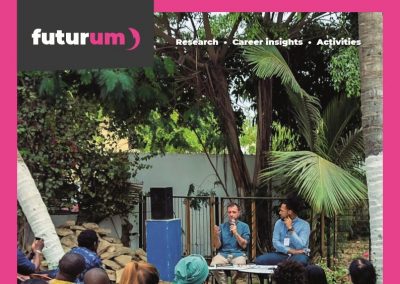
Decolonising film festival research
African film festivals showcase the diverse wealth of cinematic talent from the continent. However, researchers who study these festivals are often [...]
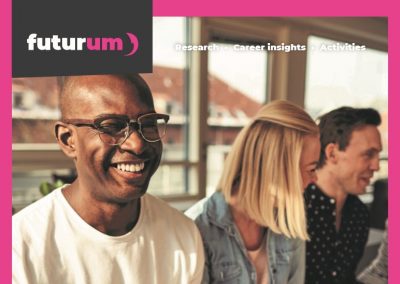
Creating narratives of resilience with people affected by cancer
The psychological toll that accompanies living with cancer can be immense. To aid the mental well-being of people affected by cancer [...]
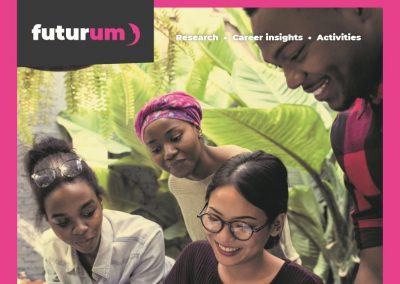
Why is diversity important for productivity?
Of the top 100 companies in the UK in 2023, only ten were led by women. And only four were led by a person of colour. There are many reasons for [...]
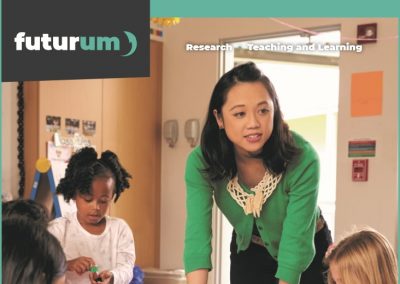
Supporting pre-service teachers in kickstarting a mentally healthy career
Teaching is a highly rewarding but also highly challenging career. Ensuring that pre-service teachers avoid compassion fatigue and burnout [...]
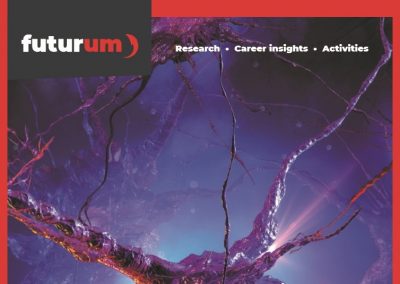
The importance of memory in severe mental illness
While we all sometimes forget where we put our phone or keys, memory problems can have much more serious consequences. Together [...]
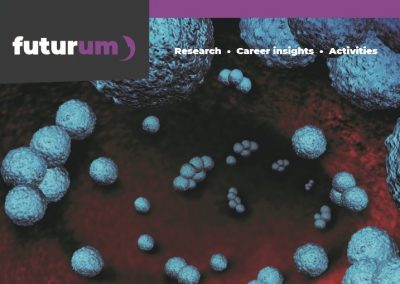
Remembering resistance: nongenetic memory in bacteria
Typically, the skills and properties developed through adaptation during a lifetime may not be directly passed onto the next generation as encoded [...]
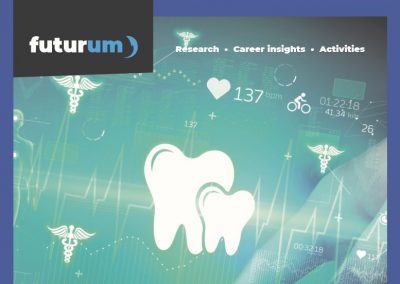
A world of opportunity in dental research
Oral health plays an integral part in our overall health. However, oral diseases are prevalent worldwide, and health inequities mean that [...]

From school to university: how can students adapt better to change?
Are you worried about leaving school or eager to start on the next chapter of your life? Whether you are anxious about moving away from home [...]
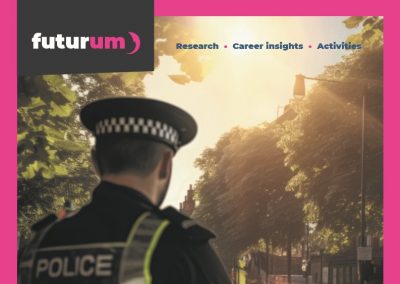
How can economists combat crime?
How can economists help police forces to better assign their police officers onto the streets, thereby providing a better service to the public? [...]
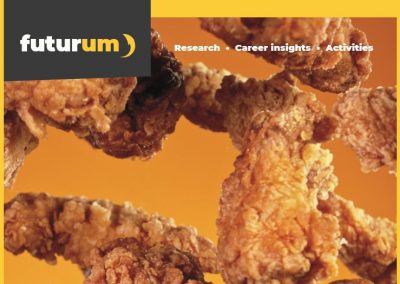
How can we reduce fat in fried foods?
Deep-fried food is immensely popular. Although embraced worldwide for its deliciousness, its appeal is tinged with health concerns stemming [...]
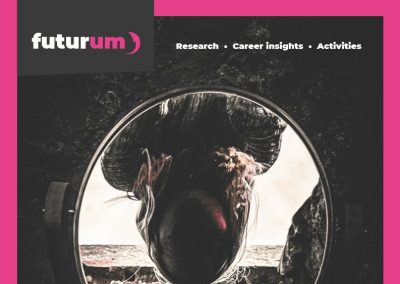
Can spooky stories engage people with history and heritage?
The English countryside is littered with the crumbling remains of ancient abbeys and priories, many of which are supposedly haunted. Having[...]

Empowering people through health education
To make informed decisions about our own healthcare, we need to understand how our bodies work and the illnesses that can affect [...]

How are coercive psychiatric practices experienced by First Nations communities?
While psychiatric services are designed to help people with mental health issues, they do not benefit everyone, and many people are held [...]
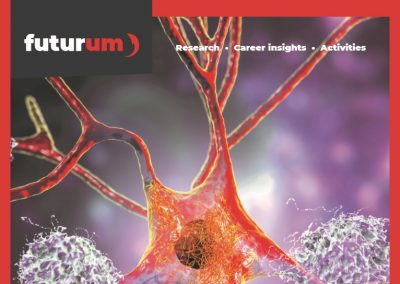
The links between sleep and Alzheimer’s disease
The causes of Alzheimer’s disease, a brain disorder, are still far from fully understood. At the University of North Carolina at Chapel Hill in the [...]
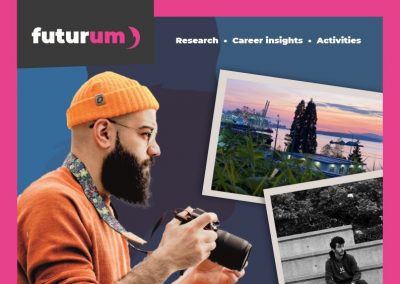
How can photography help refugee men talk about mental health?
Refugees face many threats to their mental health, from the trauma of being forced to leave their home, to the loneliness, financial [...]
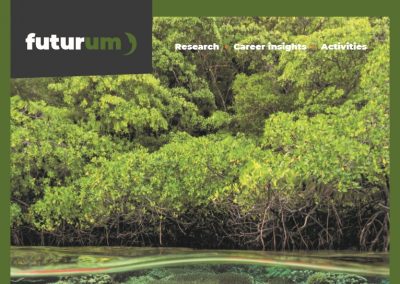
The amazing complexity of ecological metacommunities
Ecosystems are hugely complex. Every animal, plant, fungus and microbe is interacting with countless others, as well as with their ever-changing[...]
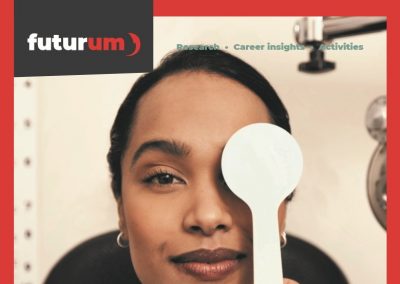
Creating a clear image of myopia: discovering the causes and developing treatments
Myopia, also known as near-sightedness, causes blurry distance vision and is estimated to affect over 30% of the world’s population. At [...]

The heroines of heavy metal: how are female artists challenging genre norms within the music industry?
Music has been a fundamental form of human expression for thousands of years. We use it to tell stories to each other, to make sense of [...]
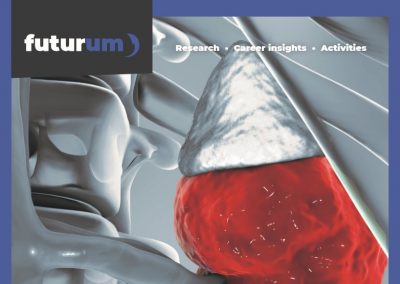
How do our kidneys influence our cardiovascular health?
The human body is a complex and interconnected system. In the Human Translational Nephrology Lab at the University of Iowa, USA [...]
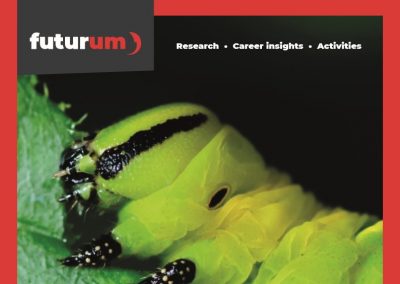
Ingenious solutions for outwitting plant pests
Pests and pathogens can be the bane of plant producers’ lives. Fortunately, there are a range of inventive remedies out [...]
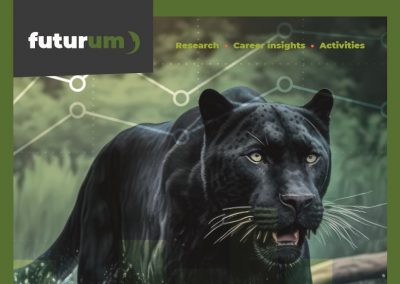
How can statistical models answer ecology’s big questions?
Ecology involves studying the interactions between living things and their environment. These interconnections can be very complex [...]
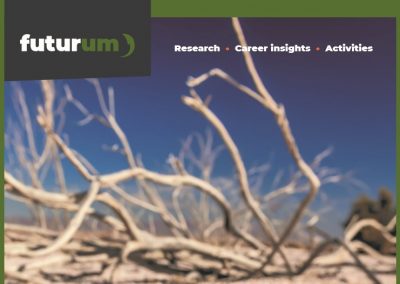
Combining science and community action to combat environmental injustice
The Salton Sea, a polluted lake in southern California, USA, is rapidly drying up as a result of changes in climate and water usage. As the [...]

Looking to the future with edge computing
Edge computing ‘brings the cloud closer’ – enabling small and simple technological devices to perform complex functions. Professor [...]
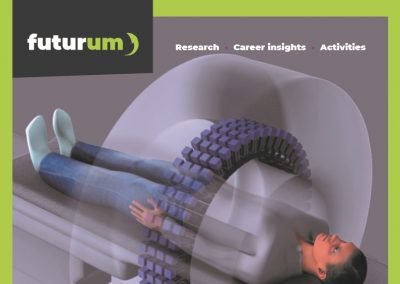
How does physics allow us to look inside the body?
Biomedical imaging techniques enable doctors and scientists to view inside the human body, allowing them to diagnose medical conditions [...]
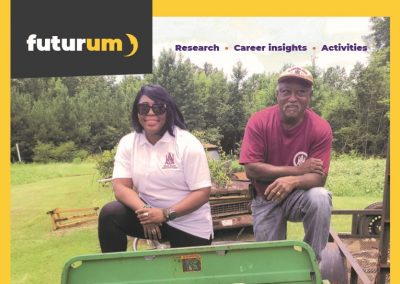
Growing new and beginning farmers
Beginning a career in farming is not simple or straightforward. As well as learning how to care for crops and livestock, farmers need to have [...]
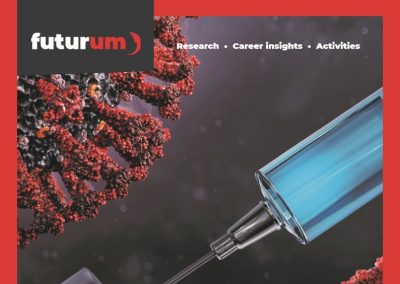
How can we develop more effective vaccines?
When the COVID-19 pandemic struck the world in 2020, our everyday lives were put on hold until immunologists and vaccinologists discovered [...]
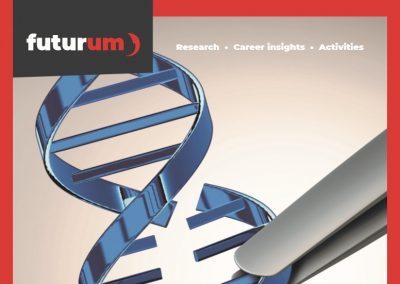
Bringing revolutionary gene editing techniques to undergraduates
In recent years, the emergence of a new genetic modification technique called CRISPR-Cas9 has made gene editing a dramatically faster and [...]

How can trade unions prevent mental health issues at work?
The mental health of workers has been deteriorating in recent years, and workplaces are often ill-equipped for dealing with these issues. At [...]
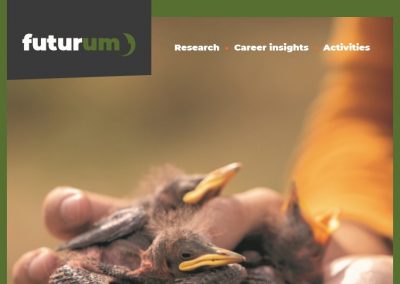
Does city life negatively affect wildlife?
If you have ever seen the beautiful sight of hundreds of starlings sweeping through the sky in unison, you will know how at ease [...]
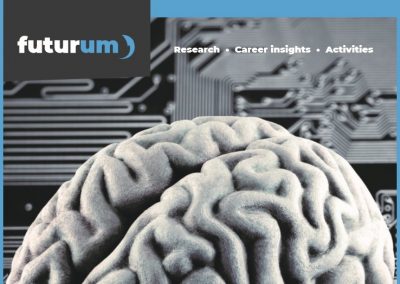
Modelling minds: can computers mimic human intelligence?
The human brain is often referred to as the most complex device known in the Universe. It gives rise to the amazing abilities of the human mind [...]
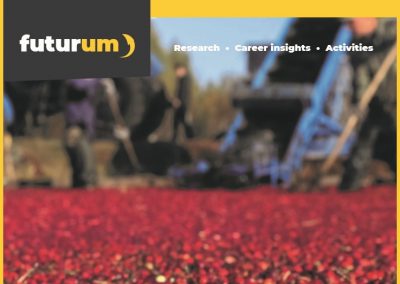
How can we improve cranberry production?
Indigenous Peoples have been using cranberries in food, medicine and fabric dye from as early as the 1500s, and these fruits are still widely [...]
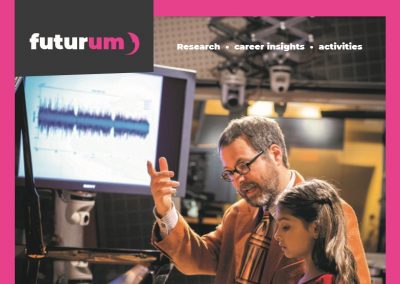
Harnessing the power of music to improve mental health
Engaging with music has proven positive impacts on mental health and well-being, yet musical interventions are rarely used in healthcare [...]
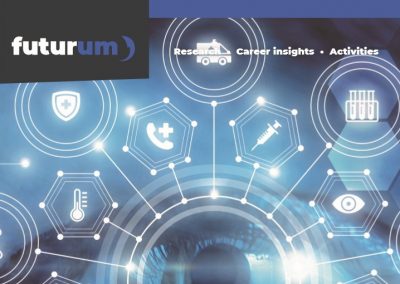
How can data management tools help us discover new treatments for a chronic disease?
Myalgic encephalomyelitis/chronic fatigue syndrome (ME/CFS) is a complex disease that can take a huge toll on a person’s everyday [...]
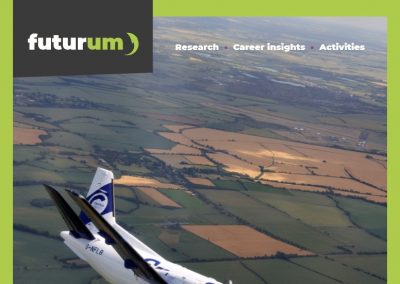
Flying high with careers in aviation
When it comes to careers in aviation, the sky is the limit! Five professionals at Cranfield University’s Centre for Air Transport Management and [...]
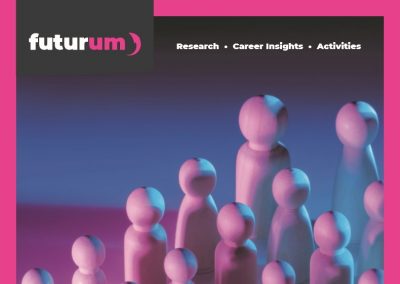
Why electoral systems matter for democracy
There is huge variety in the methods that democracies around the world use to elect legislators and leaders. Professor André Blais, from the [...]
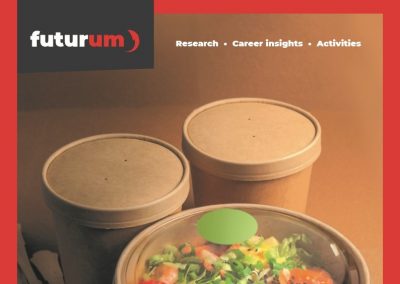
Plant polymers as plastic alternatives
Plastics are cheap and versatile but have a long-lasting environmental impact, and the race is on to roll out effective alternatives. Professor Jeffrey [...]
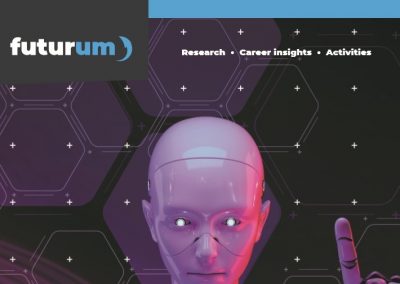
Cyber security for the AI age
As the digital world grows in power and complexity, so do the threats it faces. There is a constant arms race between cyber security and cyber [...]
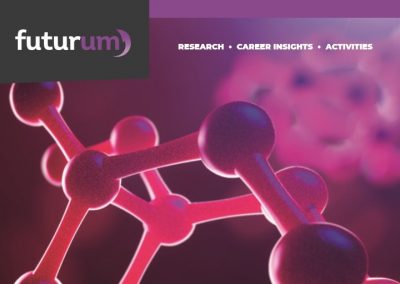
Using adsorbents to help society
You will likely have heard of absorption before, but have you heard of adsorption? At the University of Notre Dame in Indiana, USA, Dr [...]
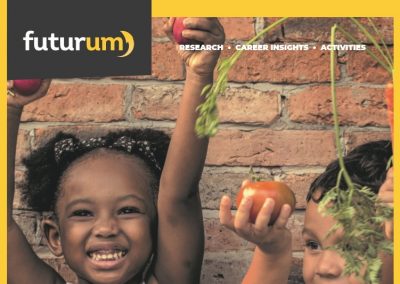
Urban farming for urban families
Our well-being is intimately linked to the food that we eat and the places where it is grown. Healthy soils produce nutrient-dense food, which [...]
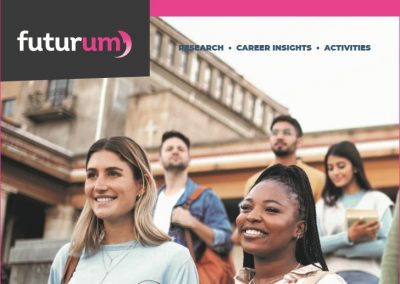
Should universities use differential treatment to admit students?
At first glance, a student’s exam scores might seem like an uncomplicated way to measure academic ability. However, Dr Emil Temnyalov, an [...]
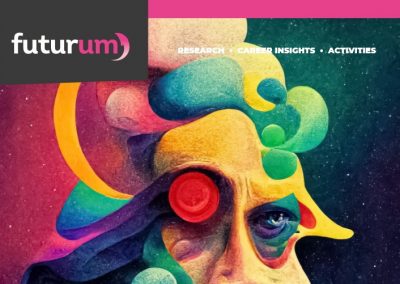
Are there ‘rules’ for conveying emotion through art?
While art and science are often separated in academia, there is a lot to be learnt by considering them together. Dr Dirk Bernhardt-Walther and [...]

How can we combat ageism in society and healthcare?
Whether we realise it or not, we all hold stereotypes about older people. Whether we view them as cute, forgetful, bad with technology [...]
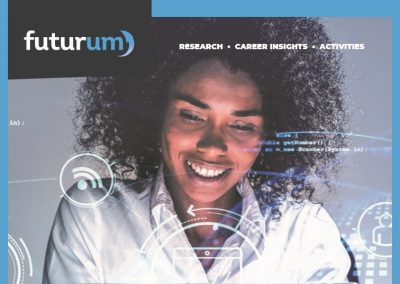
How can intelligent systems revolutionise healthcare?
Access to quality healthcare is a basic human right. Without doctors, nurses and hospitals, our societies would cease to function. However [...]
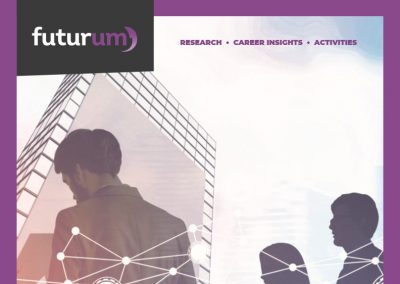
How can we unravel the complex history of networks?
Infectious diseases, such as COVID-19, can spread rapidly from person to person, resulting in a vast and complex network of infected individuals [...]

How philosophers have influenced the way you think about race
Problematic perceptions about race damage our society. These attitudes can seem impossible to overcome, but philosophers Dr Jennifer [...]
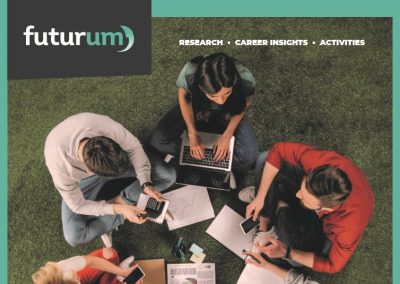
How can first-year STEM university students be better supported?
Going to university is a huge change from going to high school. At the University of Pittsburgh at Greensburg in the US, biologists [...]
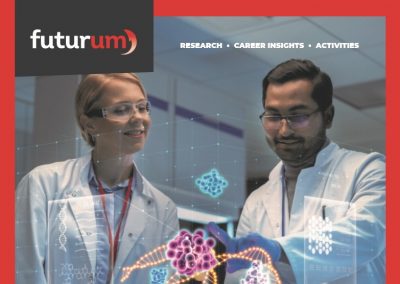
Can we engineer bacteria to regenerate tissues?
Dr Christopher Contag, a biomedical engineer and microbiologist at Michigan State University in the US, is creating engineered endosymbionts [...]
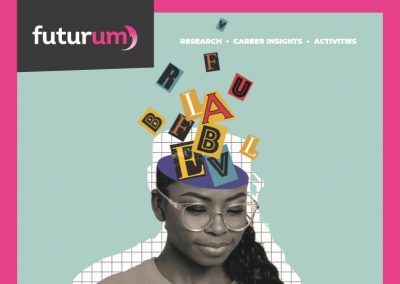
How we read: the neuroscience behind literacy
Reading and writing are essential skills for modern life, but how often do you think about how your brain processes written information? Based [...]
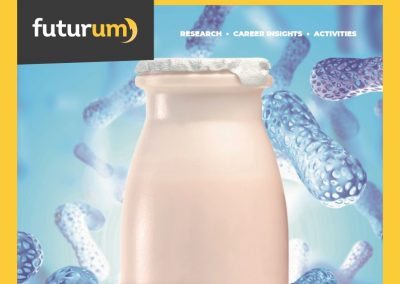
Engaging with the science behind food
The preparation of food is biochemically complex. At North Carolina Agricultural and Technical State University in the US, Dr Salam [...]

Fabulous and fashionable: how the FAB Lab is encouraging fashion entrepreneurs
Fashion can give you the confidence and power to express yourself. Around the world, people use clothes, jewellery and accessories as [...]
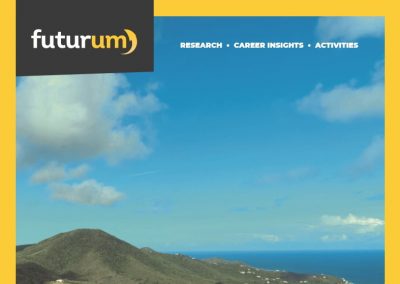
Fostering love and knowledge of agriculture and the environment
Agriculture is what feeds the world, yet many people have a very limited knowledge of how their food grows and where it comes from [...]
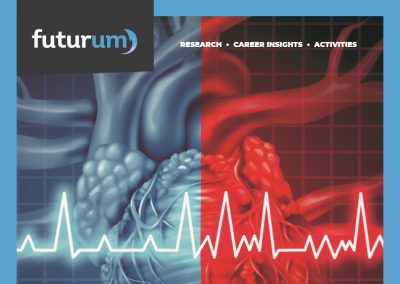
Can artificial intelligence detect hidden heart attacks?
Analysing medical data to detect health problems can be incredibly difficult, but advances in artificial intelligence (AI) mean it is now [...]

Supporting small farms: how protecting local farms can protect local communities
Just over a fifth of the country’s agricultural produce. Not only do they play a vital role in feeding people, small farms are also integral to local [...]
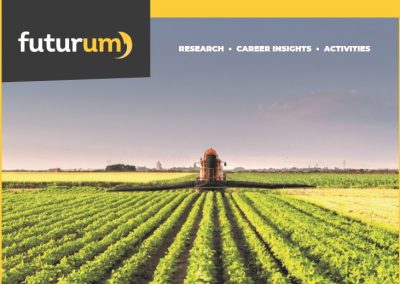
Can soil microbes improve agricultural sustainability?
Synthetic fertilisers are currently necessary for producing enough food for the global population to survive, but they are known to contribute to [...]
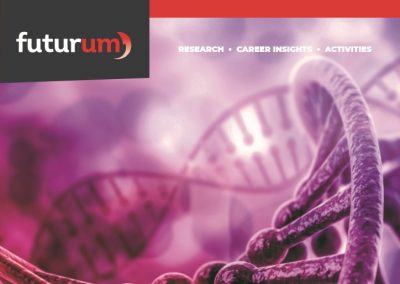
An educational journey through cell biology
Dr Kristina Ames is the Assistant Director for Cancer Research Training and Education Coordination (CRTEC) at the Albert Einstein College of [...]
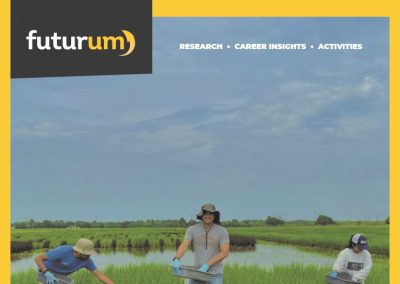
How do bacteria help and harm crops?
Over half of the world’s population depends on rice as a staple food. However, some bacteria cause diseases that can drastically reduce [...]
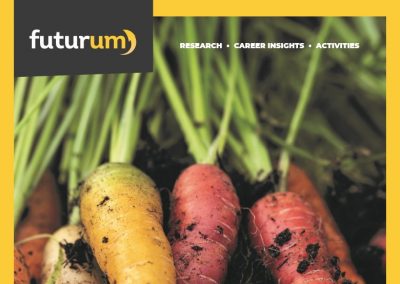
Keep calm and carrot on: how can we breed better carrots?
The colourful carrot is one of America’s favourite vegetables, but carrot farmers face many challenges when growing their crops. At the [...]
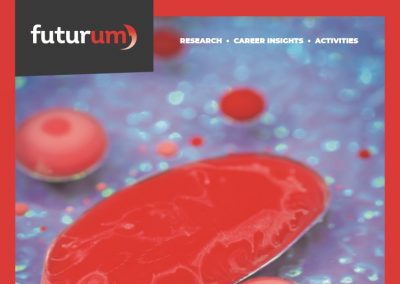
What happens when our blood production system fails?
A healthy adult produces billions of new blood cells every single day. Yet for some people, the process that generates these cells does not [...]
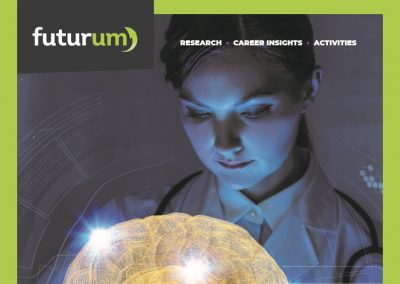
How can we detect and prevent brain injuries?
Inside your skull sits your brain, an incredible computer that controls everything you do. The skull does its best to protect our brains [...]
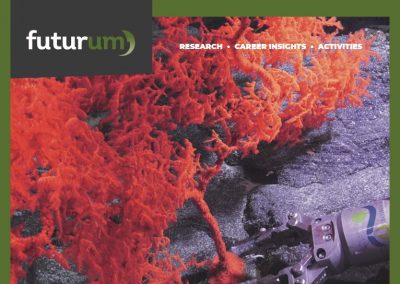
How does the Southern Ocean help protect our planet?
The Southern Ocean circulation system is vital for redistributing heat, carbon and nutrients around the world. It also plays a significant [...]
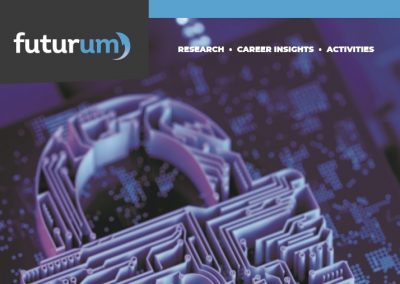
Can cyber insurance combat cyber crime?
In a world where so much information is stored digitally, cyber attacks that hold computers hostage can be incredibly damaging. Dr Jason [...]
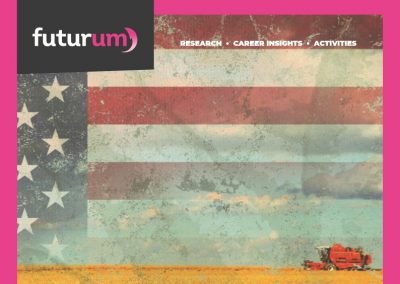
Social solutions for socio-economic issues
Extreme poverty is a global issue that affects hundreds of millions of people. Even in developed countries, many people struggle to make [...]
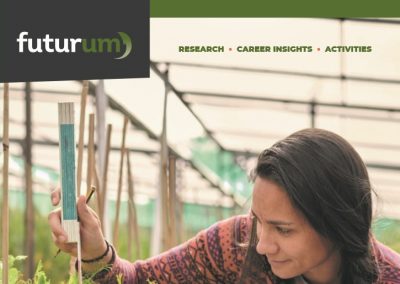
Ways of knowing: how can traditional knowledge enrich geoscience education?
Indigenous communities have inhabited their lands for tens of thousands of years and developed unique connections with their environments [...]
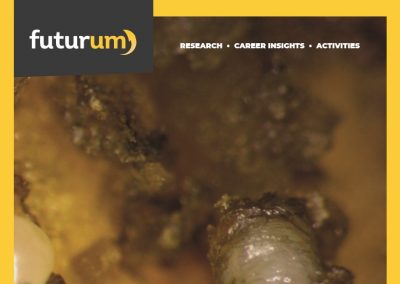
Protecting crops from nematodes
Just like animals, plants are bombarded by all sorts of pathogens and parasites. Currently, one particular species of nematode worm [...]
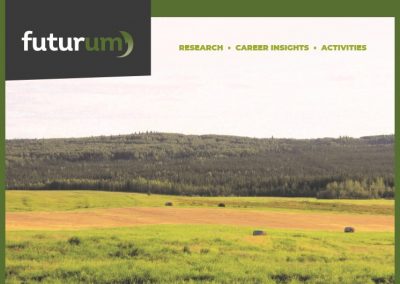
Farming on permafrost
Climate change is creating new opportunities for agriculture, by providing longer and warmer growing seasons, and thawing frozen ground. But [...]

How are advances in technology improving dietary research?
To uncover how diet influences health, dietitians and nutritionists need easy but accurate ways to assess what people eat. However [...]
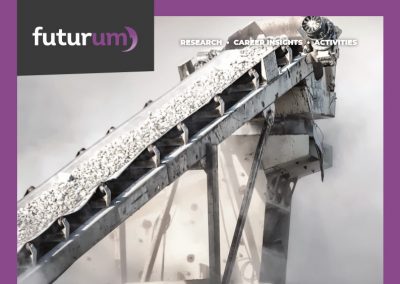
Concrete change: the innovative chemistry of sustainable cement
The global cement industry is gigantic, so finding ways to reduce its impact on the climate is essential for a sustainable future. At the [...]
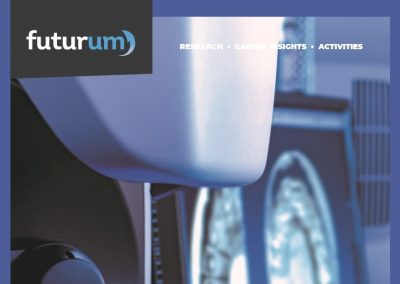
Dental discoveries: How is dental research improving oral health?
Many people do not enjoy going to the dentist, but regular dental check-ups are a key aspect of healthcare. Maintaining good oral hygiene [...]
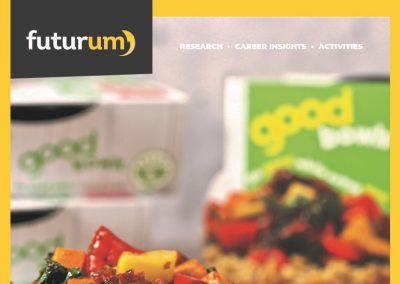
The Mediterranean way: changing diets to extend lifespans
A poor diet can significantly shorten a person’s life expectancy and quality of life, but switching to a healthy diet is easier said than done [...]
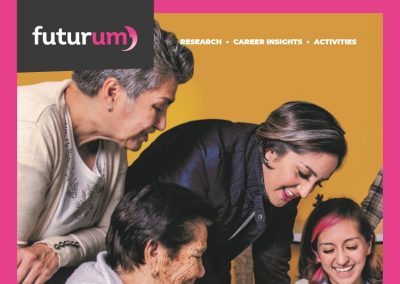
The importance of community for reducing social isolation
Social isolation is caused by a lack of social contact. It can lead to loneliness and depression and is often experienced by women [...]
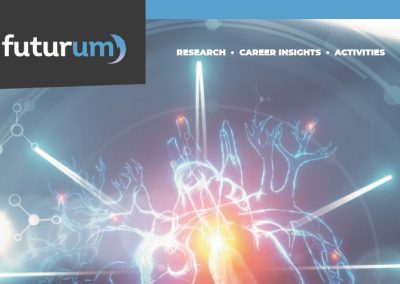
Can artificial intelligence help prevent heart failure?
Depending on its application – and your opinion – advances in artificial intelligence (AI) can seem impressive, daunting or both! Though [...]
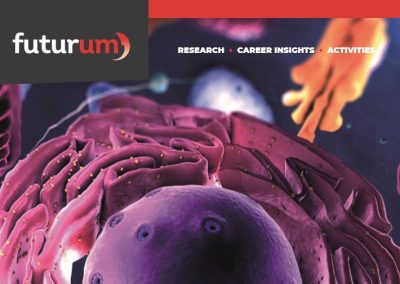
An age-old question
As we reach the later years of our lives, our skin will wrinkle and our hair will turn grey. We may have mixed feelings about ageing, but [...]
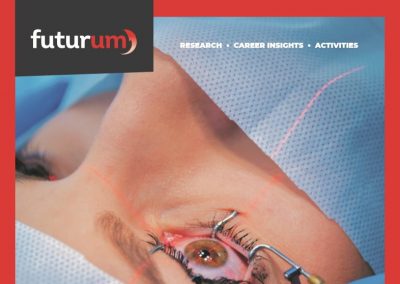
How can diabetes lead to vision loss, and how can this be prevented?
Diabetic retinopathy is the leading cause of blindness among working-age adults in the developed world. Dr David Antonetti, a molecular [...]
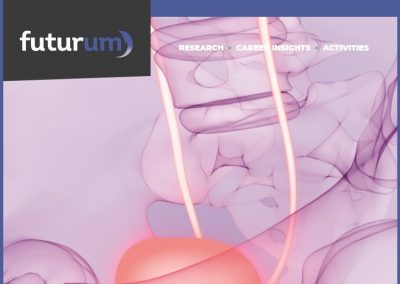
What causes problems with the lower urinary tract?
Our bodies are fascinatingly interconnected. Did you know that urinating a lot at night might be due to a heart problem? Or that a condition [...]
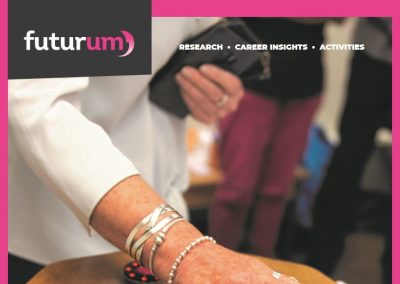
How can music technology improve the well-being of people living with dementia?
What does music mean to you? Whether you play an instrument or enjoy listening to your favourite band, there are many ways to [...]
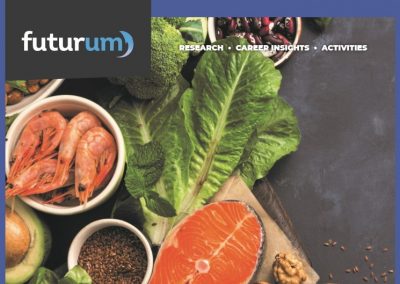
Could a healthy diet combat multiple sclerosis?
Based in Australia, Professor Lucinda Black has been exploring the links between diet and multiple sclerosis (MS) [...]

Lighting up cancer: innovation in paediatric surgery
Surgically removing cancer tumours can be a risky procedure – bodily tissues that the cancer grows on can be damaged in the process [...]
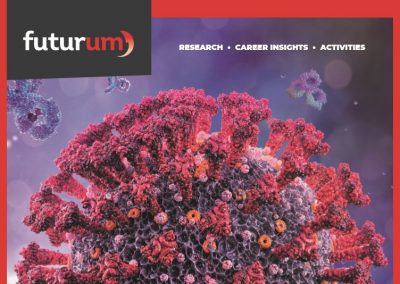
Investigating immunity: uncovering the mechanisms of the immune system
Our immune systems work around the clock to keep us safe from disease. Whenever we become infected with a virus or bacteria, our [...]
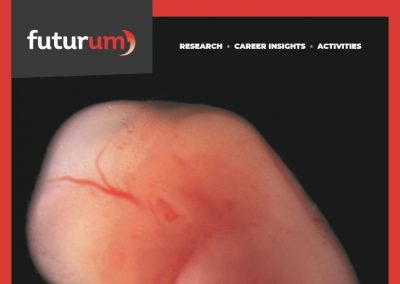
How do the head, neck, and heart develop?
Birth defects affect one in every 33 babies born in the United States each year. A developmental biologist at Howard University in the US [...]
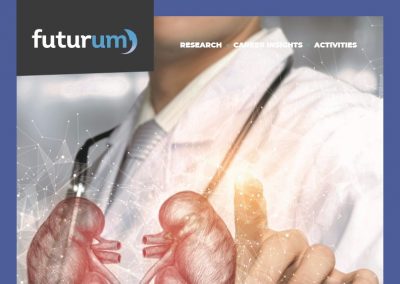
Can scientists prevent kidney disease?
At Duke University Medical Center in the US, Dr Jamie Privratsky divides his time between treating critically ill patients on the hospital wards [...]
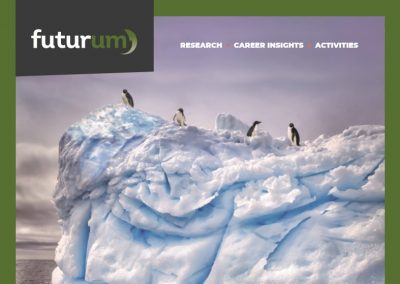
Deducing how Antarctica will respond to climate change
Antarctica holds a huge volume of ice – enough to raise global sea levels by 65 metres if it all melted. This means it is vitally important [...]

Social science for social change: the story of marriage equality in the US
For centuries, gay people have suffered discrimination, prejudice and persecution. However, since the 1990s, public attitudes towards [...]
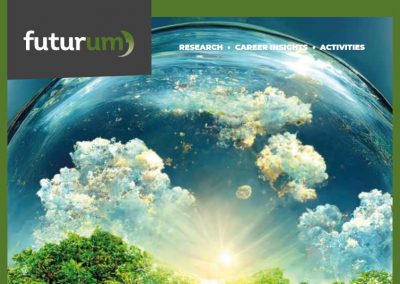
Practical activities to help geoscience students develop the skills they need to succeed
Traditional teaching methods that focus on the memorization and regurgitation of facts rarely lead to genuine learning [...]
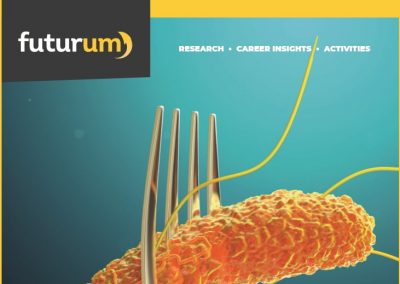
How can we improve food safety across the world?
Around 600 million people – which is almost 1 in 10 people worldwide – become ill every year from a foodborne illness. 420,000 [...]
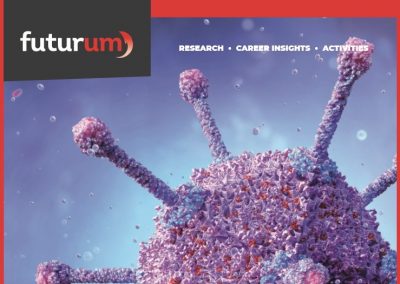
Can we create viruses and use them to treat cancer?
Viruses can cause cancer, but they also have the power to cure it. Dr Fred Bunz is a molecular oncologist at Johns Hopkins University [...]
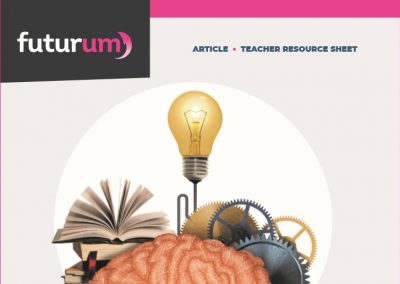
SHAPE in Schools: Changing mindsets in support of social sciences, humanities and the arts
Social sciences, humanities and the arts are vital for addressing complex challenges, but do young people truly understand their [...]
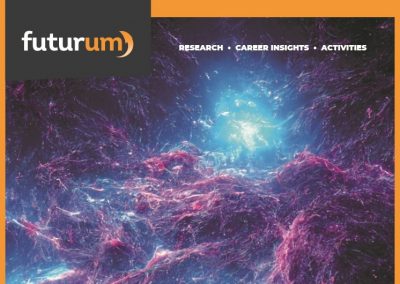
A star is born – using next generation telescopes to explore star formation
Without the Sun, life on Earth would likely never have formed. But how did the Sun, and the other 100 billion stars in our galaxy, come [...]
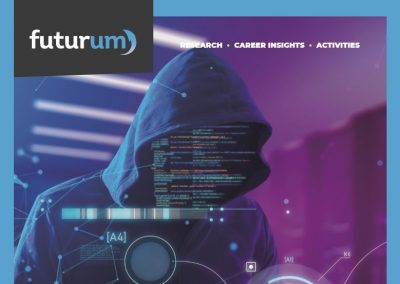
Can you trust what you see online?
A world leader gives a rousing speech, stirring up anger and resentment among their followers and opponents alike. A viral video shows [...]

How does pre-birth milk expression help with breastfeeding?
The benefits of breastfeeding newborn infants are long-established. However, the idea of expressing milk while pregnant, before the baby [...]
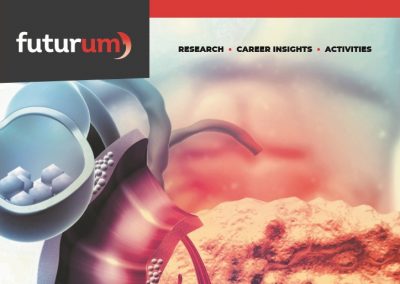
Protecting the pancreas
Our immune system is highly organised and ruthlessly efficient, but when it goes wrong it can lead to debilitating disease. Our pancreas [...]
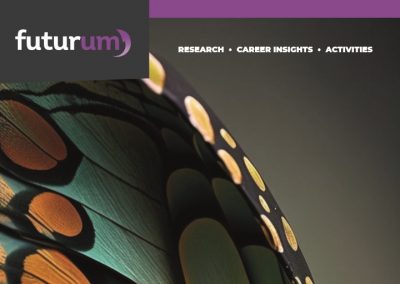
Examining the extremely small
Research in materials science and engineering is crucial for developing materials that can help solve some of society’s biggest challenges [...]
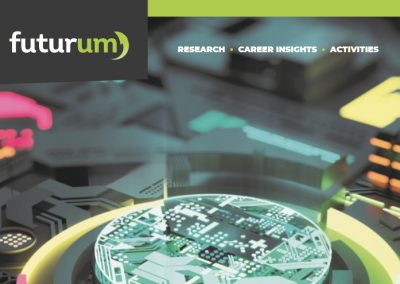
How machine learning is revolutionising materials science
Research in materials science and engineering is crucial for developing materials that can help solve some of society’s biggest challenges [...]
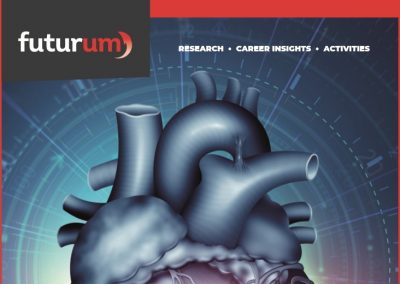
How do proteins affect heart health?
Proteins are the building blocks of life as they control the chemical reactions in cells. Despite the importance of proteins, scientists [...]

The power of geographic information systems: bringing data to life with maps
What is the connection between the number of trees in a neighbourhood and the ground surface temperature? Are incidences of cancer [...]
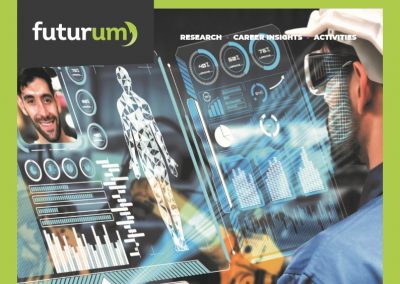
Controlling machines from afar
Industrial machines are at the heart of today’s economy and society, but training people to use them is a challenge. It is not possible [...]
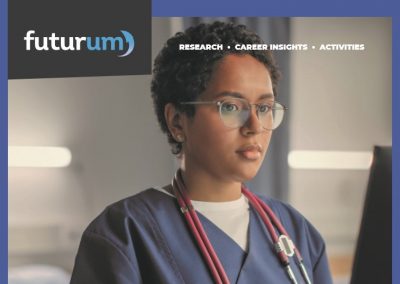
Can behavioural interventions improve biological health outcomes?
Cardiovascular disease is the leading cause of death in the US, accounting for around one in every five deaths. However, some groups in [...]
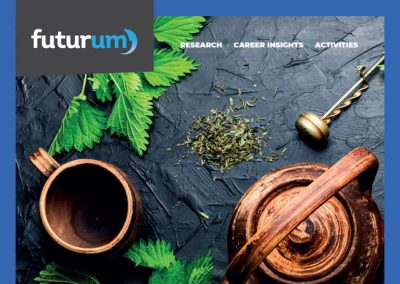
Could a nettle a day keep the doctor away?
Nettles are known for their sting, but research by Dr Diana Obanda at the University of Maryland in the US suggests that eating [...]
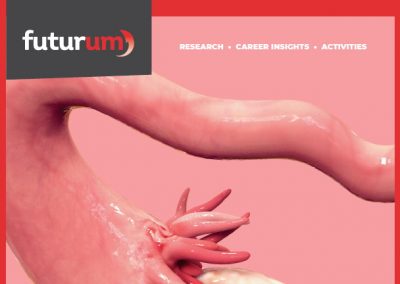
What do we know about the ovary?
Ovarian cancer ranks fifth in cancer deaths amongst women, with a woman’s risk of getting it during her lifetime being about [...]

How can community engagement projects empower STEM students?
In cities around the world, air pollution poses a major risk both to the environment and to human health. This has severe consequences [...]
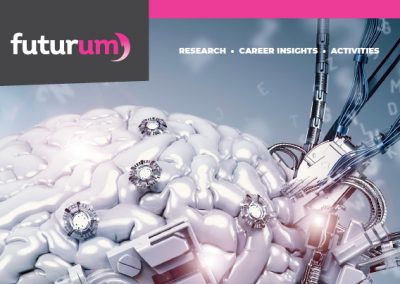
Bias, assumptions and emotions: why we think what we think
While highly efficient, the way we process information to make decisions is far from perfect. Finding out how this process works – and [...]
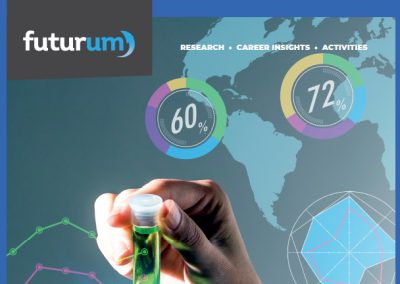
The mathematics behind medicine
Medicine is advancing daily, as increasingly specialised treatments and techniques are continuously developed. Biostatisticians, such [...]

How are streaming services affecting the way we consume media?
Subscription video on demand (SVOD) platforms, such as Netflix, have grown to become a core way that we watch films [...]
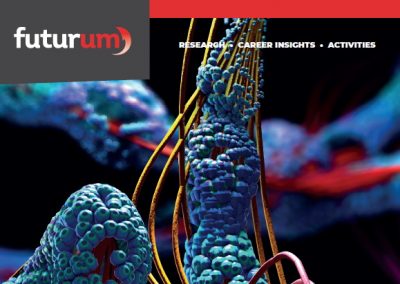
Synthetic biology: the power of modified microbes
Microbes are the world’s most brilliant chemists, able to turn simple sugars and other compounds into a vast array of complex [...]
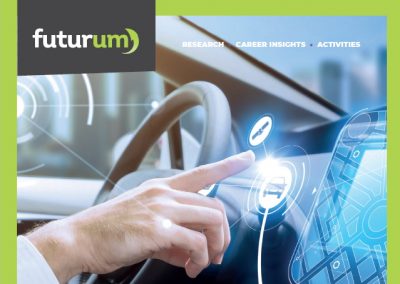
Are you ready for the robot revolution?
Transportation is about to go electric and drive itself, meaning every car technician will need to understand how artificial intelligence [...]
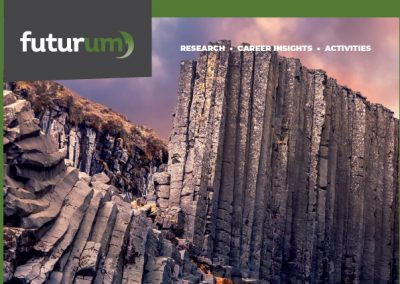
Modelling mines: how can a new 3D modelling platform make mining more sustainable and be part of the solution to climate change?
Despite public perceptions, mining is set to play a vital role in the planet’s transition to a sustainable future. Many low-carbon technologies [...]
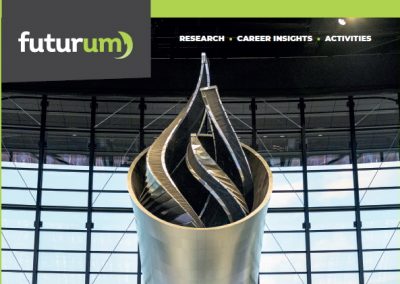
Creating the world’s largest 3D-printed structure
Dr R. Byron Pipes, of the Composites Manufacturing and Simulation Centre at Purdue University in the US, forms part of a team that [...]
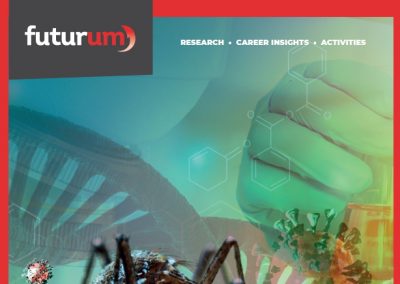
How to build a game-changing malaria vaccine
For millennia, malaria has plagued human civilization, killing billions over the course of history. Finding ways to combat this complex [...]
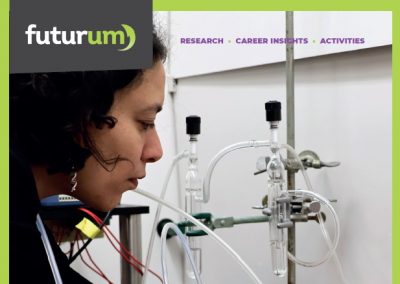
How can we measure gases dissolved in seawater?
Nitrous oxide is a greenhouse gas that is 300 times more powerful than carbon dioxide. The ocean is a significant source of [...]
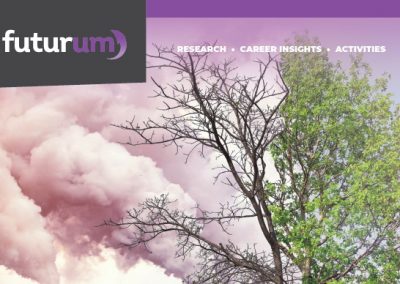
Understanding the atmosphere: What can atmospheric chemistry teach us about air pollution?
Chemical reactions taking place in the atmosphere have a huge impact on our lives. Chemicals released from the burning of fossil fuels create [...]

A meal with the devil: how the eating habits of Tasmanian devils affect their ecosystems
In a healthy ecosystem, each microbe, plant and animal has its own important role to play. They may not be the most glamorous [...]
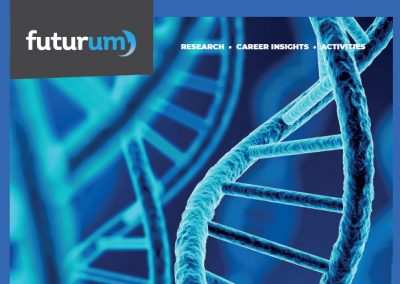
The human story behind human genome sequencing
In 2008, Professor James Lupski, from Baylor College of Medicine, USA, contributed to the scientific work behind the first human whole [...]

The fastest electric motor ever is another step towards a sustainable future
Professor Rukmi Dutta and her team at the University of New South Wales, Australia, have developed a new electric motor that runs [...]
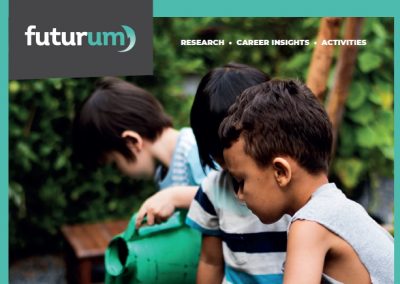
Can gardening help children grow?
Founded by Professor Sallie Marston and led by former school counsellor Moses Thompson, the University of Arizona’s School Garden [...]

How and why do governments forget?
We all tell stories about past events, and people working in government departments are no exception. These stories cause [...]
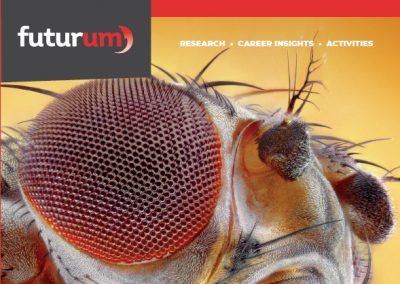
What can fruit flies tell us about virtual reality exercise?
Fruit flies can be ‘tricked’ into getting fit without exercising. This discovery by Dr Robert J. Wessells at Wayne State University, in the US [...]
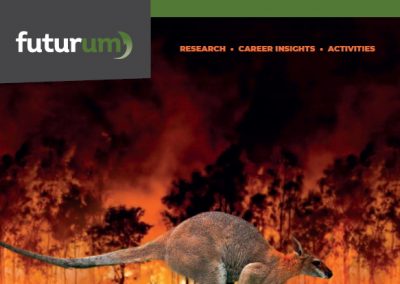
Fire trackers: how can we use modelling techniques to predict where wildfires will occur?
Climate change is making many parts of the world hotter and drier. As a result, wildfires are becoming increasingly prevalent and [...]
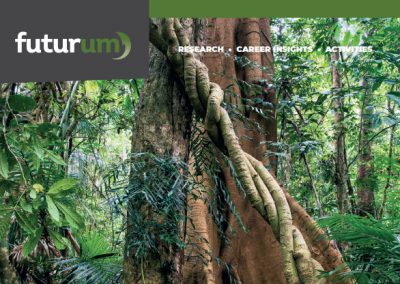
How will climate change affect forests?
As the Earth’s climate continues to heat up, forests will have to adapt. Associate Professor Craig Nitschke of the University of Melbourne [...]
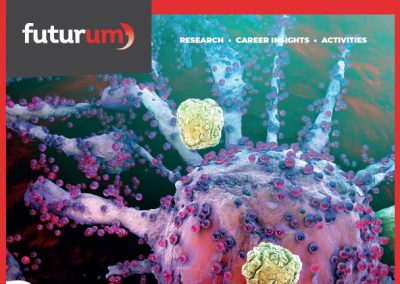
Investigating the root of inflammatory diseases
Inflammation is an essential part of our immune system, but when it goes wrong, it can lead to serious diseases such as lupus [...]
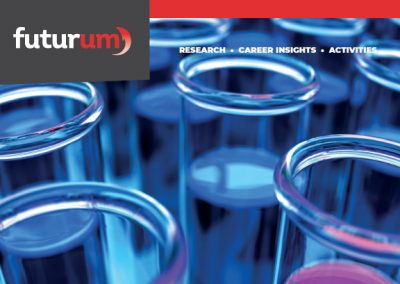
On the frontline of the biomedical revolution
The 21st century has seen a boom in biomedical advances, aided by increased recognition of the importance of working across [...]
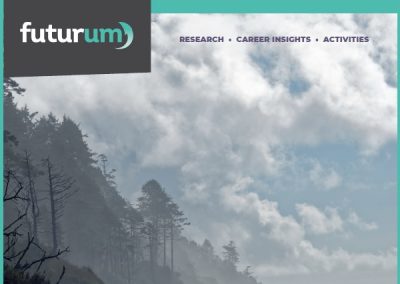
How can place attachment improve scientific literacy?
At Furman University in the US, Dr Ben Haywood and Professor Julia Parrish from the University of Washington are studying how [...]
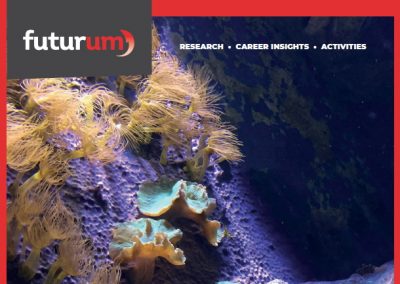
How can marine invertebrates help prevent organ transplant rejection?
A major challenge surrounding organ transplants is the body’s recognition of the new organ as ‘other’, which often leads to a dramatic [...]
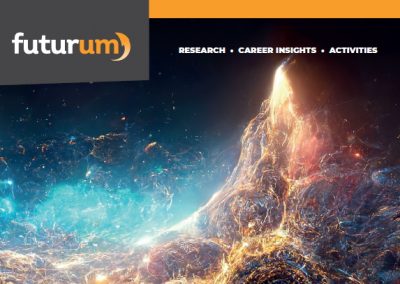
A superpowered model of the whole universe
The mysterious substance of dark matter and the enigmatic force of dark energy may hold the key to how the Universe formed. But [...]
![Decades of research has improved our understanding of the cognitive processes that occur when people read. However, there is […]](https://futurumcareers.com/wp-content/uploads/2023/01/cover2-12-400x284.jpg)
Decades of research has improved our understanding of the cognitive processes that occur when people read. However, there is […]
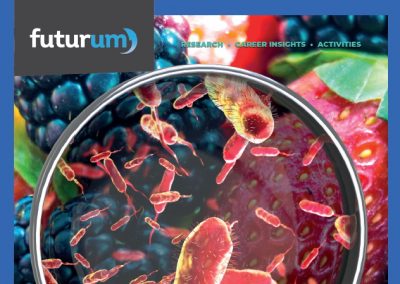
Can mathematics keep our food safe to eat?
Keeping germs out of our food is a constant battle, but mathematical modelling can help us trace contamination and stop the spread [...]
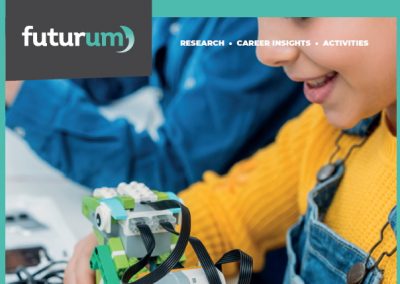
How can we make stem subjects more engaging for students?
At Point Park University in Pittsburgh in the US, education researchers Dr Ginny Chambers, Dr Kamryn York and Dr Mark Marnich are helping [...]
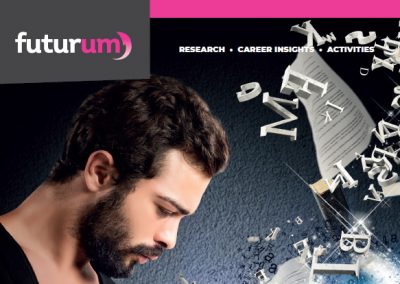
Taking fiction from broadsheet to broadband
Professor Katherine Bode at the Australian National University in Australia is rediscovering – and shaping – literary history by curating fiction [...]

Why do post-election protests occur?
Democratic elections have played a crucial role in making societies fairer and more equal. However, what happens when you live in a country [...]

What skills do you need to succeed in school?
Your academic identity plays a key role in your education. Students with low self-confidence in their abilities are more likely to struggle [...]
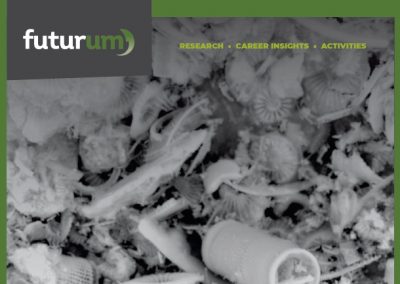
Can tiny fossils disrupt global communications?
Microfossils are often smaller than a grain of sand, yet when they accumulate on the seafloor, they can have significant impacts on [...]
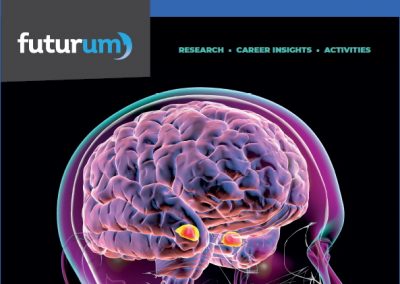
How can people train their brains to manage depression?
Major Depressive Disorder, also known as clinical depression, is a leading cause of disability worldwide and is estimated to affect 5% of the [...]
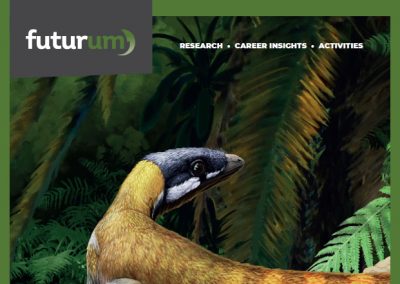
Can modern technology uncover the secrets of evolution?
A mysterious group of fossils called the Elgin Reptiles has been puzzling scientists for centuries. Existing only as cavities hidden within rocks [...]

Can quantum physics make the internet more secure?
Associate Professor Jacquiline (Jacq) Romero, a quantum physicist at the University of Queensland in Australia, is conducting experiments [...]

Why do males and females have different risks of disease?
While males are more likely to develop cancer than females, most autoimmune diseases are more prevalent in females. For [...]
![Experts from the International Data Group have predicted that by 2025, every person who is connected to the internet will engage with […]](https://futurumcareers.com/wp-content/uploads/2022/12/cover2-7-400x284.jpg)
Experts from the International Data Group have predicted that by 2025, every person who is connected to the internet will engage with […]

Pathogen-busting nanosurfaces inspired by insect wings
Keeping surfaces clean is more complex than you might expect. Pathogens can adhere to and multiply on almost any surface [...]
![Professor David Thornalley from University College London, in the UK, has been using data from ocean floor mud to understand how the […]](https://futurumcareers.com/wp-content/uploads/2022/12/cover2-5-400x284.jpg)
Professor David Thornalley from University College London, in the UK, has been using data from ocean floor mud to understand how the […]

How can wing design improve aircraft flight?
Aviation technology has come a long way since the Wright brothers made the first successful motor-powered flight in 1903. Today [...]

How is mathematics applied to real world problems?
Mathematics is essential to our way of life. It is used all around us, from weather forecasting, engineering and finance to modelling how [...]

A rocky revolution: Can virtual 3D models transform the teaching of geology?
Fieldwork has long been a mainstay of geology education, but it is not everyone’s cup of tea. Not all students want to participate in [...]
![Dr Natalie Shenker is the co-founder of the Hearts Milk Bank – a UK-based charity that provides donor human milk to vulnerable babies who […]](https://futurumcareers.com/wp-content/uploads/2022/12/cover2-1-400x284.jpg)
Dr Natalie Shenker is the co-founder of the Hearts Milk Bank – a UK-based charity that provides donor human milk to vulnerable babies who […]

Plugging in: directly linking the brain to a computer
Brain-computer interfaces (BCIs) link the brain directly to external computers, allowing users to do something just by thinking [...]
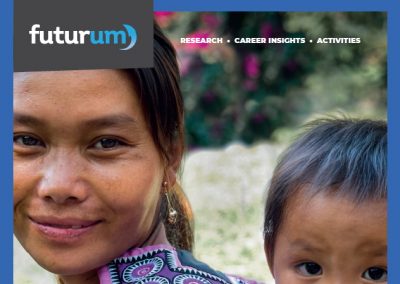
Reducing the challenges of childbirth in Myanmar
In Myanmar, one in every 500 women is likely to die during pregnancy or childbirth. The Birth Across The Borders project is determined [...]
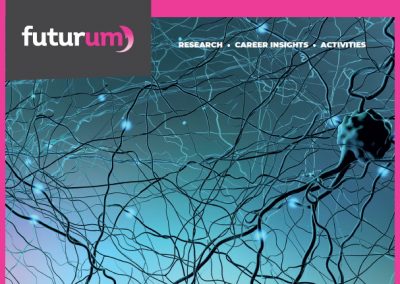
Animals in pain – who feels what?
At The University of Queensland in Australia, Professor Deborah Brown and Professor Brian Key have created a unique team of philosophers [...]

Using big datasets to find out what affects children’s quality of life
The Understanding Society study, run by the University of Essex in the UK, has been interviewing residents in around 40,000 UK [...]
![Beneath the Earth’s crust lies the mysterious mantle, and beneath that, the core. Although these layers form 99% of Earth’s volume […]](https://futurumcareers.com/wp-content/uploads/2022/11/cover2-11-400x284.jpg)
Beneath the Earth’s crust lies the mysterious mantle, and beneath that, the core. Although these layers form 99% of Earth’s volume […]

Building and training human tendons in the lab
Tendon issues affect millions of people worldwide, and treatment options are far from guaranteed to be effective. Tissue engineering [...]
![The UK has some of the highest childcare costs in the world. For many families, this means it is more economical for one parent to give up […]](https://futurumcareers.com/wp-content/uploads/2022/11/cov-400x284.jpg)
The UK has some of the highest childcare costs in the world. For many families, this means it is more economical for one parent to give up […]
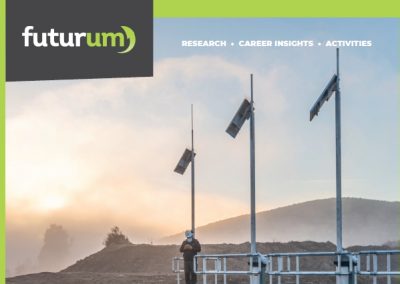
How are control engineers improving the sustainability of irrigated agriculture?
Globally, less than 60% of the water diverted into irrigation networks is used productively. This inefficiency is partly due to outdated [...]

Controlling and engineering systems for the benefit of all
Professor Zi-Qiang Lang is an automatic control and systems engineer based at the University of Sheffield in the UK. Three of his former [...]
![Social music programmes around the world are encouraging communities to sing and play their way from conflict to peace. The Arts of […]](https://futurumcareers.com/wp-content/uploads/2022/11/cover2-3-400x284.jpg)
Social music programmes around the world are encouraging communities to sing and play their way from conflict to peace. The Arts of […]

Monitoring the canopy temperature of forests
Dr Sophie Fauset, from the University of Plymouth in the UK, and Dr Shalom D. Addo-Danso, of the CSIR-Forestry Research [...]
![Dr Kristin Y. Rozier is a temporal logician based within the Department of Aerospace Engineering at Iowa State University in the US. Her […]](https://futurumcareers.com/wp-content/uploads/2022/11/cover2-1-400x284.jpg)
Dr Kristin Y. Rozier is a temporal logician based within the Department of Aerospace Engineering at Iowa State University in the US. Her […]
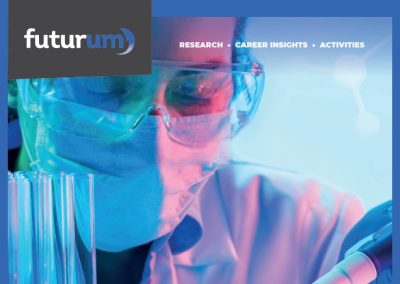
How can scientists improve the well-being of patients with lupus?
Systemic lupus erythematosus (SLE) is a disease without a cure. But, thanks to discoveries by Professor George C. Tsokos, a [...]

Imaging the invisible: how can research software and imaging techniques help scientists study the things we can’t see?
From microscopic plankton to individual atoms, the subjects of many scientific studies need special devices to be seen. Scientific [...]
![Worldwide, the majority of amputees do not have access to a useful prosthesis. This is especially true in lower and middle income […]](https://futurumcareers.com/wp-content/uploads/2022/10/cover2-11-400x284.jpg)
Worldwide, the majority of amputees do not have access to a useful prosthesis. This is especially true in lower and middle income […]

Creating software that works for everyone
From monitoring our health to finding a parking spot, there are now apps to help with every task in life. However, as we become ever-more [...]

What can the history of women’s suffrage teach us about women in politics today?
Although women’s suffrage has come a long way since 1893, when women in New Zealand were the first in the world to gain the right to [...]
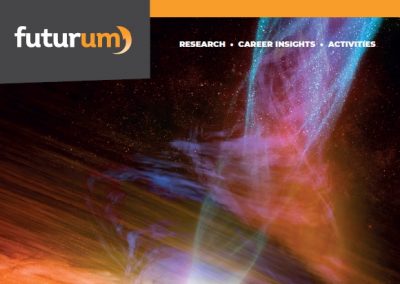
Black holes: the meeting of gravity and quantum physics
We know that black holes exist through a mix of complex mathematics and astrophysics but linking mathematical ideas to what we can observe in [...]
![Professor Richard Harper, based at Lancaster University in the UK, is the principal investigator of a project called the Future Places Centre. This […]](https://futurumcareers.com/wp-content/uploads/2022/10/cover2-7-400x284.jpg)
Professor Richard Harper, based at Lancaster University in the UK, is the principal investigator of a project called the Future Places Centre. This […]
![Enzymes are the catalysts of life. They accelerate chemical reactions inside cells to incredible speeds. Enzymes are so extraordinary that we […]](https://futurumcareers.com/wp-content/uploads/2022/10/cover2-6-400x284.jpg)
Enzymes are the catalysts of life. They accelerate chemical reactions inside cells to incredible speeds. Enzymes are so extraordinary that we […]
![Professor Jennifer Franck leads a team of mechanical engineers at the University of Wisconsin-Madison in the US, who are working on […]](https://futurumcareers.com/wp-content/uploads/2022/10/cover2-5-400x284.jpg)
Professor Jennifer Franck leads a team of mechanical engineers at the University of Wisconsin-Madison in the US, who are working on […]

Can we control the electrical activity in our brains?
Neuroscientists aim to understand how our brains work and what happens when they are not functioning properly. At the University of Oxford [...]
![In the UK, traumatic injury is the leading cause of death for people aged under 44. Understanding more about how the body reacts to […]](https://futurumcareers.com/wp-content/uploads/2022/10/cover2-3-400x284.jpg)
In the UK, traumatic injury is the leading cause of death for people aged under 44. Understanding more about how the body reacts to […]
![Dr Guilherme Oliveira, based at the Vale Institute of Technology in Brazil, leads a team working with Amazonian biodiversity. Together, they […]](https://futurumcareers.com/wp-content/uploads/2022/10/cover2-2-400x284.jpg)
Dr Guilherme Oliveira, based at the Vale Institute of Technology in Brazil, leads a team working with Amazonian biodiversity. Together, they […]
![More than 3 million people live with glaucoma in the United States, an eye disease that is the world’s second leading cause of blindness […]](https://futurumcareers.com/wp-content/uploads/2022/10/cover2-1-400x284.jpg)
More than 3 million people live with glaucoma in the United States, an eye disease that is the world’s second leading cause of blindness […]

Online battles: combatting false information and reducing online risks
These days, we are all online, but it is difficult to have a full understanding of the risks this entails. Professor Shujun Li and [...]
![Even if we do not often think about it, we all know how to construct sentences in our native language, and these structures may affect […]](https://futurumcareers.com/wp-content/uploads/2022/09/Alice-Harris-Its-a-Clitic-1-400x284.png)
Even if we do not often think about it, we all know how to construct sentences in our native language, and these structures may affect […]
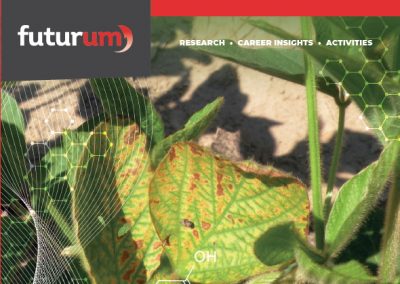
How do plants protect themselves from diseases?
It is estimated that plant diseases cost the global economy roughly $220 billion each year. Understanding how plants fight pathogens is [...]
![Professor Lisa Green, based at the University of Massachusetts Amherst in the US, leads research investigating the variation and […]](https://futurumcareers.com/wp-content/uploads/2022/09/COVER2-6-400x284.jpg)
Professor Lisa Green, based at the University of Massachusetts Amherst in the US, leads research investigating the variation and […]
![Dr Sangeeta Chattoo, from the University of York, in the UK, is on a quest to better understand one of the complex global health […]](https://futurumcareers.com/wp-content/uploads/2022/09/Sangeeta-Chattoo-Medical-Sociology2-400x284.png)
Dr Sangeeta Chattoo, from the University of York, in the UK, is on a quest to better understand one of the complex global health […]
![Dr Jan Herbst and Dr Mark Mynett, based at the University of Huddersfield, are collaborating on a project that is investigating heaviness […]](https://futurumcareers.com/wp-content/uploads/2022/09/cover2-5-400x284.jpg)
Dr Jan Herbst and Dr Mark Mynett, based at the University of Huddersfield, are collaborating on a project that is investigating heaviness […]

Empowering girls, inspiring engineers
Decades of gender stereotyping, discrimination and prejudice have resulted in an engineering work force that is largely made […]
![Dr Valeria Faggioli and Dr Mayra Osorio are working on separate projects under the sustainable food production branch of the […]](https://futurumcareers.com/wp-content/uploads/2022/09/2cover-400x284.jpg)
Dr Valeria Faggioli and Dr Mayra Osorio are working on separate projects under the sustainable food production branch of the […]
![Dr Babette Hoogakker, based at Heriot-Watt University in the UK, leads the FARGO project, which studies past dissolved oxygen […]](https://futurumcareers.com/wp-content/uploads/2022/09/fwqfq-400x284.jpg)
Dr Babette Hoogakker, based at Heriot-Watt University in the UK, leads the FARGO project, which studies past dissolved oxygen […]
![Everything is made of atoms, which are comprised of electrons orbiting a nucleus. Understanding the nucleus and its substructure […]](https://futurumcareers.com/wp-content/uploads/2022/09/cover-3-400x284.jpg)
Everything is made of atoms, which are comprised of electrons orbiting a nucleus. Understanding the nucleus and its substructure […]
![Professor Tuck Seng Wong, based at The University of Sheffield in the UK, leads a team focused on applying the concept of Darwinian […]](https://futurumcareers.com/wp-content/uploads/2022/09/cover2-1-400x284.jpg)
Professor Tuck Seng Wong, based at The University of Sheffield in the UK, leads a team focused on applying the concept of Darwinian […]
![Understanding prehistoric climates is key to understanding how our climate might change in the future and Antarctic ice cores […]](https://futurumcareers.com/wp-content/uploads/2022/09/Bess-Koffman-Winds-of-change-400x284.png)
Understanding prehistoric climates is key to understanding how our climate might change in the future and Antarctic ice cores […]
![Making things is a very human trait, and one that has been crucial in building the world around us. Materials Science and Engineering […]](https://futurumcareers.com/wp-content/uploads/2022/08/cover2-1-400x284.jpg)
Making things is a very human trait, and one that has been crucial in building the world around us. Materials Science and Engineering […]
![Within every one of us, there lives a thriving community of microscopic life, known as our microbiome. Like most other vertebrates, we […]](https://futurumcareers.com/wp-content/uploads/2022/08/asdas-400x284.jpg)
Within every one of us, there lives a thriving community of microscopic life, known as our microbiome. Like most other vertebrates, we […]
![Professor Brian Seymour of Edward Waters University, Jacksonville, Florida, USA, studies the immune system’s […]](https://futurumcareers.com/wp-content/uploads/2022/08/cwsdw-400x284.jpg)
Professor Brian Seymour of Edward Waters University, Jacksonville, Florida, USA, studies the immune system’s […]
![Dr Akhshay Bhadwal, an experimental physicist, and Dr Joseph Cousins, a mathematician, have teamed up to […]](https://futurumcareers.com/wp-content/uploads/2022/08/Dr-Akhshay-Bhadwal-and-Dr-Joseph-Cousins-Behind-the-screens-1-400x284.png)
Dr Akhshay Bhadwal, an experimental physicist, and Dr Joseph Cousins, a mathematician, have teamed up to […]
![Love them or hate them, chatbots are having an increasing role in the technological space, now that artificial intelligence has […]](https://futurumcareers.com/wp-content/uploads/2022/08/Oliver-Buckley-How-human-should-chatbots-be-1-400x284.png)
Love them or hate them, chatbots are having an increasing role in the technological space, now that artificial intelligence has […]
![From their base in the US, these three scientists work on the Andromeda and Triangulum galaxies, and Indigenous star knowledge […]](https://futurumcareers.com/wp-content/uploads/2022/08/Raja-GuhaThakurta-What-can-stars-reveal-about-galaxies-1-400x284.png)
From their base in the US, these three scientists work on the Andromeda and Triangulum galaxies, and Indigenous star knowledge […]
![Beyond the Earth’s atmosphere, there is a vast area of the Universe that we will likely never completely […]](https://futurumcareers.com/wp-content/uploads/2022/08/Gail-Zasowski-article-400x284.png)
Beyond the Earth’s atmosphere, there is a vast area of the Universe that we will likely never completely […]
![Dr Yu Chen, based at Binghamton University in the US, is developing a means of understanding and detecting deepfakes in online video […]](https://futurumcareers.com/wp-content/uploads/2022/08/cover2-400x284.jpg)
Dr Yu Chen, based at Binghamton University in the US, is developing a means of understanding and detecting deepfakes in online video […]
![For centuries, many humans have treated nature as a commodity, purging forests of trees and the oceans of fish. As a result, biodiversity […]](https://futurumcareers.com/wp-content/uploads/2022/07/Cover-top-400x284.png)
For centuries, many humans have treated nature as a commodity, purging forests of trees and the oceans of fish. As a result, biodiversity […]
![When you cook something in the oven at home, what kind of temperature do you set the dial to? Imagine what would happen if you could […]](https://futurumcareers.com/wp-content/uploads/2022/07/Cover-Copy-400x284.png)
When you cook something in the oven at home, what kind of temperature do you set the dial to? Imagine what would happen if you could […]
![The human brain is one of the most intricate systems in nature. Recreating its behaviour using computer programs is no easy task, but […]](https://futurumcareers.com/wp-content/uploads/2022/07/awffw-400x284.jpg)
The human brain is one of the most intricate systems in nature. Recreating its behaviour using computer programs is no easy task, but […]
![In recent years, global supply chains have faced disruptions from numerous causes, from a single ship blocking the Suez Canal to the […]](https://futurumcareers.com/wp-content/uploads/2022/07/safwcwfw-1-400x284.jpg)
In recent years, global supply chains have faced disruptions from numerous causes, from a single ship blocking the Suez Canal to the […]
![As techniques improve, archaeology is becoming an ever-more sophisticated process. Though shovels remain useful, dig sites […]](https://futurumcareers.com/wp-content/uploads/2022/07/safwcwfw-400x284.jpg)
As techniques improve, archaeology is becoming an ever-more sophisticated process. Though shovels remain useful, dig sites […]
![Funding agencies allocate money to scientific research projects with aims that could benefit society. But how do we know what the full […]](https://futurumcareers.com/wp-content/uploads/2022/07/sccafq-400x284.jpg)
Funding agencies allocate money to scientific research projects with aims that could benefit society. But how do we know what the full […]
![Our modern lifestyles depend on the material objects around us remaining strong and free from damage. Protective paints and coatings are […]](https://futurumcareers.com/wp-content/uploads/2022/07/fwq-400x284.jpg)
Our modern lifestyles depend on the material objects around us remaining strong and free from damage. Protective paints and coatings are […]
![Across Peru, thousands of people do not have access to clean water or efficient transport links. Dr Davis Chacon-Hurtado, a Peruvian engineer […]](https://futurumcareers.com/wp-content/uploads/2022/06/cover2-400x284.jpg)
Across Peru, thousands of people do not have access to clean water or efficient transport links. Dr Davis Chacon-Hurtado, a Peruvian engineer […]
![Until recently, self-driving cars and robotic housekeepers were the stuff of sci-fi movies. However, in the last decade, the capabilities of […]](https://futurumcareers.com/wp-content/uploads/2022/06/fwqcqw-400x284.jpg)
Until recently, self-driving cars and robotic housekeepers were the stuff of sci-fi movies. However, in the last decade, the capabilities of […]
![When young black men and boys are accused of crimes, rap music is often presented as evidence. This is a practice that an international network […]](https://futurumcareers.com/wp-content/uploads/2022/06/sadwdw-400x284.jpg)
When young black men and boys are accused of crimes, rap music is often presented as evidence. This is a practice that an international network […]
![It is difficult for us as individuals to feel that we can do anything about global challenges – such as climate change, pandemics, antibiotic […]](https://futurumcareers.com/wp-content/uploads/2022/06/sadwsfa-400x284.jpg)
It is difficult for us as individuals to feel that we can do anything about global challenges – such as climate change, pandemics, antibiotic […]
![Electronics are entering a new phase. At the University of Surrey in the UK, Dr Radu Sporea is leading a team investigating how to ‘print’ […]](https://futurumcareers.com/wp-content/uploads/2022/06/safdwafda-400x284.jpg)
Electronics are entering a new phase. At the University of Surrey in the UK, Dr Radu Sporea is leading a team investigating how to ‘print’ […]
![Dr James Seddon is a clinician scientist, working both as a medical doctor at St Mary’s Hospital and as a researcher at Imperial College […]](https://futurumcareers.com/wp-content/uploads/2022/06/sadadwa-400x284.jpg)
Dr James Seddon is a clinician scientist, working both as a medical doctor at St Mary’s Hospital and as a researcher at Imperial College […]
![While we might think of electronic music as a new style that has emerged in recent decades, its roots can be traced back much further […]](https://futurumcareers.com/wp-content/uploads/2022/06/sadsadsad-400x284.jpg)
While we might think of electronic music as a new style that has emerged in recent decades, its roots can be traced back much further […]
![For millennia, humans have looked upon volcanoes with a sense of awe and terror. Nowadays, we have a much deeper understanding of […]](https://futurumcareers.com/wp-content/uploads/2022/05/sadsad-2-400x284.jpg)
For millennia, humans have looked upon volcanoes with a sense of awe and terror. Nowadays, we have a much deeper understanding of […]
![Storms or hurricanes can damage buildings in a single incident. New engineering efforts at the Iowa State and Kansas State Universities […]](https://futurumcareers.com/wp-content/uploads/2022/05/dawdasd-400x284.jpg)
Storms or hurricanes can damage buildings in a single incident. New engineering efforts at the Iowa State and Kansas State Universities […]
![Charles Darwin’s theory of natural selection is one of the most important and ground-breaking scientific concepts ever constructed. Even […]](https://futurumcareers.com/wp-content/uploads/2022/05/afsafa-400x284.jpg)
Charles Darwin’s theory of natural selection is one of the most important and ground-breaking scientific concepts ever constructed. Even […]
![Farmers often use fungicides to protect their crops from fungal diseases. However, there are worries that these fungicides can damage […]](https://futurumcareers.com/wp-content/uploads/2022/05/saadsa-400x284.jpg)
Farmers often use fungicides to protect their crops from fungal diseases. However, there are worries that these fungicides can damage […]
![The mortality rate of the 1918 influenza pandemic was several times higher than for COVID-19. At the University of Missouri, USA […]](https://futurumcareers.com/wp-content/uploads/2022/05/asdadasx-400x284.jpg)
The mortality rate of the 1918 influenza pandemic was several times higher than for COVID-19. At the University of Missouri, USA […]
![Dr Vincent Prevot is a neuroendocrinologist based at the Inserm in Lille, France. He collaborates with Professor Markus Schwaninger and […]](https://futurumcareers.com/wp-content/uploads/2022/05/sadsadsadc-400x284.jpg)
Dr Vincent Prevot is a neuroendocrinologist based at the Inserm in Lille, France. He collaborates with Professor Markus Schwaninger and […]
![Professor Stephen Hutchings, based at the University of Manchester in the UK, has been leading a modern languages research programme […]](https://futurumcareers.com/wp-content/uploads/2022/05/article2-400x284.jpg)
Professor Stephen Hutchings, based at the University of Manchester in the UK, has been leading a modern languages research programme […]
![Acute respiratory distress syndrome (ARDS) is a severe lung injury that results from multiple different causes including pneumonia, COVID […]](https://futurumcareers.com/wp-content/uploads/2022/05/sadadasaw-400x284.jpg)
Acute respiratory distress syndrome (ARDS) is a severe lung injury that results from multiple different causes including pneumonia, COVID […]
![Professor Joshua Robinson is a materials scientist and engineer based at The Pennsylvania State University in the US. His research focuses […]](https://futurumcareers.com/wp-content/uploads/2022/05/sfsaas-400x284.jpg)
Professor Joshua Robinson is a materials scientist and engineer based at The Pennsylvania State University in the US. His research focuses […]
![A team of researchers with expertise in physics, engineering and biology are finding out whether trace metals in the brain are linked to […]](https://futurumcareers.com/wp-content/uploads/2022/05/asdsaddas-400x284.jpg)
A team of researchers with expertise in physics, engineering and biology are finding out whether trace metals in the brain are linked to […]
![First discovered in the 1920s, antibiotics have revolutionised the way we treat infectious disease. However, the discovery of new antibiotics […]](https://futurumcareers.com/wp-content/uploads/2022/05/sdasac-400x284.jpg)
First discovered in the 1920s, antibiotics have revolutionised the way we treat infectious disease. However, the discovery of new antibiotics […]
![Dr Jan Mol is an expert in quantum & nanoelectronics at the Queen Mary University of London, in the UK. He is trying to understand how […]](https://futurumcareers.com/wp-content/uploads/2022/05/asdsacas-400x284.jpg)
Dr Jan Mol is an expert in quantum & nanoelectronics at the Queen Mary University of London, in the UK. He is trying to understand how […]
![Plants are integral to society, but there are still big knowledge gaps about how they work at the molecular and cellular levels. To address this […]](https://futurumcareers.com/wp-content/uploads/2022/05/afasdfsda-400x284.jpg)
Plants are integral to society, but there are still big knowledge gaps about how they work at the molecular and cellular levels. To address this […]
![Many disease outbreaks, including Covid-19, are caused by viruses that have jumped from animals to humans. At the Pirbright Institute in […]](https://futurumcareers.com/wp-content/uploads/2022/04/dfdfa-400x284.jpg)
Many disease outbreaks, including Covid-19, are caused by viruses that have jumped from animals to humans. At the Pirbright Institute in […]
![Whether it is a traffic sign, clothing brand or TikTok, somebody somewhere has made a decision about which font to use to communicate a […]](https://futurumcareers.com/wp-content/uploads/2022/04/asdsdasd-400x284.jpg)
Whether it is a traffic sign, clothing brand or TikTok, somebody somewhere has made a decision about which font to use to communicate a […]
![Professor Corinna Martarelli, based at Unidistance Suisse in Switzerland, is the principal investigator of a project that seeks to determine […]](https://futurumcareers.com/wp-content/uploads/2022/04/afasfasdc-400x284.jpg)
Professor Corinna Martarelli, based at Unidistance Suisse in Switzerland, is the principal investigator of a project that seeks to determine […]
![Sarah Overton and Joël Reland form part of UK in a Changing Europe, a research organisation based at King’s College London, UK, which […]](https://futurumcareers.com/wp-content/uploads/2022/04/sadsadsa-400x284.jpg)
Sarah Overton and Joël Reland form part of UK in a Changing Europe, a research organisation based at King’s College London, UK, which […]
![Much of the evidence of past human activities has perished over time – which is why the work of Dr Lisa Maher, at the University of California […]](https://futurumcareers.com/wp-content/uploads/2022/04/asfafa-400x284.jpg)
Much of the evidence of past human activities has perished over time – which is why the work of Dr Lisa Maher, at the University of California […]
![Humans depend on plants for their survival. Plants provide the oxygen we breathe and the food we eat, but much of their functioning […]](https://futurumcareers.com/wp-content/uploads/2022/04/asdsadsad-400x284.jpg)
Humans depend on plants for their survival. Plants provide the oxygen we breathe and the food we eat, but much of their functioning […]
![Land degradation causes soils to become less fertile, resulting in lower productivity in agricultural regions and decreased biodiversity […]](https://futurumcareers.com/wp-content/uploads/2022/04/safafsa-400x284.jpg)
Land degradation causes soils to become less fertile, resulting in lower productivity in agricultural regions and decreased biodiversity […]
![Dr Anamika Dubey is an assistant professor with the School of Electrical Engineering and Computer Science at Washington State University […]](https://futurumcareers.com/wp-content/uploads/2022/04/asdfsadsad-400x284.jpg)
Dr Anamika Dubey is an assistant professor with the School of Electrical Engineering and Computer Science at Washington State University […]
![Science and technology suffer from underrepresentation of many social groups, which affects the quality and societal impact of new […]](https://futurumcareers.com/wp-content/uploads/2022/03/asdfasdfsad2a-400x284.jpg)
Science and technology suffer from underrepresentation of many social groups, which affects the quality and societal impact of new […]
![The UK’s exit from the European Union created a new border, not only to people and goods, but to finance. Professor Sarah Hall, an […]](https://futurumcareers.com/wp-content/uploads/2022/03/asfsafgv-400x284.jpg)
The UK’s exit from the European Union created a new border, not only to people and goods, but to finance. Professor Sarah Hall, an […]
![The X-ray Materials Science (XMaS) project uses a synchrotron facility, a massive doughnut-shaped structure that accelerates electrons […]](https://futurumcareers.com/wp-content/uploads/2022/03/afasfas-400x284.jpg)
The X-ray Materials Science (XMaS) project uses a synchrotron facility, a massive doughnut-shaped structure that accelerates electrons […]
![As our lives become increasingly intertwined with technology, we need increasingly sophisticated ways of managing data and […]](https://futurumcareers.com/wp-content/uploads/2022/03/safafsa-1-400x284.jpg)
As our lives become increasingly intertwined with technology, we need increasingly sophisticated ways of managing data and […]
![252 million years ago, over 90% of all species on Earth were wiped out. Led by Professor Paul Wignall at the University of Leeds in the UK […]](https://futurumcareers.com/wp-content/uploads/2022/03/asfafc-400x284.jpg)
252 million years ago, over 90% of all species on Earth were wiped out. Led by Professor Paul Wignall at the University of Leeds in the UK […]
![Many of us put a lot of our personal lives online, but this can come at risk to our online security. Dr Jason Hong and Dr Laura Dabbish, of […]](https://futurumcareers.com/wp-content/uploads/2022/03/afafa-400x284.jpg)
Many of us put a lot of our personal lives online, but this can come at risk to our online security. Dr Jason Hong and Dr Laura Dabbish, of […]
![The future of the earth’s sea levels due to climate change is incredibly difficult to predict. Dr Ed Gasson, at the University of Exeter, and […]](https://futurumcareers.com/wp-content/uploads/2022/03/adfasfsdaf-400x284.jpg)
The future of the earth’s sea levels due to climate change is incredibly difficult to predict. Dr Ed Gasson, at the University of Exeter, and […]
![Faith shapes the way societies respond to crises such as a global pandemic. Dr Emma Wild-Wood, from The University of Edinburgh […]](https://futurumcareers.com/wp-content/uploads/2022/03/asfdsad-400x284.jpg)
Faith shapes the way societies respond to crises such as a global pandemic. Dr Emma Wild-Wood, from The University of Edinburgh […]
![In the Tan Lab at Stony Brook University School of Medicine, USA, Dr Dongyan Tan is leading a team of early career scientists who are […]](https://futurumcareers.com/wp-content/uploads/2022/03/asffasfa-400x284.jpg)
In the Tan Lab at Stony Brook University School of Medicine, USA, Dr Dongyan Tan is leading a team of early career scientists who are […]
![Dr Elsa Lee is a researcher at the University of Cambridge in the UK, who is studying the link between participation in waterway regeneration […]](https://futurumcareers.com/wp-content/uploads/2022/03/qweweee.jpg)
Dr Elsa Lee is a researcher at the University of Cambridge in the UK, who is studying the link between participation in waterway regeneration […]
![Tropical diseases are a significant source of deaths across Latin America, but, until recently, there has been little interest in developing […]](https://futurumcareers.com/wp-content/uploads/2022/03/fdafas-400x284.jpg)
Tropical diseases are a significant source of deaths across Latin America, but, until recently, there has been little interest in developing […]
![Professor Amber D’Souza, based at Johns Hopkins Bloomberg School of Public Health in the US, is working to develop improved means […]](https://futurumcareers.com/wp-content/uploads/2022/03/asfsaf-1-400x284.jpg)
Professor Amber D’Souza, based at Johns Hopkins Bloomberg School of Public Health in the US, is working to develop improved means […]
![Dr Theodore (Ted) Allen is a mathematician and computer scientist based at the Ohio State University in the USA. He is developing a […]](https://futurumcareers.com/wp-content/uploads/2022/03/sfsaf-400x284.jpg)
Dr Theodore (Ted) Allen is a mathematician and computer scientist based at the Ohio State University in the USA. He is developing a […]
![Dr Xiao Yu, based at the University of Florida in the US, is the principal investigator of a project that seeks to model the flow of water […]](https://futurumcareers.com/wp-content/uploads/2022/03/asfsafsa-400x284.jpg)
Dr Xiao Yu, based at the University of Florida in the US, is the principal investigator of a project that seeks to model the flow of water […]
![Before a new treatment can be given to patients, it must first undergo medical trials, to ensure it is safe and effective. Dr Howard Thom is […]](https://futurumcareers.com/wp-content/uploads/2022/02/safsafsaf-400x284.jpg)
Before a new treatment can be given to patients, it must first undergo medical trials, to ensure it is safe and effective. Dr Howard Thom is […]
![As cities grow, what happens to individual neighbourhoods within them? This is what the Centre for Sustainable, Healthy and Learning […]](https://futurumcareers.com/wp-content/uploads/2022/02/afasfa-400x284.jpg)
As cities grow, what happens to individual neighbourhoods within them? This is what the Centre for Sustainable, Healthy and Learning […]
![Nalini Nadkarni, a professor at the University of Utah in the US, has made amazing discoveries in the tops of trees, but now her focus is on […]](https://futurumcareers.com/wp-content/uploads/2022/02/asfsafasw-400x284.jpg)
Nalini Nadkarni, a professor at the University of Utah in the US, has made amazing discoveries in the tops of trees, but now her focus is on […]
![Based at Temple University in the US, Professor Parsaoran Hutapea and his mechanical engineering research team have taken inspiration […]](https://futurumcareers.com/wp-content/uploads/2022/02/asfsafa-400x284.jpg)
Based at Temple University in the US, Professor Parsaoran Hutapea and his mechanical engineering research team have taken inspiration […]
![Our beliefs about the past help define who we are and how we live in the present. Dr Sarah Kurnick, assistant Professor of Anthropology […]](https://futurumcareers.com/wp-content/uploads/2022/02/asfsa-400x284.jpg)
Our beliefs about the past help define who we are and how we live in the present. Dr Sarah Kurnick, assistant Professor of Anthropology […]
![How do people learn new languages? How can language be studied scientifically? How is scientific research conducted? At The Ohio State […]](https://futurumcareers.com/wp-content/uploads/2022/01/safsafa-400x284.jpg)
How do people learn new languages? How can language be studied scientifically? How is scientific research conducted? At The Ohio State […]
![You have probably heard of Silicon Valley in California, home of tech inventions and all things electronics. But at the University of Warwick […]](https://futurumcareers.com/wp-content/uploads/2022/01/asfasdfasd-400x284.jpg)
You have probably heard of Silicon Valley in California, home of tech inventions and all things electronics. But at the University of Warwick […]
![Dr Dominic Mcsherry, a developmental psychologist at Ulster Uuniversity, is working on a ground-breaking, longitudinal study across […]](https://futurumcareers.com/wp-content/uploads/2022/01/asffasfas-400x284.jpg)
Dr Dominic Mcsherry, a developmental psychologist at Ulster Uuniversity, is working on a ground-breaking, longitudinal study across […]
![Professor Peter Clift, a sedimentary geologist at Louisiana State University in the USA, is investigating not only how the Himalayas have […]](https://futurumcareers.com/wp-content/uploads/2022/01/asdsada-400x284.jpg)
Professor Peter Clift, a sedimentary geologist at Louisiana State University in the USA, is investigating not only how the Himalayas have […]
![Dr Caroline Henaghan, based at the University of Manchester in the UK, is taking a socio-legal and interdisciplinary approach to the […]](https://futurumcareers.com/wp-content/uploads/2022/01/fdfsadfasd-400x284.jpg)
Dr Caroline Henaghan, based at the University of Manchester in the UK, is taking a socio-legal and interdisciplinary approach to the […]
![As astronomers look deeper into space, they require better instruments to do so. A joint team of scientists and engineers at Cardiff […]](https://futurumcareers.com/wp-content/uploads/2022/01/asfasfas-400x284.jpg)
As astronomers look deeper into space, they require better instruments to do so. A joint team of scientists and engineers at Cardiff […]
![Professor Alexei Lapkin, from the University of Cambridge in the UK, is a chemical engineer using robotics and artificial intelligence to […]](https://futurumcareers.com/wp-content/uploads/2022/01/asfasfsaf-400x284.jpg)
Professor Alexei Lapkin, from the University of Cambridge in the UK, is a chemical engineer using robotics and artificial intelligence to […]
![Computational thinking describes the way we break down problems or draw conclusions from observations. We use it in everyday […]](https://futurumcareers.com/wp-content/uploads/2022/01/asfsaf-400x284.jpg)
Computational thinking describes the way we break down problems or draw conclusions from observations. We use it in everyday […]
![Artificial intelligence has advanced in leaps and bounds in recent years and has become an increasingly integrated part of our lives. However […]](https://futurumcareers.com/wp-content/uploads/2022/01/asfasdfafasd-400x284.jpg)
Artificial intelligence has advanced in leaps and bounds in recent years and has become an increasingly integrated part of our lives. However […]
![Gene sequencing is an incredibly useful tool for reading the vast amounts of information DNA contains. With a cutting-edge technique […]](https://futurumcareers.com/wp-content/uploads/2022/01/afasafs-400x284.jpg)
Gene sequencing is an incredibly useful tool for reading the vast amounts of information DNA contains. With a cutting-edge technique […]
![Though migration is in the news almost daily, most people do not migrate, even if they have the opportunity and means to do so. Why […]](https://futurumcareers.com/wp-content/uploads/2022/01/asfaafs-400x284.jpg)
Though migration is in the news almost daily, most people do not migrate, even if they have the opportunity and means to do so. Why […]
![Computers have revolutionised the planet in many ways. Plant science is one of the fields to have benefitted from recent advances in […]](https://futurumcareers.com/wp-content/uploads/2021/12/asfasfsafafsa-400x284.jpg)
Computers have revolutionised the planet in many ways. Plant science is one of the fields to have benefitted from recent advances in […]
![Professor Andrew Nunn is an epidemiologist at the Medical Research Council Clinical Trials Unit at University College London in the UK […]](https://futurumcareers.com/wp-content/uploads/2021/12/asfasfas-1-400x284.jpg)
Professor Andrew Nunn is an epidemiologist at the Medical Research Council Clinical Trials Unit at University College London in the UK […]
![Drones are used increasingly by amateur photographers, which is why Dr Elisa Serafinelli and Dr Lauren Alex O’Hagan, at the University of […]](https://futurumcareers.com/wp-content/uploads/2021/12/asfasfas-400x284.jpg)
Drones are used increasingly by amateur photographers, which is why Dr Elisa Serafinelli and Dr Lauren Alex O’Hagan, at the University of […]
![Grow plants, burn them for energy, then bury the carbon deep underground. This is the principle behind biomass energy with carbon […]](https://futurumcareers.com/wp-content/uploads/2021/12/afsasf-400x284.jpg)
Grow plants, burn them for energy, then bury the carbon deep underground. This is the principle behind biomass energy with carbon […]
![Odile Huchette, from the NC A&T State University in Greensboro, USA, has developed the Urban Food Platform, a thriving educational […]](https://futurumcareers.com/wp-content/uploads/2021/12/asfafsa-400x284.jpg)
Odile Huchette, from the NC A&T State University in Greensboro, USA, has developed the Urban Food Platform, a thriving educational […]
![Unethical working conditions are a major issue in many parts of the world, and workers are often exploited by retailers in wealthier […]](https://futurumcareers.com/wp-content/uploads/2021/12/saff-400x284.jpg)
Unethical working conditions are a major issue in many parts of the world, and workers are often exploited by retailers in wealthier […]
![The STEAM Team Academy, the hugely successful brainchild of Dr Odesma Dalrymple, Dr Joi Spencer and Dr Perla Myers of the University […]](https://futurumcareers.com/wp-content/uploads/2021/12/asff-400x284.jpg)
The STEAM Team Academy, the hugely successful brainchild of Dr Odesma Dalrymple, Dr Joi Spencer and Dr Perla Myers of the University […]
![Climate scientists widely agree that measures to reduce and capture our greenhouse gas emissions are not happening at a fast enough rate […]](https://futurumcareers.com/wp-content/uploads/2021/12/asfsaf-1-400x284.jpg)
Climate scientists widely agree that measures to reduce and capture our greenhouse gas emissions are not happening at a fast enough rate […]
![The REACH-DR project, led by Professor Tunde Peto at Queen’s University Belfast in the UK in collaboration with the Philippines team, has […]](https://futurumcareers.com/wp-content/uploads/2021/12/sawqfwf-400x284.jpg)
The REACH-DR project, led by Professor Tunde Peto at Queen’s University Belfast in the UK in collaboration with the Philippines team, has […]
![Led by Peterborough City Council, in the UK, the Piri Project will deliver energy for the Peterborough community through an integrated […]](https://futurumcareers.com/wp-content/uploads/2021/12/asfsasaf-400x284.jpg)
Led by Peterborough City Council, in the UK, the Piri Project will deliver energy for the Peterborough community through an integrated […]
![The ability to feel what others are feeling, a phenomenon known as empathy, is a key part of people’s social behaviour. Despite us knowing […]](https://futurumcareers.com/wp-content/uploads/2021/11/asdfsafasf-400x284.jpg)
The ability to feel what others are feeling, a phenomenon known as empathy, is a key part of people’s social behaviour. Despite us knowing […]
![The construction industry is responsible for 40% of the UK’s greenhouse gas emissions. Dr Danielle Densley Tingley of the University of […]](https://futurumcareers.com/wp-content/uploads/2021/11/asfasf-2-400x284.jpg)
The construction industry is responsible for 40% of the UK’s greenhouse gas emissions. Dr Danielle Densley Tingley of the University of […]
![Our world may be home to many different cultures, but no matter where we are raised, the time we spend transitioning from children into […]](https://futurumcareers.com/wp-content/uploads/2021/11/asfsafasfa-400x284.jpg)
Our world may be home to many different cultures, but no matter where we are raised, the time we spend transitioning from children into […]
![Many of us have viruses lying dormant within our cells. While our immune system controls these to keep us healthy, problems arise if […]](https://futurumcareers.com/wp-content/uploads/2021/11/afsasfsafsa-400x284.jpg)
Many of us have viruses lying dormant within our cells. While our immune system controls these to keep us healthy, problems arise if […]
![Dr Siobhan Maderson, from Aberystwyth University, UK, has been investigating how traditional environmental knowledge is often […]](https://futurumcareers.com/wp-content/uploads/2021/11/assasafsa-400x284.jpg)
Dr Siobhan Maderson, from Aberystwyth University, UK, has been investigating how traditional environmental knowledge is often […]
![Dr Erik Andersen, of Northwestern University in the USA, is a man with a mission – to capture the genetic diversity of Caenorhabditis elegans […]](https://futurumcareers.com/wp-content/uploads/2021/11/asffsafsa-400x284.jpg)
Dr Erik Andersen, of Northwestern University in the USA, is a man with a mission – to capture the genetic diversity of Caenorhabditis elegans […]
![Healthcare-associated infections and antimicrobial resistance are two of the greatest threats to global healthcare systems. Dealing with […]](https://futurumcareers.com/wp-content/uploads/2021/11/asfasfas-2-400x284.jpg)
Healthcare-associated infections and antimicrobial resistance are two of the greatest threats to global healthcare systems. Dealing with […]
![As the impacts of climate change worsen and urbanisation continues, flooding is becoming an increasingly serious problem for communities […]](https://futurumcareers.com/wp-content/uploads/2021/11/asasfsafa-400x284.jpg)
As the impacts of climate change worsen and urbanisation continues, flooding is becoming an increasingly serious problem for communities […]
![Hydrogen could be an important clean energy source in future, reducing greenhouse gas emissions and helping to combat climate change […]](https://futurumcareers.com/wp-content/uploads/2021/11/asfsaf-400x284.jpg)
Hydrogen could be an important clean energy source in future, reducing greenhouse gas emissions and helping to combat climate change […]
![Cancer is a disease caused by mutations in the genes within our cells. Professor Ian Prior, at the University of Liverpool in the UK, is trying […]](https://futurumcareers.com/wp-content/uploads/2021/11/asfsaafsfv-400x284.jpg)
Cancer is a disease caused by mutations in the genes within our cells. Professor Ian Prior, at the University of Liverpool in the UK, is trying […]
![Modern food production and trade have countless impacts on the environment. Sustainable food systems are therefore indispensable […]](https://futurumcareers.com/wp-content/uploads/2021/11/asfasfafa-400x284.jpg)
Modern food production and trade have countless impacts on the environment. Sustainable food systems are therefore indispensable […]
![Dr Alison Searle, based at the University of Leeds in the UK, is engaged in a project that analyses 17th century archival documents from three […]](https://futurumcareers.com/wp-content/uploads/2021/11/fssaffas-400x284.jpg)
Dr Alison Searle, based at the University of Leeds in the UK, is engaged in a project that analyses 17th century archival documents from three […]
![Most of our knowledge of prehistoric sharks comes from their fossilised teeth. Complete shark fossils can teach us a huge amount about […]](https://futurumcareers.com/wp-content/uploads/2021/11/asfsafsafas-400x284.jpg)
Most of our knowledge of prehistoric sharks comes from their fossilised teeth. Complete shark fossils can teach us a huge amount about […]
![Opioid addiction is a crisis in the USA, where tens of thousands of people die from opioid-related overdoses every year. Noah Robinson, a […]](https://futurumcareers.com/wp-content/uploads/2021/11/asfsafa-400x284.jpg)
Opioid addiction is a crisis in the USA, where tens of thousands of people die from opioid-related overdoses every year. Noah Robinson, a […]
![Explosions are difficult to study because they happen so quickly and with such destructive power. Yet knowing how they work is important […]](https://futurumcareers.com/wp-content/uploads/2021/10/asfasf-400x284.jpg)
Explosions are difficult to study because they happen so quickly and with such destructive power. Yet knowing how they work is important […]
![Soil is full of a staggeringly large number and diversit y of microbes. This microbial community, or microbiome, can help or hinder the […]](https://futurumcareers.com/wp-content/uploads/2021/10/ffwqefewq-400x284.jpg)
Soil is full of a staggeringly large number and diversit y of microbes. This microbial community, or microbiome, can help or hinder the […]
![Volcanoes are fed by magma that rises through cracks in the earth’s crust, but we do not really understand how these cracks form and […]](https://futurumcareers.com/wp-content/uploads/2021/10/ssafafafa-400x284.jpg)
Volcanoes are fed by magma that rises through cracks in the earth’s crust, but we do not really understand how these cracks form and […]
![Though life and the universe are pretty complex, there are underlying rules that govern how they work. Uncovering them is no easy task, but […]](https://futurumcareers.com/wp-content/uploads/2021/10/fasfsafaf-400x284.jpg)
Though life and the universe are pretty complex, there are underlying rules that govern how they work. Uncovering them is no easy task, but […]
![Most summers during his reign, King Henry VIII and his court set out from London to visit a different part of England. These ‘progresses’ […]](https://futurumcareers.com/wp-content/uploads/2021/10/asff-400x284.jpg)
Most summers during his reign, King Henry VIII and his court set out from London to visit a different part of England. These ‘progresses’ […]
![Almost twenty years ago, the Human Genome Project compiled the code of every gene in the human body. Now, Professor Neil Kelleher […]](https://futurumcareers.com/wp-content/uploads/2021/10/asdadad-400x284.jpg)
Almost twenty years ago, the Human Genome Project compiled the code of every gene in the human body. Now, Professor Neil Kelleher […]
![What does it mean to understand someone else? Some would say it requires knowledge of what that person is going through […]](https://futurumcareers.com/wp-content/uploads/2021/10/asdfasfa-400x284.jpg)
What does it mean to understand someone else? Some would say it requires knowledge of what that person is going through […]
![By combining the expertise of economists and psychologists at the University of Aberdeen in the UK, Professor Keith Bender and […]](https://futurumcareers.com/wp-content/uploads/2021/10/asfafqa-400x284.jpg)
By combining the expertise of economists and psychologists at the University of Aberdeen in the UK, Professor Keith Bender and […]
![Why do people donate blood to strangers? Professor Jacob Copeman, a social anthropologist at the University of Santiago de Compostela […]](https://futurumcareers.com/wp-content/uploads/2021/10/afafaqf-400x284.jpg)
Why do people donate blood to strangers? Professor Jacob Copeman, a social anthropologist at the University of Santiago de Compostela […]
![Most people who have had a limb amputated will experience some form of phantom limb pain. Unfortunately, currently available drug […]](https://futurumcareers.com/wp-content/uploads/2021/09/asfsafsa-400x284.jpg)
Most people who have had a limb amputated will experience some form of phantom limb pain. Unfortunately, currently available drug […]
![Art and design have often had a major role in influencing the attitudes of society. Dr Harriet Atkinson, from the University of Brighton in […]](https://futurumcareers.com/wp-content/uploads/2021/09/afaefga-400x284.jpg)
Art and design have often had a major role in influencing the attitudes of society. Dr Harriet Atkinson, from the University of Brighton in […]
![How can you increase the engagement of your class? How can you improve your students’ ability to remember what you teach them? […]](https://futurumcareers.com/wp-content/uploads/2021/09/fffqwf-400x284.jpg)
How can you increase the engagement of your class? How can you improve your students’ ability to remember what you teach them? […]
![How important has mentoring been in the creative industries? This is what Professor Will May from the University of Southampton in the UK […]](https://futurumcareers.com/wp-content/uploads/2021/09/asfasfa-400x284.jpg)
How important has mentoring been in the creative industries? This is what Professor Will May from the University of Southampton in the UK […]
![Digital interactions are becoming an ever-larger part of our lives. At Queen Mary University of London in the UK, Professor Nelya Koteyko […]](https://futurumcareers.com/wp-content/uploads/2021/09/afasfa-400x284.jpg)
Digital interactions are becoming an ever-larger part of our lives. At Queen Mary University of London in the UK, Professor Nelya Koteyko […]
![The Covid-19 pandemic has tested healthcare facilities to their limits. One effect has been a transition towards remote consultations, which […]](https://futurumcareers.com/wp-content/uploads/2021/09/dsfdsds-400x284.jpg)
The Covid-19 pandemic has tested healthcare facilities to their limits. One effect has been a transition towards remote consultations, which […]
![The lack of rainfall in desert environments means that many plants and animals rely on fog and dew to provide their water. But where does […]](https://futurumcareers.com/wp-content/uploads/2021/09/dwfd-400x284.jpg)
The lack of rainfall in desert environments means that many plants and animals rely on fog and dew to provide their water. But where does […]
![The human ear can process information far better than the eye, so why are data almost always presented to us in visual forms? Composer […]](https://futurumcareers.com/wp-content/uploads/2021/09/fgdssd-1-400x284.jpg)
The human ear can process information far better than the eye, so why are data almost always presented to us in visual forms? Composer […]
![The genetic information that defines each of us is stored in the DNA within our cells. Dr Georg Kustatscher, from the University of […]](https://futurumcareers.com/wp-content/uploads/2021/09/efwfqw-400x284.jpg)
The genetic information that defines each of us is stored in the DNA within our cells. Dr Georg Kustatscher, from the University of […]
![One significant effect of climate change is that the ocean is becoming increasingly acidic. This has implications for marine life […]](https://futurumcareers.com/wp-content/uploads/2021/08/wefewfw.jpg)
One significant effect of climate change is that the ocean is becoming increasingly acidic. This has implications for marine life […]
![Dr Cynthia Nau Cornelissen is a microbiologist who runs her own laboratory at Georgia State University in the US. Her current research […]](https://futurumcareers.com/wp-content/uploads/2021/08/wegew-400x284.jpg)
Dr Cynthia Nau Cornelissen is a microbiologist who runs her own laboratory at Georgia State University in the US. Her current research […]
![Dr Amanda Brown is a neuroscience researcher based at Johns Hopkins University in the US. She is studying inflammation and neuronal injury […]](https://futurumcareers.com/wp-content/uploads/2021/08/grfgwe-400x284.jpg)
Dr Amanda Brown is a neuroscience researcher based at Johns Hopkins University in the US. She is studying inflammation and neuronal injury […]
![Chronic stress can lead to changes at the cellular level, resulting in disease. Dr Gabriela Chiosis of New York’s Memorial Sloan Kettering […]](https://futurumcareers.com/wp-content/uploads/2021/08/edgs-400x284.jpg)
Chronic stress can lead to changes at the cellular level, resulting in disease. Dr Gabriela Chiosis of New York’s Memorial Sloan Kettering […]
![Overuse of antimicrobial drugs creates dangerous resistant strains of microorganisms. Yet in some places of the world today, it is […]](https://futurumcareers.com/wp-content/uploads/2021/08/sgewrge-400x284.jpg)
Overuse of antimicrobial drugs creates dangerous resistant strains of microorganisms. Yet in some places of the world today, it is […]
![The air is full of aerosolised microscopic matter that enter our lungs with every breath. The BioAirNet team is investigating aerosols of […]](https://futurumcareers.com/wp-content/uploads/2021/08/reergewg-400x284.jpg)
The air is full of aerosolised microscopic matter that enter our lungs with every breath. The BioAirNet team is investigating aerosols of […]
![Despite progress in recent years, women remain underrepresented on company boards. This is a problem: research shows that companies […]](https://futurumcareers.com/wp-content/uploads/2021/08/wgeewgw-400x284.jpg)
Despite progress in recent years, women remain underrepresented on company boards. This is a problem: research shows that companies […]
![The world is home to a stunningly diverse array of religions, and globalisation means that different groups of followers are mixing […]](https://futurumcareers.com/wp-content/uploads/2021/08/greerw-400x284.jpg)
The world is home to a stunningly diverse array of religions, and globalisation means that different groups of followers are mixing […]
![When we consider our exposure to pollution, we usually think about vehicle exhaust fumes or industrial emissions. Indoor air pollution […]](https://futurumcareers.com/wp-content/uploads/2021/08/fewew-400x284.jpg)
When we consider our exposure to pollution, we usually think about vehicle exhaust fumes or industrial emissions. Indoor air pollution […]
![Radiochemistry involves making molecules with radioactive atoms. Dr Davide Audisio of the Frédéric Joliot Institute for Life Sciences, part of […]](https://futurumcareers.com/wp-content/uploads/2021/07/sffgwsg-400x284.jpg)
Radiochemistry involves making molecules with radioactive atoms. Dr Davide Audisio of the Frédéric Joliot Institute for Life Sciences, part of […]
![Professor Todd Landman, a political scientist at the University of Nottingham in the UK, is devoted to promoting and preserving human […]](https://futurumcareers.com/wp-content/uploads/2021/07/defs-400x284.jpg)
Professor Todd Landman, a political scientist at the University of Nottingham in the UK, is devoted to promoting and preserving human […]
![Dr S. Kokou Dadzie is a mechanical engineer based at Heriot-Watt University in Scotland. His research is focused on modelling particle-laden […]](https://futurumcareers.com/wp-content/uploads/2021/07/dfde-400x284.jpg)
Dr S. Kokou Dadzie is a mechanical engineer based at Heriot-Watt University in Scotland. His research is focused on modelling particle-laden […]
![In Dr Fabrice Caudron’s lab at Queen Mary University of London, yeast is helping scientists to understand the inner workings of cells. By […]](https://futurumcareers.com/wp-content/uploads/2021/07/rgrewgewg-400x284.jpg)
In Dr Fabrice Caudron’s lab at Queen Mary University of London, yeast is helping scientists to understand the inner workings of cells. By […]
![Virtual reality is opening new doors for research in psychology. Based at the University of Kent in the UK, Professor Markus Bindemann and […]](https://futurumcareers.com/wp-content/uploads/2021/07/sdfdfdfd-400x284.jpg)
Virtual reality is opening new doors for research in psychology. Based at the University of Kent in the UK, Professor Markus Bindemann and […]
![There are over 7,000 languages spoken across the world, but how and why did these languages evolve? To answer this question, Dr Jenny […]](https://futurumcareers.com/wp-content/uploads/2021/07/dff-1-400x284.jpg)
There are over 7,000 languages spoken across the world, but how and why did these languages evolve? To answer this question, Dr Jenny […]
![What’s Up With Everyone? is a campaign run in conjunction with Aardman, research teams from various universities, clinical and charitable […]](https://futurumcareers.com/wp-content/uploads/2021/07/df-400x284.jpg)
What’s Up With Everyone? is a campaign run in conjunction with Aardman, research teams from various universities, clinical and charitable […]
![The POLAR STAR project is designed to help teachers successfully introduce steam in their classes. It combines state-of-the-art […]](https://futurumcareers.com/wp-content/uploads/2021/07/fgv-400x284.jpg)
The POLAR STAR project is designed to help teachers successfully introduce steam in their classes. It combines state-of-the-art […]
![Dr Tanya Josek, based at Illinois State University in the US, forms part of Project EDDIE which uses large datasets to build quantitative […]](https://futurumcareers.com/wp-content/uploads/2021/07/dcv-400x284.jpg)
Dr Tanya Josek, based at Illinois State University in the US, forms part of Project EDDIE which uses large datasets to build quantitative […]
![The Italian island of Lampedusa has become a major transit point for migrants seeking to enter Europe. With thousands arriving, and […]](https://futurumcareers.com/wp-content/uploads/2021/06/fd-3-400x284.jpg)
The Italian island of Lampedusa has become a major transit point for migrants seeking to enter Europe. With thousands arriving, and […]
![High-energy-density physics describes some of the most extreme environments in our universe, like the cores of stars. Dr Valentin […]](https://futurumcareers.com/wp-content/uploads/2021/06/cc-3-400x284.jpg)
High-energy-density physics describes some of the most extreme environments in our universe, like the cores of stars. Dr Valentin […]
![Stars are a cooking pot for all the naturally occurring chemical elements. Dr Maria Lugaro, of the Konkoly Observatory at the Research […]](https://futurumcareers.com/wp-content/uploads/2021/06/fdd-400x284.jpg)
Stars are a cooking pot for all the naturally occurring chemical elements. Dr Maria Lugaro, of the Konkoly Observatory at the Research […]
![Assessing species’ risk of extinction is essential for effective conservation efforts. However, this assessment does not tell the whole story […]](https://futurumcareers.com/wp-content/uploads/2021/06/ddd-400x284.jpg)
Assessing species’ risk of extinction is essential for effective conservation efforts. However, this assessment does not tell the whole story […]
![The Understanding Society project, run by the University of Essex in the UK, is a gigantic long term study that interviews households yearly […]](https://futurumcareers.com/wp-content/uploads/2021/06/gh-400x284.jpg)
The Understanding Society project, run by the University of Essex in the UK, is a gigantic long term study that interviews households yearly […]
![How much influence do industries have over the regulatory agencies responsible for policing these same industries? This is what Dr Eva […]](https://futurumcareers.com/wp-content/uploads/2021/06/gf-400x284.jpg)
How much influence do industries have over the regulatory agencies responsible for policing these same industries? This is what Dr Eva […]
![Dr Brice Orange and Dr David Morris form part of the team based at the Etelman Observatory in the US Virgin Islands, an establishment […]](https://futurumcareers.com/wp-content/uploads/2021/06/cd-3-400x284.jpg)
Dr Brice Orange and Dr David Morris form part of the team based at the Etelman Observatory in the US Virgin Islands, an establishment […]
![The ocean has an incredible capacity to store carbon. It has been absorbing one third of humanity’s emissions over the last century or two […]](https://futurumcareers.com/wp-content/uploads/2021/06/dc-400x284.jpg)
The ocean has an incredible capacity to store carbon. It has been absorbing one third of humanity’s emissions over the last century or two […]
![A chance discovery of an unusual oscillatory reaction by a Russian chemist nearly 70 years ago has paved the way for some potentially […]](https://futurumcareers.com/wp-content/uploads/2021/06/image0011-400x284.jpg)
A chance discovery of an unusual oscillatory reaction by a Russian chemist nearly 70 years ago has paved the way for some potentially […]
![Professor Zhigang Zhu is a computer scientist based at The City College of New York in the US. He and his collaborators have established […]](https://futurumcareers.com/wp-content/uploads/2021/06/dgd-400x284.jpg)
Professor Zhigang Zhu is a computer scientist based at The City College of New York in the US. He and his collaborators have established […]
![The Tower of Hanoi is a beguiling puzzle that has entranced mathematicians for almost 140 years. Despite its apparent simplicity, it […]](https://futurumcareers.com/wp-content/uploads/2021/06/dd-400x284.jpg)
The Tower of Hanoi is a beguiling puzzle that has entranced mathematicians for almost 140 years. Despite its apparent simplicity, it […]
![Dr Pascale V. Guillot, based at the University College London Elizabeth Garrett Anderson Institute for Women’s Health. She is leading a […]](https://futurumcareers.com/wp-content/uploads/2021/05/dfg-400x284.jpg)
Dr Pascale V. Guillot, based at the University College London Elizabeth Garrett Anderson Institute for Women’s Health. She is leading a […]
![In the past, biologists believed that all jellyfish propel themselves forward by rapidly squirting water out from their pulsating bells. However […]](https://futurumcareers.com/wp-content/uploads/2021/05/dff-400x284.jpg)
In the past, biologists believed that all jellyfish propel themselves forward by rapidly squirting water out from their pulsating bells. However […]
![Plants coordinate their growth through hormones – chemical messengers that instruct cells to do certain activities. Dr Alexander Jones […]](https://futurumcareers.com/wp-content/uploads/2021/05/f-3-400x284.jpg)
Plants coordinate their growth through hormones – chemical messengers that instruct cells to do certain activities. Dr Alexander Jones […]
![Students of colour continue to be underrepresented within STEM. Opportunity gaps between different groups of people make it […]](https://futurumcareers.com/wp-content/uploads/2021/05/ddd-3-400x284.jpg)
Students of colour continue to be underrepresented within STEM. Opportunity gaps between different groups of people make it […]
![Dr Catherine Brissette, based at the Department of Biomedical Sciences at the University of North Dakota in the US, is engaged in a project […]](https://futurumcareers.com/wp-content/uploads/2021/05/cc-9-400x284.jpg)
Dr Catherine Brissette, based at the Department of Biomedical Sciences at the University of North Dakota in the US, is engaged in a project […]
![The Universe is filled with one billion trillion stars – look at the sky on a clear night and the few thousand that are visible are incredible to […]](https://futurumcareers.com/wp-content/uploads/2021/05/d-6-400x284.jpg)
The Universe is filled with one billion trillion stars – look at the sky on a clear night and the few thousand that are visible are incredible to […]
![Yashaswi Nalawade is currently working on her PHD in Professor Jonathan Coleman’s Laboratory at Trinity College in Ireland. The team is […]](https://futurumcareers.com/wp-content/uploads/2021/05/dd-5-400x284.jpg)
Yashaswi Nalawade is currently working on her PHD in Professor Jonathan Coleman’s Laboratory at Trinity College in Ireland. The team is […]
![Professor Klara Nahrstedt, of the University of Illinois at Urbanachampaign, USA, leads the Senselet project, which is designed to monitor […]](https://futurumcareers.com/wp-content/uploads/2021/05/d-4-400x284.jpg)
Professor Klara Nahrstedt, of the University of Illinois at Urbanachampaign, USA, leads the Senselet project, which is designed to monitor […]
![Metabolism is an essential feature of life. All biological processes, such as photosynthesis, respiration and digestion, depend on various […]](https://futurumcareers.com/wp-content/uploads/2021/05/cc-5-400x284.jpg)
Metabolism is an essential feature of life. All biological processes, such as photosynthesis, respiration and digestion, depend on various […]
![For centuries, Native Americans have relied on their knowledge about the environment to survive. This knowledge has been passed down […]](https://futurumcareers.com/wp-content/uploads/2021/05/fd-400x284.jpg)
For centuries, Native Americans have relied on their knowledge about the environment to survive. This knowledge has been passed down […]
![Dr Thomas Volz, based at Macquarie University in Sydney, Australia, uses quantum optics tools and methods to identify materials that will […]](https://futurumcareers.com/wp-content/uploads/2021/05/d-2-400x284.jpg)
Dr Thomas Volz, based at Macquarie University in Sydney, Australia, uses quantum optics tools and methods to identify materials that will […]
![Dr Lachlan Rogers, based at the University of Newcastle in Australia, is investigating diamond colour centres. The ultimate aim is to enable […]](https://futurumcareers.com/wp-content/uploads/2021/05/cc-1-400x284.jpg)
Dr Lachlan Rogers, based at the University of Newcastle in Australia, is investigating diamond colour centres. The ultimate aim is to enable […]
![At his lab at the University of Southern California in the US, Professor James Boedicker and his team focus on understanding the rules that […]](https://futurumcareers.com/wp-content/uploads/2021/05/cc-400x284.jpg)
At his lab at the University of Southern California in the US, Professor James Boedicker and his team focus on understanding the rules that […]
![Having a lower income can make the student experience much more challenging, leading to greater drop-out rates and higher levels […]](https://futurumcareers.com/wp-content/uploads/2021/04/d-9-400x284.jpg)
Having a lower income can make the student experience much more challenging, leading to greater drop-out rates and higher levels […]
![Professor Marianne Berwick is a highly inspirational cancer researcher with a particular interest in melanoma. Her atypical career pathway saw […]](https://futurumcareers.com/wp-content/uploads/2021/04/cc-7-400x284.jpg)
Professor Marianne Berwick is a highly inspirational cancer researcher with a particular interest in melanoma. Her atypical career pathway saw […]
![Dr Jadranka Šepić forms part of a geophysics team based at the University of Split in Croatia. Her work is primarily focused on understanding […]](https://futurumcareers.com/wp-content/uploads/2021/04/d-7-400x284.jpg)
Dr Jadranka Šepić forms part of a geophysics team based at the University of Split in Croatia. Her work is primarily focused on understanding […]
![Dr Jay Nadeau, based at Portland State University, USA, is on a quest to find life in extreme environments. Her findings could help inform […]](https://futurumcareers.com/wp-content/uploads/2021/04/d-2-400x284.jpg)
Dr Jay Nadeau, based at Portland State University, USA, is on a quest to find life in extreme environments. Her findings could help inform […]
![Dr Xiaoming Yu is based within CREOL, the College of Optics and Photonics at the University of Central Florida in the US. He is working […]](https://futurumcareers.com/wp-content/uploads/2021/04/cc-5-400x284.jpg)
Dr Xiaoming Yu is based within CREOL, the College of Optics and Photonics at the University of Central Florida in the US. He is working […]
![Professor Yves Dufrêne is a researcher in nanobiophysics with an interest in methicillin-resistant <em>Staphylococcus Aureus</em> (MRSA) bacterial […]](https://futurumcareers.com/wp-content/uploads/2021/04/dd-4-400x284.jpg)
Professor Yves Dufrêne is a researcher in nanobiophysics with an interest in methicillin-resistant Staphylococcus Aureus (MRSA) bacterial […]
![We all know the climate is changing but predicting what this means for weather systems is no easy matter. Professor Zhengyu Liu and […]](https://futurumcareers.com/wp-content/uploads/2021/04/c-3-400x284.jpg)
We all know the climate is changing but predicting what this means for weather systems is no easy matter. Professor Zhengyu Liu and […]
![Although incredibly useful to detect a wide range of conditions, from broken bones to decaying teeth, an X-ray or a CT scan carries […]](https://futurumcareers.com/wp-content/uploads/2021/04/c-1-400x284.jpg)
Although incredibly useful to detect a wide range of conditions, from broken bones to decaying teeth, an X-ray or a CT scan carries […]
![Trillions of tiny bits of plastic – known as microplastics – contaminate our environment. Among these are microfibres – very small […]](https://futurumcareers.com/wp-content/uploads/2021/04/dd-400x284.jpg)
Trillions of tiny bits of plastic – known as microplastics – contaminate our environment. Among these are microfibres – very small […]
![Tropical forests are made up of hundreds of tree species. Knowing what forests are made of at the individual tree level can unlock many […]](https://futurumcareers.com/wp-content/uploads/2021/03/c-9-400x284.jpg)
Tropical forests are made up of hundreds of tree species. Knowing what forests are made of at the individual tree level can unlock many […]
![Professor Basudeb Saha is Founder and President of RiKarbon, a company that produces cost-competitive and environmentally sustainable […]](https://futurumcareers.com/wp-content/uploads/2021/03/d-7-400x284.jpg)
Professor Basudeb Saha is Founder and President of RiKarbon, a company that produces cost-competitive and environmentally sustainable […]
![A raindrop falling onto the ocean seems like a simple event, but behind this, there is an incredibly complex sequence of physical processes. Dr […]](https://futurumcareers.com/wp-content/uploads/2021/03/dd-8-400x284.jpg)
A raindrop falling onto the ocean seems like a simple event, but behind this, there is an incredibly complex sequence of physical processes. Dr […]
![Teenagers often feel passionately about environmental issues, but it can be hard to act on these concerns. Professor Sander Thomaes, from […]](https://futurumcareers.com/wp-content/uploads/2021/03/cc-5-400x284.jpg)
Teenagers often feel passionately about environmental issues, but it can be hard to act on these concerns. Professor Sander Thomaes, from […]
![Reading is perhaps the most complex skill we learn; it involves turning intricate sequences of symbols into something coherent inside our […]](https://futurumcareers.com/wp-content/uploads/2021/03/ccc-1-400x284.jpg)
Reading is perhaps the most complex skill we learn; it involves turning intricate sequences of symbols into something coherent inside our […]
![The Earth’s climate is changing due to greenhouse gas emissions resulting from human activity. Being able to predict these changes is […]](https://futurumcareers.com/wp-content/uploads/2021/03/cc-3-400x284.jpg)
The Earth’s climate is changing due to greenhouse gas emissions resulting from human activity. Being able to predict these changes is […]
![Dr James Tanton is the founder of the Global Math Project, a worldwide movement of teachers committed to inspiring a love of mathematics […]](https://futurumcareers.com/wp-content/uploads/2021/03/cc-2-400x284.jpg)
Dr James Tanton is the founder of the Global Math Project, a worldwide movement of teachers committed to inspiring a love of mathematics […]
![Everyone knows that the detonation of nuclear weapons would be very bad news, but their devastation is not only limited to their immediate […]](https://futurumcareers.com/wp-content/uploads/2021/03/cc-1-400x284.jpg)
Everyone knows that the detonation of nuclear weapons would be very bad news, but their devastation is not only limited to their immediate […]
![Scientists have been inspired by the natural world since time immemorial. Professor Kristi Morgansen, of the University of Washington in […]](https://futurumcareers.com/wp-content/uploads/2021/03/dd-400x284.jpg)
Scientists have been inspired by the natural world since time immemorial. Professor Kristi Morgansen, of the University of Washington in […]
![Dr Natalia Rivera-Torres is conducting sickle cell research at Christianacare’s Gene Editing Institute in Delaware in the US. The institute […]](https://futurumcareers.com/wp-content/uploads/2021/02/cc-10-400x284.jpg)
Dr Natalia Rivera-Torres is conducting sickle cell research at Christianacare’s Gene Editing Institute in Delaware in the US. The institute […]
![Dr Solange Duhamel and Dr Christopher Hamilton, based at the University of Arizona, have brought together their respective expertise in […]](https://futurumcareers.com/wp-content/uploads/2021/02/c-9-400x284.jpg)
Dr Solange Duhamel and Dr Christopher Hamilton, based at the University of Arizona, have brought together their respective expertise in […]
![Dr Jonas Pontusson leads the Unequal Democracies programme based at the University of Geneva in Switzerland. The project explores […]](https://futurumcareers.com/wp-content/uploads/2021/02/cd-4-400x284.jpg)
Dr Jonas Pontusson leads the Unequal Democracies programme based at the University of Geneva in Switzerland. The project explores […]
![Dr April Hiscox, based at the University of South Carolina, USA, is one of the principal investigators of the SAVANT Project, which looks at […]](https://futurumcareers.com/wp-content/uploads/2021/02/cc-5-400x284.jpg)
Dr April Hiscox, based at the University of South Carolina, USA, is one of the principal investigators of the SAVANT Project, which looks at […]
![Extracting carbon dioxide from the atmosphere and turning it into something useful could be a key tool for tackling climate change […]](https://futurumcareers.com/wp-content/uploads/2021/02/cc-4-400x284.jpg)
Extracting carbon dioxide from the atmosphere and turning it into something useful could be a key tool for tackling climate change […]
![We are bombarded by the media with endless news about gang violence and criminal activities. However, a group of scientists want to […]](https://futurumcareers.com/wp-content/uploads/2021/02/cc-2-400x284.jpg)
We are bombarded by the media with endless news about gang violence and criminal activities. However, a group of scientists want to […]
![Many STEM fields continue to suffer from a lack of diversity – people from minority backgrounds miss out on rewarding careers and […]](https://futurumcareers.com/wp-content/uploads/2021/02/cc-400x284.jpg)
Many STEM fields continue to suffer from a lack of diversity – people from minority backgrounds miss out on rewarding careers and […]
![Prosthetic legs have enabled thousands of people with a disability walk, but artificial limbs can be stiff and uncomfortable to use. Dr Elliott […]](https://futurumcareers.com/wp-content/uploads/2021/01/cc-9-400x284.jpg)
Prosthetic legs have enabled thousands of people with a disability walk, but artificial limbs can be stiff and uncomfortable to use. Dr Elliott […]
![It’s commonly known that many fields of STEM, in particular engineering and computer science, suffer from a lack of diversity. Tackling this […]](https://futurumcareers.com/wp-content/uploads/2021/01/c4-6-400x284.jpg)
It’s commonly known that many fields of STEM, in particular engineering and computer science, suffer from a lack of diversity. Tackling this […]
![Geoscience is a challenging science to teach. It involves processes that occur over huge scales of time and space, and much of its subject […]](https://futurumcareers.com/wp-content/uploads/2021/01/cc-8-400x284.jpg)
Geoscience is a challenging science to teach. It involves processes that occur over huge scales of time and space, and much of its subject […]
![One of the greatest challenges in modern science is how to get useful conclusions from massive datasets. Dr Eric Chi, of North Carolina […]](https://futurumcareers.com/wp-content/uploads/2021/01/cc-7-400x284.jpg)
One of the greatest challenges in modern science is how to get useful conclusions from massive datasets. Dr Eric Chi, of North Carolina […]
![Clean water is our most important natural resource. We need a reliable supply of drinking water to live. We also need water for industry […]](https://futurumcareers.com/wp-content/uploads/2021/01/cc-6-400x284.jpg)
Clean water is our most important natural resource. We need a reliable supply of drinking water to live. We also need water for industry […]
![Science and business are often treated as two separate disciplines, which leads to problems. Scientists may lack the business sense to […]](https://futurumcareers.com/wp-content/uploads/2021/01/cc-4-400x284.jpg)
Science and business are often treated as two separate disciplines, which leads to problems. Scientists may lack the business sense to […]
![Dr Wenping Yin, based at Monash University in Australia, forms part of a team working at the ARC Centre of Excellence in Exciton Science. Her […]](https://futurumcareers.com/wp-content/uploads/2021/01/cc-2-400x284.jpg)
Dr Wenping Yin, based at Monash University in Australia, forms part of a team working at the ARC Centre of Excellence in Exciton Science. Her […]
![Dr Verónica Segarra is a cell biologist based at High Point University in North Carolina, USA. In addition to her research on how cells respond […]](https://futurumcareers.com/wp-content/uploads/2021/01/c2-1-400x284.jpg)
Dr Verónica Segarra is a cell biologist based at High Point University in North Carolina, USA. In addition to her research on how cells respond […]
![Dr Shad Nelson and his team, based at Texas A&M University-Kingsville in the US, are passionate about increasing the number of hispanics […]](https://futurumcareers.com/wp-content/uploads/2021/01/c-1-400x284.jpg)
Dr Shad Nelson and his team, based at Texas A&M University-Kingsville in the US, are passionate about increasing the number of hispanics […]
![Dr S. Camille Peres is based at Texas A&M University in the US. what shines through most of all is her love and fascination for her work […]](https://futurumcareers.com/wp-content/uploads/2020/12/c2-3-400x284.jpg)
Dr S. Camille Peres is based at Texas A&M University in the US. what shines through most of all is her love and fascination for her work […]
![The field of geoscience is rapidly expanding in many parts of the world, as we seek more sophisticated ways to gather energy and use […]](https://futurumcareers.com/wp-content/uploads/2020/12/c2-2-400x284.jpg)
The field of geoscience is rapidly expanding in many parts of the world, as we seek more sophisticated ways to gather energy and use […]
![Dr Mark Rentschler, based at the University of Colorado Boulder in the US, leads a team focused on developing mobile robotic capsule […]](https://futurumcareers.com/wp-content/uploads/2020/12/c2-1-400x284.jpg)
Dr Mark Rentschler, based at the University of Colorado Boulder in the US, leads a team focused on developing mobile robotic capsule […]
![Climate change is destined to be a major challenge for society, and tackling it effectively relies upon us knowing what we are dealing with. […]](https://futurumcareers.com/wp-content/uploads/2020/12/c2-400x284.jpg)
Climate change is destined to be a major challenge for society, and tackling it effectively relies upon us knowing what we are dealing with. […]
![The Queen Mary University of London’s Professor Kate Spencer and Dr Jonathan Wheatland are on a quest to understand how […]](https://futurumcareers.com/wp-content/uploads/2020/12/c2o-400x284.jpg)
The Queen Mary University of London’s Professor Kate Spencer and Dr Jonathan Wheatland are on a quest to understand how […]
![Dr Peter Wizinowich, based at W. M. Keck Observatory in Hawaii, is an engineer who specialises in optical sciences in astrophysics […]](https://futurumcareers.com/wp-content/uploads/2020/11/c2-3-400x284.jpg)
Dr Peter Wizinowich, based at W. M. Keck Observatory in Hawaii, is an engineer who specialises in optical sciences in astrophysics […]
![Patterns are everywhere in nature, from seasons to colour schemes to heartbeats. The more you look, the more you find, and the […]](https://futurumcareers.com/wp-content/uploads/2020/11/cove3r-400x284.jpg)
Patterns are everywhere in nature, from seasons to colour schemes to heartbeats. The more you look, the more you find, and the […]
![Dr Wouter Deconinck, based at the University of Manitoba in Canada, is part of the team working on the electron-ion collider. Once […]](https://futurumcareers.com/wp-content/uploads/2020/11/cover2-400x284.jpg)
Dr Wouter Deconinck, based at the University of Manitoba in Canada, is part of the team working on the electron-ion collider. Once […]
![Dr Liz Johnson is a STEM education specialist based at Southern Research in Alabama, USA. She implements an outreach programme […]](https://futurumcareers.com/wp-content/uploads/2020/11/c2-2-400x284.jpg)
Dr Liz Johnson is a STEM education specialist based at Southern Research in Alabama, USA. She implements an outreach programme […]
![The Physical Sciences Scholars Program has been established to help chemistry, geology and physics students at Bucknell University in […]](https://futurumcareers.com/wp-content/uploads/2020/11/c2-1-400x284.jpg)
The Physical Sciences Scholars Program has been established to help chemistry, geology and physics students at Bucknell University in […]
![Our devices store certain data temporarily in hardware caches, which allow data to be accessed faster. However, the system does […]](https://futurumcareers.com/wp-content/uploads/2020/11/c2-400x284.jpg)
Our devices store certain data temporarily in hardware caches, which allow data to be accessed faster. However, the system does […]
![Six universities are involved in a collaborative research project to introduce a special type of resilient timber building across the […]](https://futurumcareers.com/wp-content/uploads/2020/10/c4-5-400x284.jpg)
Six universities are involved in a collaborative research project to introduce a special type of resilient timber building across the […]
![Dr Sam Ballas is based at Florida State University in the US. His research focus is on geometry and surfaces, which is a branch […]](https://futurumcareers.com/wp-content/uploads/2020/10/c4-4-400x284.jpg)
Dr Sam Ballas is based at Florida State University in the US. His research focus is on geometry and surfaces, which is a branch […]
![For many students, trigonometry is a difficult subject to learn as it requires strong spatial-visualisation abilities. Alongside […]](https://futurumcareers.com/wp-content/uploads/2020/10/c4-2-400x284.jpg)
For many students, trigonometry is a difficult subject to learn as it requires strong spatial-visualisation abilities. Alongside […]
![Dr Trisha Moore is a biological and agricultural engineer based at Kansas State University in the US. Her research is wide […]](https://futurumcareers.com/wp-content/uploads/2020/10/c2-1-400x284.jpg)
Dr Trisha Moore is a biological and agricultural engineer based at Kansas State University in the US. Her research is wide […]
![Every time we log in to our email account, post a picture on instagram or download a new game, we are putting our personal […]](https://futurumcareers.com/wp-content/uploads/2020/10/c2-400x284.jpg)
Every time we log in to our email account, post a picture on instagram or download a new game, we are putting our personal […]
![Geoscience is a challenging science to teach. It involves processes that occur over huge scales of time and space, and much […]](https://futurumcareers.com/wp-content/uploads/2020/09/cover4-4-400x284.jpg)
Geoscience is a challenging science to teach. It involves processes that occur over huge scales of time and space, and much […]
![Everything in biology can be reduced to individual atoms. Working out how these atoms form molecules, how they interact […]](https://futurumcareers.com/wp-content/uploads/2020/09/cover2-3-400x284.jpg)
Everything in biology can be reduced to individual atoms. Working out how these atoms form molecules, how they interact […]
![Dr Gerald Friedland, based at the University of California, Berkeley, investigates the science that underpins the fast-changing […]](https://futurumcareers.com/wp-content/uploads/2020/09/cover2-2.jpg)
Dr Gerald Friedland, based at the University of California, Berkeley, investigates the science that underpins the fast-changing […]
![Dr Chris Marble is an environmental horticulturist based at the University of Florida in the US. His work focuses on developing […]](https://futurumcareers.com/wp-content/uploads/2020/09/cove2-400x284.jpg)
Dr Chris Marble is an environmental horticulturist based at the University of Florida in the US. His work focuses on developing […]
![Dr Karyna Rosario is based within the Marine Genomics Laboratory at the University of South Florida in the US. Her research, focusing […]](https://futurumcareers.com/wp-content/uploads/2020/09/cover2-1-400x284.jpg)
Dr Karyna Rosario is based within the Marine Genomics Laboratory at the University of South Florida in the US. Her research, focusing […]
![Dr Davide Bulgarelli, a scientist of the University of Dundee, based at the James Hutton Institute in Scotland, is studying […]](https://futurumcareers.com/wp-content/uploads/2020/09/cover2-400x284.jpg)
Dr Davide Bulgarelli, a scientist of the University of Dundee, based at the James Hutton Institute in Scotland, is studying […]
![Dr Virginia Edgcomb heads a laboratory at the Woods Hole Oceanographic Institution in the US. She spent three months […]](https://futurumcareers.com/wp-content/uploads/2020/08/c2-2-400x284.jpg)
Dr Virginia Edgcomb heads a laboratory at the Woods Hole Oceanographic Institution in the US. She spent three months […]
![There is still a huge amount we do not know about the galaxy we inhabit. The majority of the Milky Way remains unmapped […]](https://futurumcareers.com/wp-content/uploads/2020/08/c4-400x284.jpg)
There is still a huge amount we do not know about the galaxy we inhabit. The majority of the Milky Way remains unmapped […]
![Dr Michael Webber, based at the University of Melbourne in Australia, is part of a team that is assessing China’s South-North […]](https://futurumcareers.com/wp-content/uploads/2020/08/cover4.jpg)
Dr Michael Webber, based at the University of Melbourne in Australia, is part of a team that is assessing China’s South-North […]
![Most of us are aware of the looming threat of climate change. Addressing this global issue will take dedicated action at […]](https://futurumcareers.com/wp-content/uploads/2020/08/cover2-1.jpg)
Most of us are aware of the looming threat of climate change. Addressing this global issue will take dedicated action at […]
![While the discipline of food science emerged in the 20th century, food processing has existed in one form or another for […]](https://futurumcareers.com/wp-content/uploads/2020/08/cover2-400x284.jpg)
While the discipline of food science emerged in the 20th century, food processing has existed in one form or another for […]
![Dr Marianna Maiaru is part of the Windstar Center at the University of Massachusetts Lowell in the US. She is using her […]](https://futurumcareers.com/wp-content/uploads/2020/08/c2-400x284.jpg)
Dr Marianna Maiaru is part of the Windstar Center at the University of Massachusetts Lowell in the US. She is using her […]
![Professor Elena Gaura, Associate Dean of Research at Coventry University in the UK, believes that, “engineering can change […]](https://futurumcareers.com/wp-content/uploads/2020/07/cover4-1-400x284.jpg)
Professor Elena Gaura, Associate Dean of Research at Coventry University in the UK, believes that, “engineering can change […]
![Dr Lakxmi Subramanian, based at Queen Mary University of London in the UK, is investigating how chromosomes segregate […]](https://futurumcareers.com/wp-content/uploads/2020/07/cover4-400x284.jpg)
Dr Lakxmi Subramanian, based at Queen Mary University of London in the UK, is investigating how chromosomes segregate […]
![Whenever humankind believes it has control over the natural world, the weather likes to prove us wrong. Storms, floods and […]](https://futurumcareers.com/wp-content/uploads/2020/07/cover2-1-400x284.jpg)
Whenever humankind believes it has control over the natural world, the weather likes to prove us wrong. Storms, floods and […]
![The University of Surrey’s Lifelong Health Initiative promotes interdisciplinary research across a broad spectrum. Its aim is to improve […]](https://futurumcareers.com/wp-content/uploads/2020/07/cover2-400x284.jpg)
The University of Surrey’s Lifelong Health Initiative promotes interdisciplinary research across a broad spectrum. Its aim is to improve […]
![Professor Chang-Soo Kim leads a team based at the Missouri University of Science and Technology in the US. Their research is concerned […]](https://futurumcareers.com/wp-content/uploads/2020/06/cover2-5-400x284.jpg)
Professor Chang-Soo Kim leads a team based at the Missouri University of Science and Technology in the US. Their research is concerned […]
![Molecular biology depends on laboratory experiments to uncover the secrets of organisms at the molecular level. Despite being […]](https://futurumcareers.com/wp-content/uploads/2020/06/cover2-4-400x284.jpg)
Molecular biology depends on laboratory experiments to uncover the secrets of organisms at the molecular level. Despite being […]
![Professor Ann Matthysse is a geneticist based at the University of North Carolina at Chapel Hill, USA. She is investigating E.coli […]](https://futurumcareers.com/wp-content/uploads/2020/06/cover2-3-400x284.jpg)
Professor Ann Matthysse is a geneticist based at the University of North Carolina at Chapel Hill, USA. She is investigating E.coli […]
![Maths may not always be a favourite area for biologists, but it is crucial to understanding science. After seeing biology students […]](https://futurumcareers.com/wp-content/uploads/2020/06/cover2-2-400x284.jpg)
Maths may not always be a favourite area for biologists, but it is crucial to understanding science. After seeing biology students […]
![Most of the food products we humans consume each day have, at some point in the production cycle, been sprayed with pesticides […]](https://futurumcareers.com/wp-content/uploads/2020/06/cover2-1-400x284.jpg)
Most of the food products we humans consume each day have, at some point in the production cycle, been sprayed with pesticides […]
![Dr Erin Peters-Burton is the Director of the Center for Social Equity Through Science Education, George Mason University, USA. She has […]](https://futurumcareers.com/wp-content/uploads/2020/06/cover2-400x284.jpg)
Dr Erin Peters-Burton is the Director of the Center for Social Equity Through Science Education, George Mason University, USA. She has […]
![Dr Christian Nansen reimagines the school curriculum and places food at the centre of all subjects, from chemistry to history and maths […]](https://futurumcareers.com/wp-content/uploads/2020/05/cover2-7-400x284.jpg)
Dr Christian Nansen reimagines the school curriculum and places food at the centre of all subjects, from chemistry to history and maths […]
![Dr Helen Bridle is an associate professor at Heriot-Watt University in the UK. One of her current research projects is focused on developing […]](https://futurumcareers.com/wp-content/uploads/2020/05/cover2-400x284.jpg)
Dr Helen Bridle is an associate professor at Heriot-Watt University in the UK. One of her current research projects is focused on developing […]
![Dr April Ulery is based at New Mexico State University in the US and leads the raising the gates project. The aim of this initiative is to give […]](https://futurumcareers.com/wp-content/uploads/2020/04/cover2-2-400x284.jpg)
Dr April Ulery is based at New Mexico State University in the US and leads the raising the gates project. The aim of this initiative is to give […]
![Dr Dan Flippo is an associate professor at Kansas State University in the US. His laboratory, 2050RL, is trying to find technological solutions […]](https://futurumcareers.com/wp-content/uploads/2020/04/cover2-1-400x284.jpg)
Dr Dan Flippo is an associate professor at Kansas State University in the US. His laboratory, 2050RL, is trying to find technological solutions […]
![Access to STEM careers can be a challenge to students from underrepresented backgrounds and the National Astronomy Consortium […]](https://futurumcareers.com/wp-content/uploads/2020/04/cover2-400x284.jpg)
Access to STEM careers can be a challenge to students from underrepresented backgrounds and the National Astronomy Consortium […]
![E=mc2 is arguably the most famous equation in the world, but is its description of the universe complete? Dr Matthew Redshaw, based […]](https://futurumcareers.com/wp-content/uploads/2020/03/cover2-4-400x284.jpg)
E=mc2 is arguably the most famous equation in the world, but is its description of the universe complete? Dr Matthew Redshaw, based […]
![Professor Stephen Self has been studying volcanoes for more than 40 years. In that time, he has visited volcanoes all around the world […]](https://futurumcareers.com/wp-content/uploads/2020/03/cover3-400x284.jpg)
Professor Stephen Self has been studying volcanoes for more than 40 years. In that time, he has visited volcanoes all around the world […]
![What if yeast and bacteria could replace fossil fuels? Dr Alan Goddard and his team are working on the MeMBrane Project, which aims […]](https://futurumcareers.com/wp-content/uploads/2020/03/cover2-2-400x284.jpg)
What if yeast and bacteria could replace fossil fuels? Dr Alan Goddard and his team are working on the MeMBrane Project, which aims […]
![Farmers use chemical products to control weeds, pests and diseases. While they are extremely effective, relying solely on these products […]](https://futurumcareers.com/wp-content/uploads/2020/03/cover2-400x284.png)
Farmers use chemical products to control weeds, pests and diseases. While they are extremely effective, relying solely on these products […]
![Professor János G Filep is an immunologist based at the University of Montreal in Canada. His work is concerned with understanding the […]](https://futurumcareers.com/wp-content/uploads/2020/03/cover2-1-400x284.jpg)
Professor János G Filep is an immunologist based at the University of Montreal in Canada. His work is concerned with understanding the […]
![Dr Charlotte Kirchhelle, based at the University of Oxford, is investigating the role of cell geometry in shaping plants’ organs – namely […]](https://futurumcareers.com/wp-content/uploads/2020/03/cc-400x284.png)
Dr Charlotte Kirchhelle, based at the University of Oxford, is investigating the role of cell geometry in shaping plants’ organs – namely […]
![Even though medicine has advanced a lot over the last century, there are still many unanswered questions. This is especially […]](https://futurumcareers.com/wp-content/uploads/2020/02/cover3-400x284.jpg)
Even though medicine has advanced a lot over the last century, there are still many unanswered questions. This is especially […]
![Carbon is the cornerstone of life on Earth and is constantly being transferred between the atmosphere and the Earth’s[…]](https://futurumcareers.com/wp-content/uploads/2020/02/cover2-2-400x284.jpg)
Carbon is the cornerstone of life on Earth and is constantly being transferred between the atmosphere and the Earth’s[…]
![Earthquakes are known for being dramatic and even catastrophic, but they are not the only way that the Earth moves […]](https://futurumcareers.com/wp-content/uploads/2020/02/cover2-1-400x284.jpg)
Earthquakes are known for being dramatic and even catastrophic, but they are not the only way that the Earth moves […]
![As we become increasingly reliant on our electronic devices, it is becoming more important than ever to be cyber security aware […]](https://futurumcareers.com/wp-content/uploads/2020/02/cover2.jpg)
As we become increasingly reliant on our electronic devices, it is becoming more important than ever to be cyber security aware […]
![Mining companies are having to look deeper in the Earth’s crust for copper and other precious metals, but how do they know where to […]](https://futurumcareers.com/wp-content/uploads/2020/01/cover2-4-400x284.jpg)
Mining companies are having to look deeper in the Earth’s crust for copper and other precious metals, but how do they know where to […]
![A nematode worm called C. Elegans has a lifespan of about three weeks, so what can it tell us about how and why we age? Biogerontologist […]](https://futurumcareers.com/wp-content/uploads/2020/01/cover2-3-400x284.jpg)
A nematode worm called C. Elegans has a lifespan of about three weeks, so what can it tell us about how and why we age? Biogerontologist […]
![Professor Sayantan Ghosal is an academic ambassador for ‘addressing inequalities’ at University of Glasgow in Scotland. His poverty and […]](https://futurumcareers.com/wp-content/uploads/2020/01/cover2-2-400x284.jpg)
Professor Sayantan Ghosal is an academic ambassador for ‘addressing inequalities’ at University of Glasgow in Scotland. His poverty and […]
![The tectonic plates that make up the Earth’s crust are constantly shifting. When they collide, they can cause cataclysmic earthquakes […]](https://futurumcareers.com/wp-content/uploads/2020/01/cover2-1-400x284.jpg)
The tectonic plates that make up the Earth’s crust are constantly shifting. When they collide, they can cause cataclysmic earthquakes […]
![Dr Fabio Costa, based at the University of Queensland in Australia, is investigating causal relations in quantum physics. The ultimate […]](https://futurumcareers.com/wp-content/uploads/2020/01/cover2-400x284.jpg)
Dr Fabio Costa, based at the University of Queensland in Australia, is investigating causal relations in quantum physics. The ultimate […]
![Dr De Mi is a research fellow at the 5G Innovation Centre at the University of Surrey. He is involved in 5G-Xcast – a highly […]](https://futurumcareers.com/wp-content/uploads/2019/12/cover2-1-400x284.jpg)
Dr De Mi is a research fellow at the 5G Innovation Centre at the University of Surrey. He is involved in 5G-Xcast – a highly […]
![As we become increasingly concerned about using the world’s resources more efficiently, the agriculture industry’s attention is […]](https://futurumcareers.com/wp-content/uploads/2019/12/cover2-400x284.jpg)
As we become increasingly concerned about using the world’s resources more efficiently, the agriculture industry’s attention is […]
![As the world becomes ever more digitally connected, our systems must be updated to cope with these increasing flows of virtual […]](https://futurumcareers.com/wp-content/uploads/2019/11/cover2-4-400x284.jpg)
As the world becomes ever more digitally connected, our systems must be updated to cope with these increasing flows of virtual […]
![Scientists working on the Animal Disease Biosecurity Coordinated Agricultural Project are investigating biosecurity measures designed […]](https://futurumcareers.com/wp-content/uploads/2019/11/cover2-3-400x284.jpg)
Scientists working on the Animal Disease Biosecurity Coordinated Agricultural Project are investigating biosecurity measures designed […]
![For nearly three decades, lithium-ion batteries have been the dominant form of rechargeable energy storage. But is that about […]](https://futurumcareers.com/wp-content/uploads/2019/11/cover2-2-400x284.jpg)
For nearly three decades, lithium-ion batteries have been the dominant form of rechargeable energy storage. But is that about […]
![The way our brains think about places is very different to the way computers store map locations. At the University of Melbourne, Dr […]](https://futurumcareers.com/wp-content/uploads/2019/11/cover2-1-400x284.jpg)
The way our brains think about places is very different to the way computers store map locations. At the University of Melbourne, Dr […]
![Deborah Dunn-Walters is Professor of Immunology at the University of Surrey. Her research is focused on B cells and the role they play in […]](https://futurumcareers.com/wp-content/uploads/2019/11/cover2-400x284.jpg)
Deborah Dunn-Walters is Professor of Immunology at the University of Surrey. Her research is focused on B cells and the role they play in […]
![Professor Zheng-Zheng Li, of Curtin University in Western Australia, has combined his love of travel with a life-long interest in nature to […]](https://futurumcareers.com/wp-content/uploads/2019/10/cover2-3-400x284.jpg)
Professor Zheng-Zheng Li, of Curtin University in Western Australia, has combined his love of travel with a life-long interest in nature to […]
![In our modern age of “plant blindness” – where people underappreciate the plants around us – Professor Margaret Barbour and her PhD student, Richard[…]](https://futurumcareers.com/wp-content/uploads/2019/10/cover2-2.jpg)
In our modern age of “plant blindness” – where people underappreciate the plants around us – Professor Margaret Barbour and her PhD student, Richard[…]
![Dr Kohyar Kiazad and his colleagues are looking into reasons why people working in STEM stay in – not leave – their jobs. With the Australian Government […]](https://futurumcareers.com/wp-content/uploads/2019/10/cover2-1-400x284.jpg)
Dr Kohyar Kiazad and his colleagues are looking into reasons why people working in STEM stay in – not leave – their jobs. With the Australian Government […]
![The Gravitational-wave Excellence through Alliance Training (GrEAT) Network is bringing scientists in the UK and China together, and their collaboration […]](https://futurumcareers.com/wp-content/uploads/2019/10/cover2-400x284.jpg)
The Gravitational-wave Excellence through Alliance Training (GrEAT) Network is bringing scientists in the UK and China together, and their collaboration […]
![Dr Leigh Orf was just five years old when his home was struck by lightning. Now an atmospheric scientist at the Cooperative Institute for Meteorological Satellite […]](https://futurumcareers.com/wp-content/uploads/2019/09/cover2-1-400x284.jpg)
Dr Leigh Orf was just five years old when his home was struck by lightning. Now an atmospheric scientist at the Cooperative Institute for Meteorological Satellite […]
![Based at the Skidaway Institute of Oceanography and the University of Georgia Marine Extension in the US, Professor Jay Brandes and Dodie Sanders are […]](https://futurumcareers.com/wp-content/uploads/2019/09/cover2-400x284.jpg)
Based at the Skidaway Institute of Oceanography and the University of Georgia Marine Extension in the US, Professor Jay Brandes and Dodie Sanders are […]
![Dr Paul Lasky, Senior Lecturer in the School of Physics and Astronomy at Monash University in Australia, tells us why the recent detection of gravitational […]](https://futurumcareers.com/wp-content/uploads/2019/08/cover2-1-400x284.jpg)
Dr Paul Lasky, Senior Lecturer in the School of Physics and Astronomy at Monash University in Australia, tells us why the recent detection of gravitational […]
![Terri Camesano is a professor of chemical engineering at Worcester Polytechnic Institute in the US. Much of her research is concerned with peptides, specifically their […]](https://futurumcareers.com/wp-content/uploads/2019/08/cover2-400x284.jpg)
Terri Camesano is a professor of chemical engineering at Worcester Polytechnic Institute in the US. Much of her research is concerned with peptides, specifically their […]
![Dr Mark Tuckerman is a professor of chemistry and mathematics at New York University in the US. He’s investigating anion exchange fuel cells – using […]](https://futurumcareers.com/wp-content/uploads/2019/08/tuckermancover2-400x284.jpg)
Dr Mark Tuckerman is a professor of chemistry and mathematics at New York University in the US. He’s investigating anion exchange fuel cells – using […]
![Websites use algorithms to recommend music, tv and films that you’ll enjoy. But they could also be manipulating us and hiding the truth. Dr Elvira Perez Vallejos from […]](https://futurumcareers.com/wp-content/uploads/2019/07/cover2-400x284.jpg)
Websites use algorithms to recommend music, tv and films that you’ll enjoy. But they could also be manipulating us and hiding the truth. Dr Elvira Perez Vallejos from […]
![Whether it’s the rubber in your Nike trainers, the metals in your iPhone or the sugar in your Coca-Cola, raw materials such as these go through a series of […]](https://futurumcareers.com/wp-content/uploads/2019/06/cover2-400x284.jpg)
Whether it’s the rubber in your Nike trainers, the metals in your iPhone or the sugar in your Coca-Cola, raw materials such as these go through a series of […]
![Professor Bram Murton is the Associate Head of Marine Geoscience at the National Oceanography Centre in the UK. His research covers many areas, including the deep ocean […]](https://futurumcareers.com/wp-content/uploads/2019/06/cov2-400x284.jpg)
Professor Bram Murton is the Associate Head of Marine Geoscience at the National Oceanography Centre in the UK. His research covers many areas, including the deep ocean […]
![As the climate warms, glaciers – the biggest reservoir of fresh water on the planet – are melting. But some are melting faster than others. Dr Ellyn Enderlin, Assistant Professor of […]](https://futurumcareers.com/wp-content/uploads/2019/05/cover2-400x284.jpg)
As the climate warms, glaciers – the biggest reservoir of fresh water on the planet – are melting. But some are melting faster than others. Dr Ellyn Enderlin, Assistant Professor of […]
![Global warming, climate change, the greenhouse effect, increasing carbon dioxide levels: we have all heard of these worrying events, but what can we do about them? […]](https://futurumcareers.com/wp-content/uploads/2019/05/cover2-1-400x284.png)
Global warming, climate change, the greenhouse effect, increasing carbon dioxide levels: we have all heard of these worrying events, but what can we do about them? […]
![Some animals are capable of pretty amazing feats when they get together. Ants, bees and fish may appear to be simple creatures, but their colonies, swarms and schools display complex […]](https://futurumcareers.com/wp-content/uploads/2019/05/cover2.png)
Some animals are capable of pretty amazing feats when they get together. Ants, bees and fish may appear to be simple creatures, but their colonies, swarms and schools display complex […]
![Dr Jacek Dobaczewski, based at the University of York, is looking at ways to simplify a complex physics problem: how to better describe the atomic nucleus – and it’s a […]](https://futurumcareers.com/wp-content/uploads/2019/04/cover2-400x284.jpg)
Dr Jacek Dobaczewski, based at the University of York, is looking at ways to simplify a complex physics problem: how to better describe the atomic nucleus – and it’s a […]
![Professor Marc Frischer, from the University of Georgia’s Skidaway Institute of Oceanography, is investigating tiny ocean creatures known as doliolids and the food they eat. Why? […]](https://futurumcareers.com/wp-content/uploads/2019/04/cover2-400x284.png)
Professor Marc Frischer, from the University of Georgia’s Skidaway Institute of Oceanography, is investigating tiny ocean creatures known as doliolids and the food they eat. Why? […]
![What if we could all explore space like the crew of the Starship Enterprise? The National Schools’ Observatory is giving everyone the chance to do just that with the world’s largest […]](https://futurumcareers.com/wp-content/uploads/2019/04/1012-400x284.jpg)
What if we could all explore space like the crew of the Starship Enterprise? The National Schools’ Observatory is giving everyone the chance to do just that with the world’s largest […]
![To prevent outbreaks of disease destroying wheat and other vital food crops, scientists from the Rothamsted Research and European Bioinformatics Institutes are […]](https://futurumcareers.com/wp-content/uploads/2019/04/cc2-400x284.png)
To prevent outbreaks of disease destroying wheat and other vital food crops, scientists from the Rothamsted Research and European Bioinformatics Institutes are […]
![Dr Simon Rennie, based at the University of Exeter, is investigating Victorian poetry – specifically that from the Lancashire cotton famine. By uncovering texts that […]](https://futurumcareers.com/wp-content/uploads/2019/04/renniecover-1-400x284.jpg)
Dr Simon Rennie, based at the University of Exeter, is investigating Victorian poetry – specifically that from the Lancashire cotton famine. By uncovering texts that […]
![Dr Lori Eckhardt is investigating the cause of a deadly root disease – known as pine decline – in the southeastern United States. Using hyperspectral interferometry […]](https://futurumcareers.com/wp-content/uploads/2019/03/loripdf-2-400x284.jpg)
Dr Lori Eckhardt is investigating the cause of a deadly root disease – known as pine decline – in the southeastern United States. Using hyperspectral interferometry […]
![Climate change and a growing population are putting pressure on our global water resources, especially those used for agriculture. How can we respond to this challenge […]](https://futurumcareers.com/wp-content/uploads/2019/03/emilecover-400x284.jpg)
Climate change and a growing population are putting pressure on our global water resources, especially those used for agriculture. How can we respond to this challenge […]
![Undergraduate scientists at the University of Saint Francis are receiving scholarships from the National Science Foundation to learn and share their knowledge with […]](https://futurumcareers.com/wp-content/uploads/2019/03/pcov-400x284.jpg)
Undergraduate scientists at the University of Saint Francis are receiving scholarships from the National Science Foundation to learn and share their knowledge with […]
![Scientists used to think that only tsunamis were capable of moving gigantic rocks far inland and above high water. Geologist Dr Rónadh Cox now has the evidence[…]](https://futurumcareers.com/wp-content/uploads/2019/03/cover-400x284.png)
Scientists used to think that only tsunamis were capable of moving gigantic rocks far inland and above high water. Geologist Dr Rónadh Cox now has the evidence[…]
![Earthquakes occur often, and they can wreak havoc on infrastructure such as buildings and roads. Of course, earthquakes are a natural occurrence, but how can city planners […]](https://futurumcareers.com/wp-content/uploads/2019/03/copleycover-400x284.png)
Earthquakes occur often, and they can wreak havoc on infrastructure such as buildings and roads. Of course, earthquakes are a natural occurrence, but how can city planners […]
![Sarah McAnulty from the University of Connecticut is looking at a very intriguing relationship between a bacteria and bobtail squid. Why? Her work could tell us a […]](https://futurumcareers.com/wp-content/uploads/2019/03/squid.png)
Sarah McAnulty from the University of Connecticut is looking at a very intriguing relationship between a bacteria and bobtail squid. Why? Her work could tell us a […]
![Full liver transplants are the main treatment option for severe liver disease, but suitable donors are in short supply. Could stem cell technology, in which healthy liver […]](https://futurumcareers.com/wp-content/uploads/2019/03/front-400x284.png)
Full liver transplants are the main treatment option for severe liver disease, but suitable donors are in short supply. Could stem cell technology, in which healthy liver […]
![Modern society is increasingly reliant on devices that run on light, but there’s a global shortage of optics and photonics technicians. Dr Alexis Vogt of Monroe […]](https://futurumcareers.com/wp-content/uploads/2019/03/vogt-400x284.png)
Modern society is increasingly reliant on devices that run on light, but there’s a global shortage of optics and photonics technicians. Dr Alexis Vogt of Monroe […]

Challenging the legacy of colonialism: advocating for the rights of Indigenous women and girls in Canada

Targeting the hidden threat: what the cell cycle of Toxoplasma gondii can teach us about fighting infection

Can functional imaging and image-guided therapy revolutionise treatments for neurological disorders?

How can studying bacteria and their viruses help us find solutions to the problem of antibiotic resistance?

Bridging cultures for better healthcare: how the Ktunaxa Nation is leading health systems transformation

The heroines of heavy metal: how are female artists challenging genre norms within the music industry?

Modelling mines: how can a new 3D modelling platform make mining more sustainable and be part of the solution to climate change?
![Decades of research has improved our understanding of the cognitive processes that occur when people read. However, there is […]](https://futurumcareers.com/wp-content/uploads/2023/01/cover2-12-400x284.jpg)
Decades of research has improved our understanding of the cognitive processes that occur when people read. However, there is […]
![Experts from the International Data Group have predicted that by 2025, every person who is connected to the internet will engage with […]](https://futurumcareers.com/wp-content/uploads/2022/12/cover2-7-400x284.jpg)
Experts from the International Data Group have predicted that by 2025, every person who is connected to the internet will engage with […]
![Professor David Thornalley from University College London, in the UK, has been using data from ocean floor mud to understand how the […]](https://futurumcareers.com/wp-content/uploads/2022/12/cover2-5-400x284.jpg)
Professor David Thornalley from University College London, in the UK, has been using data from ocean floor mud to understand how the […]
![Dr Natalie Shenker is the co-founder of the Hearts Milk Bank – a UK-based charity that provides donor human milk to vulnerable babies who […]](https://futurumcareers.com/wp-content/uploads/2022/12/cover2-1-400x284.jpg)
Dr Natalie Shenker is the co-founder of the Hearts Milk Bank – a UK-based charity that provides donor human milk to vulnerable babies who […]
![Beneath the Earth’s crust lies the mysterious mantle, and beneath that, the core. Although these layers form 99% of Earth’s volume […]](https://futurumcareers.com/wp-content/uploads/2022/11/cover2-11-400x284.jpg)
Beneath the Earth’s crust lies the mysterious mantle, and beneath that, the core. Although these layers form 99% of Earth’s volume […]
![The UK has some of the highest childcare costs in the world. For many families, this means it is more economical for one parent to give up […]](https://futurumcareers.com/wp-content/uploads/2022/11/cov-400x284.jpg)
The UK has some of the highest childcare costs in the world. For many families, this means it is more economical for one parent to give up […]
![Social music programmes around the world are encouraging communities to sing and play their way from conflict to peace. The Arts of […]](https://futurumcareers.com/wp-content/uploads/2022/11/cover2-3-400x284.jpg)
Social music programmes around the world are encouraging communities to sing and play their way from conflict to peace. The Arts of […]
![Dr Kristin Y. Rozier is a temporal logician based within the Department of Aerospace Engineering at Iowa State University in the US. Her […]](https://futurumcareers.com/wp-content/uploads/2022/11/cover2-1-400x284.jpg)
Dr Kristin Y. Rozier is a temporal logician based within the Department of Aerospace Engineering at Iowa State University in the US. Her […]

Imaging the invisible: how can research software and imaging techniques help scientists study the things we can’t see?
![Worldwide, the majority of amputees do not have access to a useful prosthesis. This is especially true in lower and middle income […]](https://futurumcareers.com/wp-content/uploads/2022/10/cover2-11-400x284.jpg)
Worldwide, the majority of amputees do not have access to a useful prosthesis. This is especially true in lower and middle income […]
![Professor Richard Harper, based at Lancaster University in the UK, is the principal investigator of a project called the Future Places Centre. This […]](https://futurumcareers.com/wp-content/uploads/2022/10/cover2-7-400x284.jpg)
Professor Richard Harper, based at Lancaster University in the UK, is the principal investigator of a project called the Future Places Centre. This […]
![Enzymes are the catalysts of life. They accelerate chemical reactions inside cells to incredible speeds. Enzymes are so extraordinary that we […]](https://futurumcareers.com/wp-content/uploads/2022/10/cover2-6-400x284.jpg)
Enzymes are the catalysts of life. They accelerate chemical reactions inside cells to incredible speeds. Enzymes are so extraordinary that we […]
![Professor Jennifer Franck leads a team of mechanical engineers at the University of Wisconsin-Madison in the US, who are working on […]](https://futurumcareers.com/wp-content/uploads/2022/10/cover2-5-400x284.jpg)
Professor Jennifer Franck leads a team of mechanical engineers at the University of Wisconsin-Madison in the US, who are working on […]
![In the UK, traumatic injury is the leading cause of death for people aged under 44. Understanding more about how the body reacts to […]](https://futurumcareers.com/wp-content/uploads/2022/10/cover2-3-400x284.jpg)
In the UK, traumatic injury is the leading cause of death for people aged under 44. Understanding more about how the body reacts to […]
![Dr Guilherme Oliveira, based at the Vale Institute of Technology in Brazil, leads a team working with Amazonian biodiversity. Together, they […]](https://futurumcareers.com/wp-content/uploads/2022/10/cover2-2-400x284.jpg)
Dr Guilherme Oliveira, based at the Vale Institute of Technology in Brazil, leads a team working with Amazonian biodiversity. Together, they […]
![More than 3 million people live with glaucoma in the United States, an eye disease that is the world’s second leading cause of blindness […]](https://futurumcareers.com/wp-content/uploads/2022/10/cover2-1-400x284.jpg)
More than 3 million people live with glaucoma in the United States, an eye disease that is the world’s second leading cause of blindness […]
![Even if we do not often think about it, we all know how to construct sentences in our native language, and these structures may affect […]](https://futurumcareers.com/wp-content/uploads/2022/09/Alice-Harris-Its-a-Clitic-1-400x284.png)
Even if we do not often think about it, we all know how to construct sentences in our native language, and these structures may affect […]
![Professor Lisa Green, based at the University of Massachusetts Amherst in the US, leads research investigating the variation and […]](https://futurumcareers.com/wp-content/uploads/2022/09/COVER2-6-400x284.jpg)
Professor Lisa Green, based at the University of Massachusetts Amherst in the US, leads research investigating the variation and […]
![Dr Sangeeta Chattoo, from the University of York, in the UK, is on a quest to better understand one of the complex global health […]](https://futurumcareers.com/wp-content/uploads/2022/09/Sangeeta-Chattoo-Medical-Sociology2-400x284.png)
Dr Sangeeta Chattoo, from the University of York, in the UK, is on a quest to better understand one of the complex global health […]
![Dr Jan Herbst and Dr Mark Mynett, based at the University of Huddersfield, are collaborating on a project that is investigating heaviness […]](https://futurumcareers.com/wp-content/uploads/2022/09/cover2-5-400x284.jpg)
Dr Jan Herbst and Dr Mark Mynett, based at the University of Huddersfield, are collaborating on a project that is investigating heaviness […]
![Dr Valeria Faggioli and Dr Mayra Osorio are working on separate projects under the sustainable food production branch of the […]](https://futurumcareers.com/wp-content/uploads/2022/09/2cover-400x284.jpg)
Dr Valeria Faggioli and Dr Mayra Osorio are working on separate projects under the sustainable food production branch of the […]
![Dr Babette Hoogakker, based at Heriot-Watt University in the UK, leads the FARGO project, which studies past dissolved oxygen […]](https://futurumcareers.com/wp-content/uploads/2022/09/fwqfq-400x284.jpg)
Dr Babette Hoogakker, based at Heriot-Watt University in the UK, leads the FARGO project, which studies past dissolved oxygen […]
![Everything is made of atoms, which are comprised of electrons orbiting a nucleus. Understanding the nucleus and its substructure […]](https://futurumcareers.com/wp-content/uploads/2022/09/cover-3-400x284.jpg)
Everything is made of atoms, which are comprised of electrons orbiting a nucleus. Understanding the nucleus and its substructure […]
![Professor Tuck Seng Wong, based at The University of Sheffield in the UK, leads a team focused on applying the concept of Darwinian […]](https://futurumcareers.com/wp-content/uploads/2022/09/cover2-1-400x284.jpg)
Professor Tuck Seng Wong, based at The University of Sheffield in the UK, leads a team focused on applying the concept of Darwinian […]
![Understanding prehistoric climates is key to understanding how our climate might change in the future and Antarctic ice cores […]](https://futurumcareers.com/wp-content/uploads/2022/09/Bess-Koffman-Winds-of-change-400x284.png)
Understanding prehistoric climates is key to understanding how our climate might change in the future and Antarctic ice cores […]
![Making things is a very human trait, and one that has been crucial in building the world around us. Materials Science and Engineering […]](https://futurumcareers.com/wp-content/uploads/2022/08/cover2-1-400x284.jpg)
Making things is a very human trait, and one that has been crucial in building the world around us. Materials Science and Engineering […]
![Within every one of us, there lives a thriving community of microscopic life, known as our microbiome. Like most other vertebrates, we […]](https://futurumcareers.com/wp-content/uploads/2022/08/asdas-400x284.jpg)
Within every one of us, there lives a thriving community of microscopic life, known as our microbiome. Like most other vertebrates, we […]
![Professor Brian Seymour of Edward Waters University, Jacksonville, Florida, USA, studies the immune system’s […]](https://futurumcareers.com/wp-content/uploads/2022/08/cwsdw-400x284.jpg)
Professor Brian Seymour of Edward Waters University, Jacksonville, Florida, USA, studies the immune system’s […]
![Dr Akhshay Bhadwal, an experimental physicist, and Dr Joseph Cousins, a mathematician, have teamed up to […]](https://futurumcareers.com/wp-content/uploads/2022/08/Dr-Akhshay-Bhadwal-and-Dr-Joseph-Cousins-Behind-the-screens-1-400x284.png)
Dr Akhshay Bhadwal, an experimental physicist, and Dr Joseph Cousins, a mathematician, have teamed up to […]
![Love them or hate them, chatbots are having an increasing role in the technological space, now that artificial intelligence has […]](https://futurumcareers.com/wp-content/uploads/2022/08/Oliver-Buckley-How-human-should-chatbots-be-1-400x284.png)
Love them or hate them, chatbots are having an increasing role in the technological space, now that artificial intelligence has […]
![From their base in the US, these three scientists work on the Andromeda and Triangulum galaxies, and Indigenous star knowledge […]](https://futurumcareers.com/wp-content/uploads/2022/08/Raja-GuhaThakurta-What-can-stars-reveal-about-galaxies-1-400x284.png)
From their base in the US, these three scientists work on the Andromeda and Triangulum galaxies, and Indigenous star knowledge […]
![Beyond the Earth’s atmosphere, there is a vast area of the Universe that we will likely never completely […]](https://futurumcareers.com/wp-content/uploads/2022/08/Gail-Zasowski-article-400x284.png)
Beyond the Earth’s atmosphere, there is a vast area of the Universe that we will likely never completely […]
![Dr Yu Chen, based at Binghamton University in the US, is developing a means of understanding and detecting deepfakes in online video […]](https://futurumcareers.com/wp-content/uploads/2022/08/cover2-400x284.jpg)
Dr Yu Chen, based at Binghamton University in the US, is developing a means of understanding and detecting deepfakes in online video […]
![For centuries, many humans have treated nature as a commodity, purging forests of trees and the oceans of fish. As a result, biodiversity […]](https://futurumcareers.com/wp-content/uploads/2022/07/Cover-top-400x284.png)
For centuries, many humans have treated nature as a commodity, purging forests of trees and the oceans of fish. As a result, biodiversity […]
![When you cook something in the oven at home, what kind of temperature do you set the dial to? Imagine what would happen if you could […]](https://futurumcareers.com/wp-content/uploads/2022/07/Cover-Copy-400x284.png)
When you cook something in the oven at home, what kind of temperature do you set the dial to? Imagine what would happen if you could […]
![The human brain is one of the most intricate systems in nature. Recreating its behaviour using computer programs is no easy task, but […]](https://futurumcareers.com/wp-content/uploads/2022/07/awffw-400x284.jpg)
The human brain is one of the most intricate systems in nature. Recreating its behaviour using computer programs is no easy task, but […]
![In recent years, global supply chains have faced disruptions from numerous causes, from a single ship blocking the Suez Canal to the […]](https://futurumcareers.com/wp-content/uploads/2022/07/safwcwfw-1-400x284.jpg)
In recent years, global supply chains have faced disruptions from numerous causes, from a single ship blocking the Suez Canal to the […]
![As techniques improve, archaeology is becoming an ever-more sophisticated process. Though shovels remain useful, dig sites […]](https://futurumcareers.com/wp-content/uploads/2022/07/safwcwfw-400x284.jpg)
As techniques improve, archaeology is becoming an ever-more sophisticated process. Though shovels remain useful, dig sites […]
![Funding agencies allocate money to scientific research projects with aims that could benefit society. But how do we know what the full […]](https://futurumcareers.com/wp-content/uploads/2022/07/sccafq-400x284.jpg)
Funding agencies allocate money to scientific research projects with aims that could benefit society. But how do we know what the full […]
![Our modern lifestyles depend on the material objects around us remaining strong and free from damage. Protective paints and coatings are […]](https://futurumcareers.com/wp-content/uploads/2022/07/fwq-400x284.jpg)
Our modern lifestyles depend on the material objects around us remaining strong and free from damage. Protective paints and coatings are […]
![Across Peru, thousands of people do not have access to clean water or efficient transport links. Dr Davis Chacon-Hurtado, a Peruvian engineer […]](https://futurumcareers.com/wp-content/uploads/2022/06/cover2-400x284.jpg)
Across Peru, thousands of people do not have access to clean water or efficient transport links. Dr Davis Chacon-Hurtado, a Peruvian engineer […]
![Until recently, self-driving cars and robotic housekeepers were the stuff of sci-fi movies. However, in the last decade, the capabilities of […]](https://futurumcareers.com/wp-content/uploads/2022/06/fwqcqw-400x284.jpg)
Until recently, self-driving cars and robotic housekeepers were the stuff of sci-fi movies. However, in the last decade, the capabilities of […]
![When young black men and boys are accused of crimes, rap music is often presented as evidence. This is a practice that an international network […]](https://futurumcareers.com/wp-content/uploads/2022/06/sadwdw-400x284.jpg)
When young black men and boys are accused of crimes, rap music is often presented as evidence. This is a practice that an international network […]
![It is difficult for us as individuals to feel that we can do anything about global challenges – such as climate change, pandemics, antibiotic […]](https://futurumcareers.com/wp-content/uploads/2022/06/sadwsfa-400x284.jpg)
It is difficult for us as individuals to feel that we can do anything about global challenges – such as climate change, pandemics, antibiotic […]
![Electronics are entering a new phase. At the University of Surrey in the UK, Dr Radu Sporea is leading a team investigating how to ‘print’ […]](https://futurumcareers.com/wp-content/uploads/2022/06/safdwafda-400x284.jpg)
Electronics are entering a new phase. At the University of Surrey in the UK, Dr Radu Sporea is leading a team investigating how to ‘print’ […]
![Dr James Seddon is a clinician scientist, working both as a medical doctor at St Mary’s Hospital and as a researcher at Imperial College […]](https://futurumcareers.com/wp-content/uploads/2022/06/sadadwa-400x284.jpg)
Dr James Seddon is a clinician scientist, working both as a medical doctor at St Mary’s Hospital and as a researcher at Imperial College […]
![While we might think of electronic music as a new style that has emerged in recent decades, its roots can be traced back much further […]](https://futurumcareers.com/wp-content/uploads/2022/06/sadsadsad-400x284.jpg)
While we might think of electronic music as a new style that has emerged in recent decades, its roots can be traced back much further […]
![For millennia, humans have looked upon volcanoes with a sense of awe and terror. Nowadays, we have a much deeper understanding of […]](https://futurumcareers.com/wp-content/uploads/2022/05/sadsad-2-400x284.jpg)
For millennia, humans have looked upon volcanoes with a sense of awe and terror. Nowadays, we have a much deeper understanding of […]
![Storms or hurricanes can damage buildings in a single incident. New engineering efforts at the Iowa State and Kansas State Universities […]](https://futurumcareers.com/wp-content/uploads/2022/05/dawdasd-400x284.jpg)
Storms or hurricanes can damage buildings in a single incident. New engineering efforts at the Iowa State and Kansas State Universities […]
![Charles Darwin’s theory of natural selection is one of the most important and ground-breaking scientific concepts ever constructed. Even […]](https://futurumcareers.com/wp-content/uploads/2022/05/afsafa-400x284.jpg)
Charles Darwin’s theory of natural selection is one of the most important and ground-breaking scientific concepts ever constructed. Even […]
![Farmers often use fungicides to protect their crops from fungal diseases. However, there are worries that these fungicides can damage […]](https://futurumcareers.com/wp-content/uploads/2022/05/saadsa-400x284.jpg)
Farmers often use fungicides to protect their crops from fungal diseases. However, there are worries that these fungicides can damage […]
![The mortality rate of the 1918 influenza pandemic was several times higher than for COVID-19. At the University of Missouri, USA […]](https://futurumcareers.com/wp-content/uploads/2022/05/asdadasx-400x284.jpg)
The mortality rate of the 1918 influenza pandemic was several times higher than for COVID-19. At the University of Missouri, USA […]
![Dr Vincent Prevot is a neuroendocrinologist based at the Inserm in Lille, France. He collaborates with Professor Markus Schwaninger and […]](https://futurumcareers.com/wp-content/uploads/2022/05/sadsadsadc-400x284.jpg)
Dr Vincent Prevot is a neuroendocrinologist based at the Inserm in Lille, France. He collaborates with Professor Markus Schwaninger and […]
![Professor Stephen Hutchings, based at the University of Manchester in the UK, has been leading a modern languages research programme […]](https://futurumcareers.com/wp-content/uploads/2022/05/article2-400x284.jpg)
Professor Stephen Hutchings, based at the University of Manchester in the UK, has been leading a modern languages research programme […]
![Acute respiratory distress syndrome (ARDS) is a severe lung injury that results from multiple different causes including pneumonia, COVID […]](https://futurumcareers.com/wp-content/uploads/2022/05/sadadasaw-400x284.jpg)
Acute respiratory distress syndrome (ARDS) is a severe lung injury that results from multiple different causes including pneumonia, COVID […]
![Professor Joshua Robinson is a materials scientist and engineer based at The Pennsylvania State University in the US. His research focuses […]](https://futurumcareers.com/wp-content/uploads/2022/05/sfsaas-400x284.jpg)
Professor Joshua Robinson is a materials scientist and engineer based at The Pennsylvania State University in the US. His research focuses […]
![A team of researchers with expertise in physics, engineering and biology are finding out whether trace metals in the brain are linked to […]](https://futurumcareers.com/wp-content/uploads/2022/05/asdsaddas-400x284.jpg)
A team of researchers with expertise in physics, engineering and biology are finding out whether trace metals in the brain are linked to […]
![First discovered in the 1920s, antibiotics have revolutionised the way we treat infectious disease. However, the discovery of new antibiotics […]](https://futurumcareers.com/wp-content/uploads/2022/05/sdasac-400x284.jpg)
First discovered in the 1920s, antibiotics have revolutionised the way we treat infectious disease. However, the discovery of new antibiotics […]
![Dr Jan Mol is an expert in quantum & nanoelectronics at the Queen Mary University of London, in the UK. He is trying to understand how […]](https://futurumcareers.com/wp-content/uploads/2022/05/asdsacas-400x284.jpg)
Dr Jan Mol is an expert in quantum & nanoelectronics at the Queen Mary University of London, in the UK. He is trying to understand how […]
![Plants are integral to society, but there are still big knowledge gaps about how they work at the molecular and cellular levels. To address this […]](https://futurumcareers.com/wp-content/uploads/2022/05/afasdfsda-400x284.jpg)
Plants are integral to society, but there are still big knowledge gaps about how they work at the molecular and cellular levels. To address this […]
![Many disease outbreaks, including Covid-19, are caused by viruses that have jumped from animals to humans. At the Pirbright Institute in […]](https://futurumcareers.com/wp-content/uploads/2022/04/dfdfa-400x284.jpg)
Many disease outbreaks, including Covid-19, are caused by viruses that have jumped from animals to humans. At the Pirbright Institute in […]
![Whether it is a traffic sign, clothing brand or TikTok, somebody somewhere has made a decision about which font to use to communicate a […]](https://futurumcareers.com/wp-content/uploads/2022/04/asdsdasd-400x284.jpg)
Whether it is a traffic sign, clothing brand or TikTok, somebody somewhere has made a decision about which font to use to communicate a […]
![Professor Corinna Martarelli, based at Unidistance Suisse in Switzerland, is the principal investigator of a project that seeks to determine […]](https://futurumcareers.com/wp-content/uploads/2022/04/afasfasdc-400x284.jpg)
Professor Corinna Martarelli, based at Unidistance Suisse in Switzerland, is the principal investigator of a project that seeks to determine […]
![Sarah Overton and Joël Reland form part of UK in a Changing Europe, a research organisation based at King’s College London, UK, which […]](https://futurumcareers.com/wp-content/uploads/2022/04/sadsadsa-400x284.jpg)
Sarah Overton and Joël Reland form part of UK in a Changing Europe, a research organisation based at King’s College London, UK, which […]
![Much of the evidence of past human activities has perished over time – which is why the work of Dr Lisa Maher, at the University of California […]](https://futurumcareers.com/wp-content/uploads/2022/04/asfafa-400x284.jpg)
Much of the evidence of past human activities has perished over time – which is why the work of Dr Lisa Maher, at the University of California […]
![Humans depend on plants for their survival. Plants provide the oxygen we breathe and the food we eat, but much of their functioning […]](https://futurumcareers.com/wp-content/uploads/2022/04/asdsadsad-400x284.jpg)
Humans depend on plants for their survival. Plants provide the oxygen we breathe and the food we eat, but much of their functioning […]
![Land degradation causes soils to become less fertile, resulting in lower productivity in agricultural regions and decreased biodiversity […]](https://futurumcareers.com/wp-content/uploads/2022/04/safafsa-400x284.jpg)
Land degradation causes soils to become less fertile, resulting in lower productivity in agricultural regions and decreased biodiversity […]
![Dr Anamika Dubey is an assistant professor with the School of Electrical Engineering and Computer Science at Washington State University […]](https://futurumcareers.com/wp-content/uploads/2022/04/asdfsadsad-400x284.jpg)
Dr Anamika Dubey is an assistant professor with the School of Electrical Engineering and Computer Science at Washington State University […]
![Science and technology suffer from underrepresentation of many social groups, which affects the quality and societal impact of new […]](https://futurumcareers.com/wp-content/uploads/2022/03/asdfasdfsad2a-400x284.jpg)
Science and technology suffer from underrepresentation of many social groups, which affects the quality and societal impact of new […]
![The UK’s exit from the European Union created a new border, not only to people and goods, but to finance. Professor Sarah Hall, an […]](https://futurumcareers.com/wp-content/uploads/2022/03/asfsafgv-400x284.jpg)
The UK’s exit from the European Union created a new border, not only to people and goods, but to finance. Professor Sarah Hall, an […]
![The X-ray Materials Science (XMaS) project uses a synchrotron facility, a massive doughnut-shaped structure that accelerates electrons […]](https://futurumcareers.com/wp-content/uploads/2022/03/afasfas-400x284.jpg)
The X-ray Materials Science (XMaS) project uses a synchrotron facility, a massive doughnut-shaped structure that accelerates electrons […]
![As our lives become increasingly intertwined with technology, we need increasingly sophisticated ways of managing data and […]](https://futurumcareers.com/wp-content/uploads/2022/03/safafsa-1-400x284.jpg)
As our lives become increasingly intertwined with technology, we need increasingly sophisticated ways of managing data and […]
![252 million years ago, over 90% of all species on Earth were wiped out. Led by Professor Paul Wignall at the University of Leeds in the UK […]](https://futurumcareers.com/wp-content/uploads/2022/03/asfafc-400x284.jpg)
252 million years ago, over 90% of all species on Earth were wiped out. Led by Professor Paul Wignall at the University of Leeds in the UK […]
![Many of us put a lot of our personal lives online, but this can come at risk to our online security. Dr Jason Hong and Dr Laura Dabbish, of […]](https://futurumcareers.com/wp-content/uploads/2022/03/afafa-400x284.jpg)
Many of us put a lot of our personal lives online, but this can come at risk to our online security. Dr Jason Hong and Dr Laura Dabbish, of […]
![The future of the earth’s sea levels due to climate change is incredibly difficult to predict. Dr Ed Gasson, at the University of Exeter, and […]](https://futurumcareers.com/wp-content/uploads/2022/03/adfasfsdaf-400x284.jpg)
The future of the earth’s sea levels due to climate change is incredibly difficult to predict. Dr Ed Gasson, at the University of Exeter, and […]
![Faith shapes the way societies respond to crises such as a global pandemic. Dr Emma Wild-Wood, from The University of Edinburgh […]](https://futurumcareers.com/wp-content/uploads/2022/03/asfdsad-400x284.jpg)
Faith shapes the way societies respond to crises such as a global pandemic. Dr Emma Wild-Wood, from The University of Edinburgh […]
![In the Tan Lab at Stony Brook University School of Medicine, USA, Dr Dongyan Tan is leading a team of early career scientists who are […]](https://futurumcareers.com/wp-content/uploads/2022/03/asffasfa-400x284.jpg)
In the Tan Lab at Stony Brook University School of Medicine, USA, Dr Dongyan Tan is leading a team of early career scientists who are […]
![Dr Elsa Lee is a researcher at the University of Cambridge in the UK, who is studying the link between participation in waterway regeneration […]](https://futurumcareers.com/wp-content/uploads/2022/03/qweweee-400x274.jpg)
Dr Elsa Lee is a researcher at the University of Cambridge in the UK, who is studying the link between participation in waterway regeneration […]
![Tropical diseases are a significant source of deaths across Latin America, but, until recently, there has been little interest in developing […]](https://futurumcareers.com/wp-content/uploads/2022/03/fdafas-400x284.jpg)
Tropical diseases are a significant source of deaths across Latin America, but, until recently, there has been little interest in developing […]
![Professor Amber D’Souza, based at Johns Hopkins Bloomberg School of Public Health in the US, is working to develop improved means […]](https://futurumcareers.com/wp-content/uploads/2022/03/asfsaf-1-400x284.jpg)
Professor Amber D’Souza, based at Johns Hopkins Bloomberg School of Public Health in the US, is working to develop improved means […]
![Dr Theodore (Ted) Allen is a mathematician and computer scientist based at the Ohio State University in the USA. He is developing a […]](https://futurumcareers.com/wp-content/uploads/2022/03/sfsaf-400x284.jpg)
Dr Theodore (Ted) Allen is a mathematician and computer scientist based at the Ohio State University in the USA. He is developing a […]
![Dr Xiao Yu, based at the University of Florida in the US, is the principal investigator of a project that seeks to model the flow of water […]](https://futurumcareers.com/wp-content/uploads/2022/03/asfsafsa-400x284.jpg)
Dr Xiao Yu, based at the University of Florida in the US, is the principal investigator of a project that seeks to model the flow of water […]
![Before a new treatment can be given to patients, it must first undergo medical trials, to ensure it is safe and effective. Dr Howard Thom is […]](https://futurumcareers.com/wp-content/uploads/2022/02/safsafsaf-400x284.jpg)
Before a new treatment can be given to patients, it must first undergo medical trials, to ensure it is safe and effective. Dr Howard Thom is […]
![As cities grow, what happens to individual neighbourhoods within them? This is what the Centre for Sustainable, Healthy and Learning […]](https://futurumcareers.com/wp-content/uploads/2022/02/afasfa-400x284.jpg)
As cities grow, what happens to individual neighbourhoods within them? This is what the Centre for Sustainable, Healthy and Learning […]
![Nalini Nadkarni, a professor at the University of Utah in the US, has made amazing discoveries in the tops of trees, but now her focus is on […]](https://futurumcareers.com/wp-content/uploads/2022/02/asfsafasw-400x284.jpg)
Nalini Nadkarni, a professor at the University of Utah in the US, has made amazing discoveries in the tops of trees, but now her focus is on […]
![Based at Temple University in the US, Professor Parsaoran Hutapea and his mechanical engineering research team have taken inspiration […]](https://futurumcareers.com/wp-content/uploads/2022/02/asfsafa-400x284.jpg)
Based at Temple University in the US, Professor Parsaoran Hutapea and his mechanical engineering research team have taken inspiration […]
![Our beliefs about the past help define who we are and how we live in the present. Dr Sarah Kurnick, assistant Professor of Anthropology […]](https://futurumcareers.com/wp-content/uploads/2022/02/asfsa-400x284.jpg)
Our beliefs about the past help define who we are and how we live in the present. Dr Sarah Kurnick, assistant Professor of Anthropology […]
![How do people learn new languages? How can language be studied scientifically? How is scientific research conducted? At The Ohio State […]](https://futurumcareers.com/wp-content/uploads/2022/01/safsafa-400x284.jpg)
How do people learn new languages? How can language be studied scientifically? How is scientific research conducted? At The Ohio State […]
![You have probably heard of Silicon Valley in California, home of tech inventions and all things electronics. But at the University of Warwick […]](https://futurumcareers.com/wp-content/uploads/2022/01/asfasdfasd-400x284.jpg)
You have probably heard of Silicon Valley in California, home of tech inventions and all things electronics. But at the University of Warwick […]
![Dr Dominic Mcsherry, a developmental psychologist at Ulster Uuniversity, is working on a ground-breaking, longitudinal study across […]](https://futurumcareers.com/wp-content/uploads/2022/01/asffasfas-400x284.jpg)
Dr Dominic Mcsherry, a developmental psychologist at Ulster Uuniversity, is working on a ground-breaking, longitudinal study across […]
![Professor Peter Clift, a sedimentary geologist at Louisiana State University in the USA, is investigating not only how the Himalayas have […]](https://futurumcareers.com/wp-content/uploads/2022/01/asdsada-400x284.jpg)
Professor Peter Clift, a sedimentary geologist at Louisiana State University in the USA, is investigating not only how the Himalayas have […]
![Dr Caroline Henaghan, based at the University of Manchester in the UK, is taking a socio-legal and interdisciplinary approach to the […]](https://futurumcareers.com/wp-content/uploads/2022/01/fdfsadfasd-400x284.jpg)
Dr Caroline Henaghan, based at the University of Manchester in the UK, is taking a socio-legal and interdisciplinary approach to the […]
![As astronomers look deeper into space, they require better instruments to do so. A joint team of scientists and engineers at Cardiff […]](https://futurumcareers.com/wp-content/uploads/2022/01/asfasfas-400x284.jpg)
As astronomers look deeper into space, they require better instruments to do so. A joint team of scientists and engineers at Cardiff […]
![Professor Alexei Lapkin, from the University of Cambridge in the UK, is a chemical engineer using robotics and artificial intelligence to […]](https://futurumcareers.com/wp-content/uploads/2022/01/asfasfsaf-400x284.jpg)
Professor Alexei Lapkin, from the University of Cambridge in the UK, is a chemical engineer using robotics and artificial intelligence to […]
![Computational thinking describes the way we break down problems or draw conclusions from observations. We use it in everyday […]](https://futurumcareers.com/wp-content/uploads/2022/01/asfsaf-400x284.jpg)
Computational thinking describes the way we break down problems or draw conclusions from observations. We use it in everyday […]
![Artificial intelligence has advanced in leaps and bounds in recent years and has become an increasingly integrated part of our lives. However […]](https://futurumcareers.com/wp-content/uploads/2022/01/asfasdfafasd-400x284.jpg)
Artificial intelligence has advanced in leaps and bounds in recent years and has become an increasingly integrated part of our lives. However […]
![Gene sequencing is an incredibly useful tool for reading the vast amounts of information DNA contains. With a cutting-edge technique […]](https://futurumcareers.com/wp-content/uploads/2022/01/afasafs-400x284.jpg)
Gene sequencing is an incredibly useful tool for reading the vast amounts of information DNA contains. With a cutting-edge technique […]
![Though migration is in the news almost daily, most people do not migrate, even if they have the opportunity and means to do so. Why […]](https://futurumcareers.com/wp-content/uploads/2022/01/asfaafs-400x284.jpg)
Though migration is in the news almost daily, most people do not migrate, even if they have the opportunity and means to do so. Why […]
![Computers have revolutionised the planet in many ways. Plant science is one of the fields to have benefitted from recent advances in […]](https://futurumcareers.com/wp-content/uploads/2021/12/asfasfsafafsa-400x284.jpg)
Computers have revolutionised the planet in many ways. Plant science is one of the fields to have benefitted from recent advances in […]
![Professor Andrew Nunn is an epidemiologist at the Medical Research Council Clinical Trials Unit at University College London in the UK […]](https://futurumcareers.com/wp-content/uploads/2021/12/asfasfas-1-400x284.jpg)
Professor Andrew Nunn is an epidemiologist at the Medical Research Council Clinical Trials Unit at University College London in the UK […]
![Drones are used increasingly by amateur photographers, which is why Dr Elisa Serafinelli and Dr Lauren Alex O’Hagan, at the University of […]](https://futurumcareers.com/wp-content/uploads/2021/12/asfasfas-400x284.jpg)
Drones are used increasingly by amateur photographers, which is why Dr Elisa Serafinelli and Dr Lauren Alex O’Hagan, at the University of […]
![Grow plants, burn them for energy, then bury the carbon deep underground. This is the principle behind biomass energy with carbon […]](https://futurumcareers.com/wp-content/uploads/2021/12/afsasf-400x284.jpg)
Grow plants, burn them for energy, then bury the carbon deep underground. This is the principle behind biomass energy with carbon […]
![Odile Huchette, from the NC A&T State University in Greensboro, USA, has developed the Urban Food Platform, a thriving educational […]](https://futurumcareers.com/wp-content/uploads/2021/12/asfafsa-400x284.jpg)
Odile Huchette, from the NC A&T State University in Greensboro, USA, has developed the Urban Food Platform, a thriving educational […]
![Unethical working conditions are a major issue in many parts of the world, and workers are often exploited by retailers in wealthier […]](https://futurumcareers.com/wp-content/uploads/2021/12/saff-400x284.jpg)
Unethical working conditions are a major issue in many parts of the world, and workers are often exploited by retailers in wealthier […]
![The STEAM Team Academy, the hugely successful brainchild of Dr Odesma Dalrymple, Dr Joi Spencer and Dr Perla Myers of the University […]](https://futurumcareers.com/wp-content/uploads/2021/12/asff-400x284.jpg)
The STEAM Team Academy, the hugely successful brainchild of Dr Odesma Dalrymple, Dr Joi Spencer and Dr Perla Myers of the University […]
![Climate scientists widely agree that measures to reduce and capture our greenhouse gas emissions are not happening at a fast enough rate […]](https://futurumcareers.com/wp-content/uploads/2021/12/asfsaf-1-400x284.jpg)
Climate scientists widely agree that measures to reduce and capture our greenhouse gas emissions are not happening at a fast enough rate […]
![The REACH-DR project, led by Professor Tunde Peto at Queen’s University Belfast in the UK in collaboration with the Philippines team, has […]](https://futurumcareers.com/wp-content/uploads/2021/12/sawqfwf-400x284.jpg)
The REACH-DR project, led by Professor Tunde Peto at Queen’s University Belfast in the UK in collaboration with the Philippines team, has […]
![Led by Peterborough City Council, in the UK, the Piri Project will deliver energy for the Peterborough community through an integrated […]](https://futurumcareers.com/wp-content/uploads/2021/12/asfsasaf-400x284.jpg)
Led by Peterborough City Council, in the UK, the Piri Project will deliver energy for the Peterborough community through an integrated […]
![The ability to feel what others are feeling, a phenomenon known as empathy, is a key part of people’s social behaviour. Despite us knowing […]](https://futurumcareers.com/wp-content/uploads/2021/11/asdfsafasf-400x284.jpg)
The ability to feel what others are feeling, a phenomenon known as empathy, is a key part of people’s social behaviour. Despite us knowing […]
![The construction industry is responsible for 40% of the UK’s greenhouse gas emissions. Dr Danielle Densley Tingley of the University of […]](https://futurumcareers.com/wp-content/uploads/2021/11/asfasf-2-400x284.jpg)
The construction industry is responsible for 40% of the UK’s greenhouse gas emissions. Dr Danielle Densley Tingley of the University of […]
![Our world may be home to many different cultures, but no matter where we are raised, the time we spend transitioning from children into […]](https://futurumcareers.com/wp-content/uploads/2021/11/asfsafasfa-400x284.jpg)
Our world may be home to many different cultures, but no matter where we are raised, the time we spend transitioning from children into […]
![Many of us have viruses lying dormant within our cells. While our immune system controls these to keep us healthy, problems arise if […]](https://futurumcareers.com/wp-content/uploads/2021/11/afsasfsafsa-400x284.jpg)
Many of us have viruses lying dormant within our cells. While our immune system controls these to keep us healthy, problems arise if […]
![Dr Siobhan Maderson, from Aberystwyth University, UK, has been investigating how traditional environmental knowledge is often […]](https://futurumcareers.com/wp-content/uploads/2021/11/assasafsa-400x284.jpg)
Dr Siobhan Maderson, from Aberystwyth University, UK, has been investigating how traditional environmental knowledge is often […]
![Dr Erik Andersen, of Northwestern University in the USA, is a man with a mission – to capture the genetic diversity of Caenorhabditis elegans […]](https://futurumcareers.com/wp-content/uploads/2021/11/asffsafsa-400x284.jpg)
Dr Erik Andersen, of Northwestern University in the USA, is a man with a mission – to capture the genetic diversity of Caenorhabditis elegans […]
![Healthcare-associated infections and antimicrobial resistance are two of the greatest threats to global healthcare systems. Dealing with […]](https://futurumcareers.com/wp-content/uploads/2021/11/asfasfas-2-400x284.jpg)
Healthcare-associated infections and antimicrobial resistance are two of the greatest threats to global healthcare systems. Dealing with […]
![As the impacts of climate change worsen and urbanisation continues, flooding is becoming an increasingly serious problem for communities […]](https://futurumcareers.com/wp-content/uploads/2021/11/asasfsafa-400x284.jpg)
As the impacts of climate change worsen and urbanisation continues, flooding is becoming an increasingly serious problem for communities […]
![Hydrogen could be an important clean energy source in future, reducing greenhouse gas emissions and helping to combat climate change […]](https://futurumcareers.com/wp-content/uploads/2021/11/asfsaf-400x284.jpg)
Hydrogen could be an important clean energy source in future, reducing greenhouse gas emissions and helping to combat climate change […]
![Cancer is a disease caused by mutations in the genes within our cells. Professor Ian Prior, at the University of Liverpool in the UK, is trying […]](https://futurumcareers.com/wp-content/uploads/2021/11/asfsaafsfv-400x284.jpg)
Cancer is a disease caused by mutations in the genes within our cells. Professor Ian Prior, at the University of Liverpool in the UK, is trying […]
![Modern food production and trade have countless impacts on the environment. Sustainable food systems are therefore indispensable […]](https://futurumcareers.com/wp-content/uploads/2021/11/asfasfafa-400x284.jpg)
Modern food production and trade have countless impacts on the environment. Sustainable food systems are therefore indispensable […]
![Dr Alison Searle, based at the University of Leeds in the UK, is engaged in a project that analyses 17th century archival documents from three […]](https://futurumcareers.com/wp-content/uploads/2021/11/fssaffas-400x284.jpg)
Dr Alison Searle, based at the University of Leeds in the UK, is engaged in a project that analyses 17th century archival documents from three […]
![Most of our knowledge of prehistoric sharks comes from their fossilised teeth. Complete shark fossils can teach us a huge amount about […]](https://futurumcareers.com/wp-content/uploads/2021/11/asfsafsafas-400x284.jpg)
Most of our knowledge of prehistoric sharks comes from their fossilised teeth. Complete shark fossils can teach us a huge amount about […]
![Opioid addiction is a crisis in the USA, where tens of thousands of people die from opioid-related overdoses every year. Noah Robinson, a […]](https://futurumcareers.com/wp-content/uploads/2021/11/asfsafa-400x284.jpg)
Opioid addiction is a crisis in the USA, where tens of thousands of people die from opioid-related overdoses every year. Noah Robinson, a […]
![Explosions are difficult to study because they happen so quickly and with such destructive power. Yet knowing how they work is important […]](https://futurumcareers.com/wp-content/uploads/2021/10/asfasf-400x284.jpg)
Explosions are difficult to study because they happen so quickly and with such destructive power. Yet knowing how they work is important […]
![Soil is full of a staggeringly large number and diversit y of microbes. This microbial community, or microbiome, can help or hinder the […]](https://futurumcareers.com/wp-content/uploads/2021/10/ffwqefewq-400x284.jpg)
Soil is full of a staggeringly large number and diversit y of microbes. This microbial community, or microbiome, can help or hinder the […]
![Volcanoes are fed by magma that rises through cracks in the earth’s crust, but we do not really understand how these cracks form and […]](https://futurumcareers.com/wp-content/uploads/2021/10/ssafafafa-400x284.jpg)
Volcanoes are fed by magma that rises through cracks in the earth’s crust, but we do not really understand how these cracks form and […]
![Though life and the universe are pretty complex, there are underlying rules that govern how they work. Uncovering them is no easy task, but […]](https://futurumcareers.com/wp-content/uploads/2021/10/fasfsafaf-400x284.jpg)
Though life and the universe are pretty complex, there are underlying rules that govern how they work. Uncovering them is no easy task, but […]
![Most summers during his reign, King Henry VIII and his court set out from London to visit a different part of England. These ‘progresses’ […]](https://futurumcareers.com/wp-content/uploads/2021/10/asff-400x284.jpg)
Most summers during his reign, King Henry VIII and his court set out from London to visit a different part of England. These ‘progresses’ […]
![Almost twenty years ago, the Human Genome Project compiled the code of every gene in the human body. Now, Professor Neil Kelleher […]](https://futurumcareers.com/wp-content/uploads/2021/10/asdadad-400x284.jpg)
Almost twenty years ago, the Human Genome Project compiled the code of every gene in the human body. Now, Professor Neil Kelleher […]
![What does it mean to understand someone else? Some would say it requires knowledge of what that person is going through […]](https://futurumcareers.com/wp-content/uploads/2021/10/asdfasfa-400x284.jpg)
What does it mean to understand someone else? Some would say it requires knowledge of what that person is going through […]
![By combining the expertise of economists and psychologists at the University of Aberdeen in the UK, Professor Keith Bender and […]](https://futurumcareers.com/wp-content/uploads/2021/10/asfafqa-400x284.jpg)
By combining the expertise of economists and psychologists at the University of Aberdeen in the UK, Professor Keith Bender and […]
![Why do people donate blood to strangers? Professor Jacob Copeman, a social anthropologist at the University of Santiago de Compostela […]](https://futurumcareers.com/wp-content/uploads/2021/10/afafaqf-400x284.jpg)
Why do people donate blood to strangers? Professor Jacob Copeman, a social anthropologist at the University of Santiago de Compostela […]
![Most people who have had a limb amputated will experience some form of phantom limb pain. Unfortunately, currently available drug […]](https://futurumcareers.com/wp-content/uploads/2021/09/asfsafsa-400x284.jpg)
Most people who have had a limb amputated will experience some form of phantom limb pain. Unfortunately, currently available drug […]
![Art and design have often had a major role in influencing the attitudes of society. Dr Harriet Atkinson, from the University of Brighton in […]](https://futurumcareers.com/wp-content/uploads/2021/09/afaefga-400x284.jpg)
Art and design have often had a major role in influencing the attitudes of society. Dr Harriet Atkinson, from the University of Brighton in […]
![How can you increase the engagement of your class? How can you improve your students’ ability to remember what you teach them? […]](https://futurumcareers.com/wp-content/uploads/2021/09/fffqwf-400x284.jpg)
How can you increase the engagement of your class? How can you improve your students’ ability to remember what you teach them? […]
![How important has mentoring been in the creative industries? This is what Professor Will May from the University of Southampton in the UK […]](https://futurumcareers.com/wp-content/uploads/2021/09/asfasfa-400x284.jpg)
How important has mentoring been in the creative industries? This is what Professor Will May from the University of Southampton in the UK […]
![Digital interactions are becoming an ever-larger part of our lives. At Queen Mary University of London in the UK, Professor Nelya Koteyko […]](https://futurumcareers.com/wp-content/uploads/2021/09/afasfa-400x284.jpg)
Digital interactions are becoming an ever-larger part of our lives. At Queen Mary University of London in the UK, Professor Nelya Koteyko […]
![The Covid-19 pandemic has tested healthcare facilities to their limits. One effect has been a transition towards remote consultations, which […]](https://futurumcareers.com/wp-content/uploads/2021/09/dsfdsds-400x284.jpg)
The Covid-19 pandemic has tested healthcare facilities to their limits. One effect has been a transition towards remote consultations, which […]
![The lack of rainfall in desert environments means that many plants and animals rely on fog and dew to provide their water. But where does […]](https://futurumcareers.com/wp-content/uploads/2021/09/dwfd-400x284.jpg)
The lack of rainfall in desert environments means that many plants and animals rely on fog and dew to provide their water. But where does […]
![The human ear can process information far better than the eye, so why are data almost always presented to us in visual forms? Composer […]](https://futurumcareers.com/wp-content/uploads/2021/09/fgdssd-1-400x284.jpg)
The human ear can process information far better than the eye, so why are data almost always presented to us in visual forms? Composer […]
![The genetic information that defines each of us is stored in the DNA within our cells. Dr Georg Kustatscher, from the University of […]](https://futurumcareers.com/wp-content/uploads/2021/09/efwfqw-400x284.jpg)
The genetic information that defines each of us is stored in the DNA within our cells. Dr Georg Kustatscher, from the University of […]
![One significant effect of climate change is that the ocean is becoming increasingly acidic. This has implications for marine life […]](https://futurumcareers.com/wp-content/uploads/2021/08/wefewfw-400x280.jpg)
One significant effect of climate change is that the ocean is becoming increasingly acidic. This has implications for marine life […]
![Dr Cynthia Nau Cornelissen is a microbiologist who runs her own laboratory at Georgia State University in the US. Her current research […]](https://futurumcareers.com/wp-content/uploads/2021/08/wegew-400x284.jpg)
Dr Cynthia Nau Cornelissen is a microbiologist who runs her own laboratory at Georgia State University in the US. Her current research […]
![Dr Amanda Brown is a neuroscience researcher based at Johns Hopkins University in the US. She is studying inflammation and neuronal injury […]](https://futurumcareers.com/wp-content/uploads/2021/08/grfgwe-400x284.jpg)
Dr Amanda Brown is a neuroscience researcher based at Johns Hopkins University in the US. She is studying inflammation and neuronal injury […]
![Chronic stress can lead to changes at the cellular level, resulting in disease. Dr Gabriela Chiosis of New York’s Memorial Sloan Kettering […]](https://futurumcareers.com/wp-content/uploads/2021/08/edgs-400x284.jpg)
Chronic stress can lead to changes at the cellular level, resulting in disease. Dr Gabriela Chiosis of New York’s Memorial Sloan Kettering […]
![Overuse of antimicrobial drugs creates dangerous resistant strains of microorganisms. Yet in some places of the world today, it is […]](https://futurumcareers.com/wp-content/uploads/2021/08/sgewrge-400x284.jpg)
Overuse of antimicrobial drugs creates dangerous resistant strains of microorganisms. Yet in some places of the world today, it is […]
![The air is full of aerosolised microscopic matter that enter our lungs with every breath. The BioAirNet team is investigating aerosols of […]](https://futurumcareers.com/wp-content/uploads/2021/08/reergewg-400x284.jpg)
The air is full of aerosolised microscopic matter that enter our lungs with every breath. The BioAirNet team is investigating aerosols of […]
![Despite progress in recent years, women remain underrepresented on company boards. This is a problem: research shows that companies […]](https://futurumcareers.com/wp-content/uploads/2021/08/wgeewgw-400x284.jpg)
Despite progress in recent years, women remain underrepresented on company boards. This is a problem: research shows that companies […]
![The world is home to a stunningly diverse array of religions, and globalisation means that different groups of followers are mixing […]](https://futurumcareers.com/wp-content/uploads/2021/08/greerw-400x284.jpg)
The world is home to a stunningly diverse array of religions, and globalisation means that different groups of followers are mixing […]
![When we consider our exposure to pollution, we usually think about vehicle exhaust fumes or industrial emissions. Indoor air pollution […]](https://futurumcareers.com/wp-content/uploads/2021/08/fewew-400x284.jpg)
When we consider our exposure to pollution, we usually think about vehicle exhaust fumes or industrial emissions. Indoor air pollution […]
![Radiochemistry involves making molecules with radioactive atoms. Dr Davide Audisio of the Frédéric Joliot Institute for Life Sciences, part of […]](https://futurumcareers.com/wp-content/uploads/2021/07/sffgwsg-400x284.jpg)
Radiochemistry involves making molecules with radioactive atoms. Dr Davide Audisio of the Frédéric Joliot Institute for Life Sciences, part of […]
![Professor Todd Landman, a political scientist at the University of Nottingham in the UK, is devoted to promoting and preserving human […]](https://futurumcareers.com/wp-content/uploads/2021/07/defs-400x284.jpg)
Professor Todd Landman, a political scientist at the University of Nottingham in the UK, is devoted to promoting and preserving human […]
![Dr S. Kokou Dadzie is a mechanical engineer based at Heriot-Watt University in Scotland. His research is focused on modelling particle-laden […]](https://futurumcareers.com/wp-content/uploads/2021/07/dfde-400x284.jpg)
Dr S. Kokou Dadzie is a mechanical engineer based at Heriot-Watt University in Scotland. His research is focused on modelling particle-laden […]
![In Dr Fabrice Caudron’s lab at Queen Mary University of London, yeast is helping scientists to understand the inner workings of cells. By […]](https://futurumcareers.com/wp-content/uploads/2021/07/rgrewgewg-400x284.jpg)
In Dr Fabrice Caudron’s lab at Queen Mary University of London, yeast is helping scientists to understand the inner workings of cells. By […]
![Virtual reality is opening new doors for research in psychology. Based at the University of Kent in the UK, Professor Markus Bindemann and […]](https://futurumcareers.com/wp-content/uploads/2021/07/sdfdfdfd-400x284.jpg)
Virtual reality is opening new doors for research in psychology. Based at the University of Kent in the UK, Professor Markus Bindemann and […]
![There are over 7,000 languages spoken across the world, but how and why did these languages evolve? To answer this question, Dr Jenny […]](https://futurumcareers.com/wp-content/uploads/2021/07/dff-1-400x284.jpg)
There are over 7,000 languages spoken across the world, but how and why did these languages evolve? To answer this question, Dr Jenny […]
![What’s Up With Everyone? is a campaign run in conjunction with Aardman, research teams from various universities, clinical and charitable […]](https://futurumcareers.com/wp-content/uploads/2021/07/df-400x284.jpg)
What’s Up With Everyone? is a campaign run in conjunction with Aardman, research teams from various universities, clinical and charitable […]
![The POLAR STAR project is designed to help teachers successfully introduce steam in their classes. It combines state-of-the-art […]](https://futurumcareers.com/wp-content/uploads/2021/07/fgv-400x284.jpg)
The POLAR STAR project is designed to help teachers successfully introduce steam in their classes. It combines state-of-the-art […]
![Dr Tanya Josek, based at Illinois State University in the US, forms part of Project EDDIE which uses large datasets to build quantitative […]](https://futurumcareers.com/wp-content/uploads/2021/07/dcv-400x284.jpg)
Dr Tanya Josek, based at Illinois State University in the US, forms part of Project EDDIE which uses large datasets to build quantitative […]
![The Italian island of Lampedusa has become a major transit point for migrants seeking to enter Europe. With thousands arriving, and […]](https://futurumcareers.com/wp-content/uploads/2021/06/fd-3-400x284.jpg)
The Italian island of Lampedusa has become a major transit point for migrants seeking to enter Europe. With thousands arriving, and […]
![High-energy-density physics describes some of the most extreme environments in our universe, like the cores of stars. Dr Valentin […]](https://futurumcareers.com/wp-content/uploads/2021/06/cc-3-400x284.jpg)
High-energy-density physics describes some of the most extreme environments in our universe, like the cores of stars. Dr Valentin […]
![Stars are a cooking pot for all the naturally occurring chemical elements. Dr Maria Lugaro, of the Konkoly Observatory at the Research […]](https://futurumcareers.com/wp-content/uploads/2021/06/fdd-400x284.jpg)
Stars are a cooking pot for all the naturally occurring chemical elements. Dr Maria Lugaro, of the Konkoly Observatory at the Research […]
![Assessing species’ risk of extinction is essential for effective conservation efforts. However, this assessment does not tell the whole story […]](https://futurumcareers.com/wp-content/uploads/2021/06/ddd-400x284.jpg)
Assessing species’ risk of extinction is essential for effective conservation efforts. However, this assessment does not tell the whole story […]
![The Understanding Society project, run by the University of Essex in the UK, is a gigantic long term study that interviews households yearly […]](https://futurumcareers.com/wp-content/uploads/2021/06/gh-400x284.jpg)
The Understanding Society project, run by the University of Essex in the UK, is a gigantic long term study that interviews households yearly […]
![How much influence do industries have over the regulatory agencies responsible for policing these same industries? This is what Dr Eva […]](https://futurumcareers.com/wp-content/uploads/2021/06/gf-400x284.jpg)
How much influence do industries have over the regulatory agencies responsible for policing these same industries? This is what Dr Eva […]
![Dr Brice Orange and Dr David Morris form part of the team based at the Etelman Observatory in the US Virgin Islands, an establishment […]](https://futurumcareers.com/wp-content/uploads/2021/06/cd-3-400x284.jpg)
Dr Brice Orange and Dr David Morris form part of the team based at the Etelman Observatory in the US Virgin Islands, an establishment […]
![The ocean has an incredible capacity to store carbon. It has been absorbing one third of humanity’s emissions over the last century or two […]](https://futurumcareers.com/wp-content/uploads/2021/06/dc-400x284.jpg)
The ocean has an incredible capacity to store carbon. It has been absorbing one third of humanity’s emissions over the last century or two […]
![A chance discovery of an unusual oscillatory reaction by a Russian chemist nearly 70 years ago has paved the way for some potentially […]](https://futurumcareers.com/wp-content/uploads/2021/06/image0011-400x284.jpg)
A chance discovery of an unusual oscillatory reaction by a Russian chemist nearly 70 years ago has paved the way for some potentially […]
![Professor Zhigang Zhu is a computer scientist based at The City College of New York in the US. He and his collaborators have established […]](https://futurumcareers.com/wp-content/uploads/2021/06/dgd-400x284.jpg)
Professor Zhigang Zhu is a computer scientist based at The City College of New York in the US. He and his collaborators have established […]
![The Tower of Hanoi is a beguiling puzzle that has entranced mathematicians for almost 140 years. Despite its apparent simplicity, it […]](https://futurumcareers.com/wp-content/uploads/2021/06/dd-400x284.jpg)
The Tower of Hanoi is a beguiling puzzle that has entranced mathematicians for almost 140 years. Despite its apparent simplicity, it […]
![Dr Pascale V. Guillot, based at the University College London Elizabeth Garrett Anderson Institute for Women’s Health. She is leading a […]](https://futurumcareers.com/wp-content/uploads/2021/05/dfg-400x284.jpg)
Dr Pascale V. Guillot, based at the University College London Elizabeth Garrett Anderson Institute for Women’s Health. She is leading a […]
![In the past, biologists believed that all jellyfish propel themselves forward by rapidly squirting water out from their pulsating bells. However […]](https://futurumcareers.com/wp-content/uploads/2021/05/dff-400x284.jpg)
In the past, biologists believed that all jellyfish propel themselves forward by rapidly squirting water out from their pulsating bells. However […]
![Plants coordinate their growth through hormones – chemical messengers that instruct cells to do certain activities. Dr Alexander Jones […]](https://futurumcareers.com/wp-content/uploads/2021/05/f-3-400x284.jpg)
Plants coordinate their growth through hormones – chemical messengers that instruct cells to do certain activities. Dr Alexander Jones […]
![Students of colour continue to be underrepresented within STEM. Opportunity gaps between different groups of people make it […]](https://futurumcareers.com/wp-content/uploads/2021/05/ddd-3-400x284.jpg)
Students of colour continue to be underrepresented within STEM. Opportunity gaps between different groups of people make it […]
![Dr Catherine Brissette, based at the Department of Biomedical Sciences at the University of North Dakota in the US, is engaged in a project […]](https://futurumcareers.com/wp-content/uploads/2021/05/cc-9-400x284.jpg)
Dr Catherine Brissette, based at the Department of Biomedical Sciences at the University of North Dakota in the US, is engaged in a project […]
![The Universe is filled with one billion trillion stars – look at the sky on a clear night and the few thousand that are visible are incredible to […]](https://futurumcareers.com/wp-content/uploads/2021/05/d-6-400x284.jpg)
The Universe is filled with one billion trillion stars – look at the sky on a clear night and the few thousand that are visible are incredible to […]
![Yashaswi Nalawade is currently working on her PHD in Professor Jonathan Coleman’s Laboratory at Trinity College in Ireland. The team is […]](https://futurumcareers.com/wp-content/uploads/2021/05/dd-5-400x284.jpg)
Yashaswi Nalawade is currently working on her PHD in Professor Jonathan Coleman’s Laboratory at Trinity College in Ireland. The team is […]
![Professor Klara Nahrstedt, of the University of Illinois at Urbanachampaign, USA, leads the Senselet project, which is designed to monitor […]](https://futurumcareers.com/wp-content/uploads/2021/05/d-4-400x284.jpg)
Professor Klara Nahrstedt, of the University of Illinois at Urbanachampaign, USA, leads the Senselet project, which is designed to monitor […]
![Metabolism is an essential feature of life. All biological processes, such as photosynthesis, respiration and digestion, depend on various […]](https://futurumcareers.com/wp-content/uploads/2021/05/cc-5-400x284.jpg)
Metabolism is an essential feature of life. All biological processes, such as photosynthesis, respiration and digestion, depend on various […]
![For centuries, Native Americans have relied on their knowledge about the environment to survive. This knowledge has been passed down […]](https://futurumcareers.com/wp-content/uploads/2021/05/fd-400x284.jpg)
For centuries, Native Americans have relied on their knowledge about the environment to survive. This knowledge has been passed down […]
![Dr Thomas Volz, based at Macquarie University in Sydney, Australia, uses quantum optics tools and methods to identify materials that will […]](https://futurumcareers.com/wp-content/uploads/2021/05/d-2-400x284.jpg)
Dr Thomas Volz, based at Macquarie University in Sydney, Australia, uses quantum optics tools and methods to identify materials that will […]
![Dr Lachlan Rogers, based at the University of Newcastle in Australia, is investigating diamond colour centres. The ultimate aim is to enable […]](https://futurumcareers.com/wp-content/uploads/2021/05/cc-1-400x284.jpg)
Dr Lachlan Rogers, based at the University of Newcastle in Australia, is investigating diamond colour centres. The ultimate aim is to enable […]
![At his lab at the University of Southern California in the US, Professor James Boedicker and his team focus on understanding the rules that […]](https://futurumcareers.com/wp-content/uploads/2021/05/cc-400x284.jpg)
At his lab at the University of Southern California in the US, Professor James Boedicker and his team focus on understanding the rules that […]
![Having a lower income can make the student experience much more challenging, leading to greater drop-out rates and higher levels […]](https://futurumcareers.com/wp-content/uploads/2021/04/d-9-400x284.jpg)
Having a lower income can make the student experience much more challenging, leading to greater drop-out rates and higher levels […]
![Professor Marianne Berwick is a highly inspirational cancer researcher with a particular interest in melanoma. Her atypical career pathway saw […]](https://futurumcareers.com/wp-content/uploads/2021/04/cc-7-400x284.jpg)
Professor Marianne Berwick is a highly inspirational cancer researcher with a particular interest in melanoma. Her atypical career pathway saw […]
![Dr Jadranka Šepić forms part of a geophysics team based at the University of Split in Croatia. Her work is primarily focused on understanding […]](https://futurumcareers.com/wp-content/uploads/2021/04/d-7-400x284.jpg)
Dr Jadranka Šepić forms part of a geophysics team based at the University of Split in Croatia. Her work is primarily focused on understanding […]
![Dr Jay Nadeau, based at Portland State University, USA, is on a quest to find life in extreme environments. Her findings could help inform […]](https://futurumcareers.com/wp-content/uploads/2021/04/d-2-400x284.jpg)
Dr Jay Nadeau, based at Portland State University, USA, is on a quest to find life in extreme environments. Her findings could help inform […]
![Dr Xiaoming Yu is based within CREOL, the College of Optics and Photonics at the University of Central Florida in the US. He is working […]](https://futurumcareers.com/wp-content/uploads/2021/04/cc-5-400x284.jpg)
Dr Xiaoming Yu is based within CREOL, the College of Optics and Photonics at the University of Central Florida in the US. He is working […]
![Professor Yves Dufrêne is a researcher in nanobiophysics with an interest in methicillin-resistant Staphylococcus Aureus (MRSA) bacterial […]](https://futurumcareers.com/wp-content/uploads/2021/04/dd-4-400x284.jpg)
Professor Yves Dufrêne is a researcher in nanobiophysics with an interest in methicillin-resistant Staphylococcus Aureus (MRSA) bacterial […]
![We all know the climate is changing but predicting what this means for weather systems is no easy matter. Professor Zhengyu Liu and […]](https://futurumcareers.com/wp-content/uploads/2021/04/c-3-400x284.jpg)
We all know the climate is changing but predicting what this means for weather systems is no easy matter. Professor Zhengyu Liu and […]
![Although incredibly useful to detect a wide range of conditions, from broken bones to decaying teeth, an X-ray or a CT scan carries […]](https://futurumcareers.com/wp-content/uploads/2021/04/c-1-400x284.jpg)
Although incredibly useful to detect a wide range of conditions, from broken bones to decaying teeth, an X-ray or a CT scan carries […]
![Trillions of tiny bits of plastic – known as microplastics – contaminate our environment. Among these are microfibres – very small […]](https://futurumcareers.com/wp-content/uploads/2021/04/dd-400x284.jpg)
Trillions of tiny bits of plastic – known as microplastics – contaminate our environment. Among these are microfibres – very small […]
![Tropical forests are made up of hundreds of tree species. Knowing what forests are made of at the individual tree level can unlock many […]](https://futurumcareers.com/wp-content/uploads/2021/03/c-9-400x284.jpg)
Tropical forests are made up of hundreds of tree species. Knowing what forests are made of at the individual tree level can unlock many […]
![Professor Basudeb Saha is Founder and President of RiKarbon, a company that produces cost-competitive and environmentally sustainable […]](https://futurumcareers.com/wp-content/uploads/2021/03/d-7-400x284.jpg)
Professor Basudeb Saha is Founder and President of RiKarbon, a company that produces cost-competitive and environmentally sustainable […]
![A raindrop falling onto the ocean seems like a simple event, but behind this, there is an incredibly complex sequence of physical processes. Dr […]](https://futurumcareers.com/wp-content/uploads/2021/03/dd-8-400x284.jpg)
A raindrop falling onto the ocean seems like a simple event, but behind this, there is an incredibly complex sequence of physical processes. Dr […]
![Teenagers often feel passionately about environmental issues, but it can be hard to act on these concerns. Professor Sander Thomaes, from […]](https://futurumcareers.com/wp-content/uploads/2021/03/cc-5-400x284.jpg)
Teenagers often feel passionately about environmental issues, but it can be hard to act on these concerns. Professor Sander Thomaes, from […]
![Reading is perhaps the most complex skill we learn; it involves turning intricate sequences of symbols into something coherent inside our […]](https://futurumcareers.com/wp-content/uploads/2021/03/ccc-1-400x284.jpg)
Reading is perhaps the most complex skill we learn; it involves turning intricate sequences of symbols into something coherent inside our […]
![The Earth’s climate is changing due to greenhouse gas emissions resulting from human activity. Being able to predict these changes is […]](https://futurumcareers.com/wp-content/uploads/2021/03/cc-3-400x284.jpg)
The Earth’s climate is changing due to greenhouse gas emissions resulting from human activity. Being able to predict these changes is […]
![Dr James Tanton is the founder of the Global Math Project, a worldwide movement of teachers committed to inspiring a love of mathematics […]](https://futurumcareers.com/wp-content/uploads/2021/03/cc-2-400x284.jpg)
Dr James Tanton is the founder of the Global Math Project, a worldwide movement of teachers committed to inspiring a love of mathematics […]
![Everyone knows that the detonation of nuclear weapons would be very bad news, but their devastation is not only limited to their immediate […]](https://futurumcareers.com/wp-content/uploads/2021/03/cc-1-400x284.jpg)
Everyone knows that the detonation of nuclear weapons would be very bad news, but their devastation is not only limited to their immediate […]
![Scientists have been inspired by the natural world since time immemorial. Professor Kristi Morgansen, of the University of Washington in […]](https://futurumcareers.com/wp-content/uploads/2021/03/dd-400x284.jpg)
Scientists have been inspired by the natural world since time immemorial. Professor Kristi Morgansen, of the University of Washington in […]
![Dr Natalia Rivera-Torres is conducting sickle cell research at Christianacare’s Gene Editing Institute in Delaware in the US. The institute […]](https://futurumcareers.com/wp-content/uploads/2021/02/cc-10-400x284.jpg)
Dr Natalia Rivera-Torres is conducting sickle cell research at Christianacare’s Gene Editing Institute in Delaware in the US. The institute […]
![Dr Solange Duhamel and Dr Christopher Hamilton, based at the University of Arizona, have brought together their respective expertise in […]](https://futurumcareers.com/wp-content/uploads/2021/02/c-9-400x284.jpg)
Dr Solange Duhamel and Dr Christopher Hamilton, based at the University of Arizona, have brought together their respective expertise in […]
![Dr Jonas Pontusson leads the Unequal Democracies programme based at the University of Geneva in Switzerland. The project explores […]](https://futurumcareers.com/wp-content/uploads/2021/02/cd-4-400x284.jpg)
Dr Jonas Pontusson leads the Unequal Democracies programme based at the University of Geneva in Switzerland. The project explores […]
![Dr April Hiscox, based at the University of South Carolina, USA, is one of the principal investigators of the SAVANT Project, which looks at […]](https://futurumcareers.com/wp-content/uploads/2021/02/cc-5-400x284.jpg)
Dr April Hiscox, based at the University of South Carolina, USA, is one of the principal investigators of the SAVANT Project, which looks at […]
![Extracting carbon dioxide from the atmosphere and turning it into something useful could be a key tool for tackling climate change […]](https://futurumcareers.com/wp-content/uploads/2021/02/cc-4-400x284.jpg)
Extracting carbon dioxide from the atmosphere and turning it into something useful could be a key tool for tackling climate change […]
![We are bombarded by the media with endless news about gang violence and criminal activities. However, a group of scientists want to […]](https://futurumcareers.com/wp-content/uploads/2021/02/cc-2-400x284.jpg)
We are bombarded by the media with endless news about gang violence and criminal activities. However, a group of scientists want to […]
![Many STEM fields continue to suffer from a lack of diversity – people from minority backgrounds miss out on rewarding careers and […]](https://futurumcareers.com/wp-content/uploads/2021/02/cc-400x284.jpg)
Many STEM fields continue to suffer from a lack of diversity – people from minority backgrounds miss out on rewarding careers and […]
![Prosthetic legs have enabled thousands of people with a disability walk, but artificial limbs can be stiff and uncomfortable to use. Dr Elliott […]](https://futurumcareers.com/wp-content/uploads/2021/01/cc-9-400x284.jpg)
Prosthetic legs have enabled thousands of people with a disability walk, but artificial limbs can be stiff and uncomfortable to use. Dr Elliott […]
![It’s commonly known that many fields of STEM, in particular engineering and computer science, suffer from a lack of diversity. Tackling this […]](https://futurumcareers.com/wp-content/uploads/2021/01/c4-6-400x284.jpg)
It’s commonly known that many fields of STEM, in particular engineering and computer science, suffer from a lack of diversity. Tackling this […]
![Geoscience is a challenging science to teach. It involves processes that occur over huge scales of time and space, and much of its subject […]](https://futurumcareers.com/wp-content/uploads/2021/01/cc-8-400x284.jpg)
Geoscience is a challenging science to teach. It involves processes that occur over huge scales of time and space, and much of its subject […]
![One of the greatest challenges in modern science is how to get useful conclusions from massive datasets. Dr Eric Chi, of North Carolina […]](https://futurumcareers.com/wp-content/uploads/2021/01/cc-7-400x284.jpg)
One of the greatest challenges in modern science is how to get useful conclusions from massive datasets. Dr Eric Chi, of North Carolina […]
![Clean water is our most important natural resource. We need a reliable supply of drinking water to live. We also need water for industry […]](https://futurumcareers.com/wp-content/uploads/2021/01/cc-6-400x284.jpg)
Clean water is our most important natural resource. We need a reliable supply of drinking water to live. We also need water for industry […]
![Science and business are often treated as two separate disciplines, which leads to problems. Scientists may lack the business sense to […]](https://futurumcareers.com/wp-content/uploads/2021/01/cc-4-400x284.jpg)
Science and business are often treated as two separate disciplines, which leads to problems. Scientists may lack the business sense to […]
![Dr Wenping Yin, based at Monash University in Australia, forms part of a team working at the ARC Centre of Excellence in Exciton Science. Her […]](https://futurumcareers.com/wp-content/uploads/2021/01/cc-2-400x284.jpg)
Dr Wenping Yin, based at Monash University in Australia, forms part of a team working at the ARC Centre of Excellence in Exciton Science. Her […]
![Dr Verónica Segarra is a cell biologist based at High Point University in North Carolina, USA. In addition to her research on how cells respond […]](https://futurumcareers.com/wp-content/uploads/2021/01/c2-1-400x284.jpg)
Dr Verónica Segarra is a cell biologist based at High Point University in North Carolina, USA. In addition to her research on how cells respond […]
![Dr Shad Nelson and his team, based at Texas A&M University-Kingsville in the US, are passionate about increasing the number of hispanics […]](https://futurumcareers.com/wp-content/uploads/2021/01/c-1-400x284.jpg)
Dr Shad Nelson and his team, based at Texas A&M University-Kingsville in the US, are passionate about increasing the number of hispanics […]
![Dr S. Camille Peres is based at Texas A&M University in the US. what shines through most of all is her love and fascination for her work […]](https://futurumcareers.com/wp-content/uploads/2020/12/c2-3-400x284.jpg)
Dr S. Camille Peres is based at Texas A&M University in the US. what shines through most of all is her love and fascination for her work […]
![The field of geoscience is rapidly expanding in many parts of the world, as we seek more sophisticated ways to gather energy and use […]](https://futurumcareers.com/wp-content/uploads/2020/12/c2-2-400x284.jpg)
The field of geoscience is rapidly expanding in many parts of the world, as we seek more sophisticated ways to gather energy and use […]
![Dr Mark Rentschler, based at the University of Colorado Boulder in the US, leads a team focused on developing mobile robotic capsule […]](https://futurumcareers.com/wp-content/uploads/2020/12/c2-1-400x284.jpg)
Dr Mark Rentschler, based at the University of Colorado Boulder in the US, leads a team focused on developing mobile robotic capsule […]
![Climate change is destined to be a major challenge for society, and tackling it effectively relies upon us knowing what we are dealing with. […]](https://futurumcareers.com/wp-content/uploads/2020/12/c2-400x284.jpg)
Climate change is destined to be a major challenge for society, and tackling it effectively relies upon us knowing what we are dealing with. […]
![The Queen Mary University of London’s Professor Kate Spencer and Dr Jonathan Wheatland are on a quest to understand how […]](https://futurumcareers.com/wp-content/uploads/2020/12/c2o-400x284.jpg)
The Queen Mary University of London’s Professor Kate Spencer and Dr Jonathan Wheatland are on a quest to understand how […]
![Dr Peter Wizinowich, based at W. M. Keck Observatory in Hawaii, is an engineer who specialises in optical sciences in astrophysics […]](https://futurumcareers.com/wp-content/uploads/2020/11/c2-3-400x284.jpg)
Dr Peter Wizinowich, based at W. M. Keck Observatory in Hawaii, is an engineer who specialises in optical sciences in astrophysics […]
![Patterns are everywhere in nature, from seasons to colour schemes to heartbeats. The more you look, the more you find, and the […]](https://futurumcareers.com/wp-content/uploads/2020/11/cove3r-400x284.jpg)
Patterns are everywhere in nature, from seasons to colour schemes to heartbeats. The more you look, the more you find, and the […]
![Dr Wouter Deconinck, based at the University of Manitoba in Canada, is part of the team working on the electron-ion collider. Once […]](https://futurumcareers.com/wp-content/uploads/2020/11/cover2-400x284.jpg)
Dr Wouter Deconinck, based at the University of Manitoba in Canada, is part of the team working on the electron-ion collider. Once […]
![Dr Liz Johnson is a STEM education specialist based at Southern Research in Alabama, USA. She implements an outreach programme […]](https://futurumcareers.com/wp-content/uploads/2020/11/c2-2-400x284.jpg)
Dr Liz Johnson is a STEM education specialist based at Southern Research in Alabama, USA. She implements an outreach programme […]
![The Physical Sciences Scholars Program has been established to help chemistry, geology and physics students at Bucknell University in […]](https://futurumcareers.com/wp-content/uploads/2020/11/c2-1-400x284.jpg)
The Physical Sciences Scholars Program has been established to help chemistry, geology and physics students at Bucknell University in […]
![Our devices store certain data temporarily in hardware caches, which allow data to be accessed faster. However, the system does […]](https://futurumcareers.com/wp-content/uploads/2020/11/c2-400x284.jpg)
Our devices store certain data temporarily in hardware caches, which allow data to be accessed faster. However, the system does […]
![Six universities are involved in a collaborative research project to introduce a special type of resilient timber building across the […]](https://futurumcareers.com/wp-content/uploads/2020/10/c4-5-400x284.jpg)
Six universities are involved in a collaborative research project to introduce a special type of resilient timber building across the […]
![Dr Sam Ballas is based at Florida State University in the US. His research focus is on geometry and surfaces, which is a branch […]](https://futurumcareers.com/wp-content/uploads/2020/10/c4-4-400x284.jpg)
Dr Sam Ballas is based at Florida State University in the US. His research focus is on geometry and surfaces, which is a branch […]
![For many students, trigonometry is a difficult subject to learn as it requires strong spatial-visualisation abilities. Alongside […]](https://futurumcareers.com/wp-content/uploads/2020/10/c4-2-400x284.jpg)
For many students, trigonometry is a difficult subject to learn as it requires strong spatial-visualisation abilities. Alongside […]
![Dr Trisha Moore is a biological and agricultural engineer based at Kansas State University in the US. Her research is wide […]](https://futurumcareers.com/wp-content/uploads/2020/10/c2-1-400x284.jpg)
Dr Trisha Moore is a biological and agricultural engineer based at Kansas State University in the US. Her research is wide […]
![Every time we log in to our email account, post a picture on instagram or download a new game, we are putting our personal […]](https://futurumcareers.com/wp-content/uploads/2020/10/c2-400x284.jpg)
Every time we log in to our email account, post a picture on instagram or download a new game, we are putting our personal […]
![Geoscience is a challenging science to teach. It involves processes that occur over huge scales of time and space, and much […]](https://futurumcareers.com/wp-content/uploads/2020/09/cover4-4-400x284.jpg)
Geoscience is a challenging science to teach. It involves processes that occur over huge scales of time and space, and much […]
![Everything in biology can be reduced to individual atoms. Working out how these atoms form molecules, how they interact […]](https://futurumcareers.com/wp-content/uploads/2020/09/cover2-3-400x284.jpg)
Everything in biology can be reduced to individual atoms. Working out how these atoms form molecules, how they interact […]
![Dr Gerald Friedland, based at the University of California, Berkeley, investigates the science that underpins the fast-changing […]](https://futurumcareers.com/wp-content/uploads/2020/09/cover2-2-400x280.jpg)
Dr Gerald Friedland, based at the University of California, Berkeley, investigates the science that underpins the fast-changing […]
![Dr Chris Marble is an environmental horticulturist based at the University of Florida in the US. His work focuses on developing […]](https://futurumcareers.com/wp-content/uploads/2020/09/cove2-400x284.jpg)
Dr Chris Marble is an environmental horticulturist based at the University of Florida in the US. His work focuses on developing […]
![Dr Karyna Rosario is based within the Marine Genomics Laboratory at the University of South Florida in the US. Her research, focusing […]](https://futurumcareers.com/wp-content/uploads/2020/09/cover2-1-400x284.jpg)
Dr Karyna Rosario is based within the Marine Genomics Laboratory at the University of South Florida in the US. Her research, focusing […]
![Dr Davide Bulgarelli, a scientist of the University of Dundee, based at the James Hutton Institute in Scotland, is studying […]](https://futurumcareers.com/wp-content/uploads/2020/09/cover2-400x284.jpg)
Dr Davide Bulgarelli, a scientist of the University of Dundee, based at the James Hutton Institute in Scotland, is studying […]
![Dr Virginia Edgcomb heads a laboratory at the Woods Hole Oceanographic Institution in the US. She spent three months […]](https://futurumcareers.com/wp-content/uploads/2020/08/c2-2-400x284.jpg)
Dr Virginia Edgcomb heads a laboratory at the Woods Hole Oceanographic Institution in the US. She spent three months […]
![There is still a huge amount we do not know about the galaxy we inhabit. The majority of the Milky Way remains unmapped […]](https://futurumcareers.com/wp-content/uploads/2020/08/c4-400x284.jpg)
There is still a huge amount we do not know about the galaxy we inhabit. The majority of the Milky Way remains unmapped […]
![Dr Michael Webber, based at the University of Melbourne in Australia, is part of a team that is assessing China’s South-North […]](https://futurumcareers.com/wp-content/uploads/2020/08/cover4-400x274.jpg)
Dr Michael Webber, based at the University of Melbourne in Australia, is part of a team that is assessing China’s South-North […]
![Most of us are aware of the looming threat of climate change. Addressing this global issue will take dedicated action at […]](https://futurumcareers.com/wp-content/uploads/2020/08/cover2-1-400x282.jpg)
Most of us are aware of the looming threat of climate change. Addressing this global issue will take dedicated action at […]
![While the discipline of food science emerged in the 20th century, food processing has existed in one form or another for […]](https://futurumcareers.com/wp-content/uploads/2020/08/cover2-400x284.jpg)
While the discipline of food science emerged in the 20th century, food processing has existed in one form or another for […]
![Dr Marianna Maiaru is part of the Windstar Center at the University of Massachusetts Lowell in the US. She is using her […]](https://futurumcareers.com/wp-content/uploads/2020/08/c2-400x284.jpg)
Dr Marianna Maiaru is part of the Windstar Center at the University of Massachusetts Lowell in the US. She is using her […]
![Professor Elena Gaura, Associate Dean of Research at Coventry University in the UK, believes that, “engineering can change […]](https://futurumcareers.com/wp-content/uploads/2020/07/cover4-1-400x284.jpg)
Professor Elena Gaura, Associate Dean of Research at Coventry University in the UK, believes that, “engineering can change […]
![Dr Lakxmi Subramanian, based at Queen Mary University of London in the UK, is investigating how chromosomes segregate […]](https://futurumcareers.com/wp-content/uploads/2020/07/cover4-400x284.jpg)
Dr Lakxmi Subramanian, based at Queen Mary University of London in the UK, is investigating how chromosomes segregate […]
![Whenever humankind believes it has control over the natural world, the weather likes to prove us wrong. Storms, floods and […]](https://futurumcareers.com/wp-content/uploads/2020/07/cover2-1-400x284.jpg)
Whenever humankind believes it has control over the natural world, the weather likes to prove us wrong. Storms, floods and […]
![The University of Surrey’s Lifelong Health Initiative promotes interdisciplinary research across a broad spectrum. Its aim is to improve […]](https://futurumcareers.com/wp-content/uploads/2020/07/cover2-400x284.jpg)
The University of Surrey’s Lifelong Health Initiative promotes interdisciplinary research across a broad spectrum. Its aim is to improve […]
![Professor Chang-Soo Kim leads a team based at the Missouri University of Science and Technology in the US. Their research is concerned […]](https://futurumcareers.com/wp-content/uploads/2020/06/cover2-5-400x284.jpg)
Professor Chang-Soo Kim leads a team based at the Missouri University of Science and Technology in the US. Their research is concerned […]
![Molecular biology depends on laboratory experiments to uncover the secrets of organisms at the molecular level. Despite being […]](https://futurumcareers.com/wp-content/uploads/2020/06/cover2-4-400x284.jpg)
Molecular biology depends on laboratory experiments to uncover the secrets of organisms at the molecular level. Despite being […]
![Professor Ann Matthysse is a geneticist based at the University of North Carolina at Chapel Hill, USA. She is investigating E.coli […]](https://futurumcareers.com/wp-content/uploads/2020/06/cover2-3-400x284.jpg)
Professor Ann Matthysse is a geneticist based at the University of North Carolina at Chapel Hill, USA. She is investigating E.coli […]
![Maths may not always be a favourite area for biologists, but it is crucial to understanding science. After seeing biology students […]](https://futurumcareers.com/wp-content/uploads/2020/06/cover2-2-400x284.jpg)
Maths may not always be a favourite area for biologists, but it is crucial to understanding science. After seeing biology students […]
![Most of the food products we humans consume each day have, at some point in the production cycle, been sprayed with pesticides […]](https://futurumcareers.com/wp-content/uploads/2020/06/cover2-1-400x284.jpg)
Most of the food products we humans consume each day have, at some point in the production cycle, been sprayed with pesticides […]
![Dr Erin Peters-Burton is the Director of the Center for Social Equity Through Science Education, George Mason University, USA. She has […]](https://futurumcareers.com/wp-content/uploads/2020/06/cover2-400x284.jpg)
Dr Erin Peters-Burton is the Director of the Center for Social Equity Through Science Education, George Mason University, USA. She has […]
![Dr Christian Nansen reimagines the school curriculum and places food at the centre of all subjects, from chemistry to history and maths […]](https://futurumcareers.com/wp-content/uploads/2020/05/cover2-7-400x284.jpg)
Dr Christian Nansen reimagines the school curriculum and places food at the centre of all subjects, from chemistry to history and maths […]
![Dr Helen Bridle is an associate professor at Heriot-Watt University in the UK. One of her current research projects is focused on developing […]](https://futurumcareers.com/wp-content/uploads/2020/05/cover2-400x284.jpg)
Dr Helen Bridle is an associate professor at Heriot-Watt University in the UK. One of her current research projects is focused on developing […]
![Dr April Ulery is based at New Mexico State University in the US and leads the raising the gates project. The aim of this initiative is to give […]](https://futurumcareers.com/wp-content/uploads/2020/04/cover2-2-400x284.jpg)
Dr April Ulery is based at New Mexico State University in the US and leads the raising the gates project. The aim of this initiative is to give […]
![Dr Dan Flippo is an associate professor at Kansas State University in the US. His laboratory, 2050RL, is trying to find technological solutions […]](https://futurumcareers.com/wp-content/uploads/2020/04/cover2-1-400x284.jpg)
Dr Dan Flippo is an associate professor at Kansas State University in the US. His laboratory, 2050RL, is trying to find technological solutions […]
![Access to STEM careers can be a challenge to students from underrepresented backgrounds and the National Astronomy Consortium […]](https://futurumcareers.com/wp-content/uploads/2020/04/cover2-400x284.jpg)
Access to STEM careers can be a challenge to students from underrepresented backgrounds and the National Astronomy Consortium […]
![E=mc2 is arguably the most famous equation in the world, but is its description of the universe complete? Dr Matthew Redshaw, based […]](https://futurumcareers.com/wp-content/uploads/2020/03/cover2-4-400x284.jpg)
E=mc2 is arguably the most famous equation in the world, but is its description of the universe complete? Dr Matthew Redshaw, based […]
![Professor Stephen Self has been studying volcanoes for more than 40 years. In that time, he has visited volcanoes all around the world […]](https://futurumcareers.com/wp-content/uploads/2020/03/cover3-400x284.jpg)
Professor Stephen Self has been studying volcanoes for more than 40 years. In that time, he has visited volcanoes all around the world […]
![What if yeast and bacteria could replace fossil fuels? Dr Alan Goddard and his team are working on the MeMBrane Project, which aims […]](https://futurumcareers.com/wp-content/uploads/2020/03/cover2-2-400x284.jpg)
What if yeast and bacteria could replace fossil fuels? Dr Alan Goddard and his team are working on the MeMBrane Project, which aims […]
![Farmers use chemical products to control weeds, pests and diseases. While they are extremely effective, relying solely on these products […]](https://futurumcareers.com/wp-content/uploads/2020/03/cover2-400x284.png)
Farmers use chemical products to control weeds, pests and diseases. While they are extremely effective, relying solely on these products […]
![Professor János G Filep is an immunologist based at the University of Montreal in Canada. His work is concerned with understanding the […]](https://futurumcareers.com/wp-content/uploads/2020/03/cover2-1-400x284.jpg)
Professor János G Filep is an immunologist based at the University of Montreal in Canada. His work is concerned with understanding the […]
![Dr Charlotte Kirchhelle, based at the University of Oxford, is investigating the role of cell geometry in shaping plants’ organs – namely […]](https://futurumcareers.com/wp-content/uploads/2020/03/cc-400x284.png)
Dr Charlotte Kirchhelle, based at the University of Oxford, is investigating the role of cell geometry in shaping plants’ organs – namely […]
![Even though medicine has advanced a lot over the last century, there are still many unanswered questions. This is especially […]](https://futurumcareers.com/wp-content/uploads/2020/02/cover3-400x284.jpg)
Even though medicine has advanced a lot over the last century, there are still many unanswered questions. This is especially […]
![Carbon is the cornerstone of life on Earth and is constantly being transferred between the atmosphere and the Earth’s[…]](https://futurumcareers.com/wp-content/uploads/2020/02/cover2-2-400x284.jpg)
Carbon is the cornerstone of life on Earth and is constantly being transferred between the atmosphere and the Earth’s[…]
![Earthquakes are known for being dramatic and even catastrophic, but they are not the only way that the Earth moves […]](https://futurumcareers.com/wp-content/uploads/2020/02/cover2-1-400x284.jpg)
Earthquakes are known for being dramatic and even catastrophic, but they are not the only way that the Earth moves […]
![As we become increasingly reliant on our electronic devices, it is becoming more important than ever to be cyber security aware […]](https://futurumcareers.com/wp-content/uploads/2020/02/cover2-400x267.jpg)
As we become increasingly reliant on our electronic devices, it is becoming more important than ever to be cyber security aware […]
![Mining companies are having to look deeper in the Earth’s crust for copper and other precious metals, but how do they know where to […]](https://futurumcareers.com/wp-content/uploads/2020/01/cover2-4-400x284.jpg)
Mining companies are having to look deeper in the Earth’s crust for copper and other precious metals, but how do they know where to […]
![A nematode worm called C. Elegans has a lifespan of about three weeks, so what can it tell us about how and why we age? Biogerontologist […]](https://futurumcareers.com/wp-content/uploads/2020/01/cover2-3-400x284.jpg)
A nematode worm called C. Elegans has a lifespan of about three weeks, so what can it tell us about how and why we age? Biogerontologist […]
![Professor Sayantan Ghosal is an academic ambassador for ‘addressing inequalities’ at University of Glasgow in Scotland. His poverty and […]](https://futurumcareers.com/wp-content/uploads/2020/01/cover2-2-400x284.jpg)
Professor Sayantan Ghosal is an academic ambassador for ‘addressing inequalities’ at University of Glasgow in Scotland. His poverty and […]
![The tectonic plates that make up the Earth’s crust are constantly shifting. When they collide, they can cause cataclysmic earthquakes […]](https://futurumcareers.com/wp-content/uploads/2020/01/cover2-1-400x284.jpg)
The tectonic plates that make up the Earth’s crust are constantly shifting. When they collide, they can cause cataclysmic earthquakes […]
![Dr Fabio Costa, based at the University of Queensland in Australia, is investigating causal relations in quantum physics. The ultimate […]](https://futurumcareers.com/wp-content/uploads/2020/01/cover2-400x284.jpg)
Dr Fabio Costa, based at the University of Queensland in Australia, is investigating causal relations in quantum physics. The ultimate […]
![Dr De Mi is a research fellow at the 5G Innovation Centre at the University of Surrey. He is involved in 5G-Xcast – a highly […]](https://futurumcareers.com/wp-content/uploads/2019/12/cover2-1-400x284.jpg)
Dr De Mi is a research fellow at the 5G Innovation Centre at the University of Surrey. He is involved in 5G-Xcast – a highly […]
![As we become increasingly concerned about using the world’s resources more efficiently, the agriculture industry’s attention is […]](https://futurumcareers.com/wp-content/uploads/2019/12/cover2-400x284.jpg)
As we become increasingly concerned about using the world’s resources more efficiently, the agriculture industry’s attention is […]
![As the world becomes ever more digitally connected, our systems must be updated to cope with these increasing flows of virtual […]](https://futurumcareers.com/wp-content/uploads/2019/11/cover2-4-400x284.jpg)
As the world becomes ever more digitally connected, our systems must be updated to cope with these increasing flows of virtual […]
![Scientists working on the Animal Disease Biosecurity Coordinated Agricultural Project are investigating biosecurity measures designed […]](https://futurumcareers.com/wp-content/uploads/2019/11/cover2-3-400x284.jpg)
Scientists working on the Animal Disease Biosecurity Coordinated Agricultural Project are investigating biosecurity measures designed […]
![For nearly three decades, lithium-ion batteries have been the dominant form of rechargeable energy storage. But is that about […]](https://futurumcareers.com/wp-content/uploads/2019/11/cover2-2-400x284.jpg)
For nearly three decades, lithium-ion batteries have been the dominant form of rechargeable energy storage. But is that about […]
![The way our brains think about places is very different to the way computers store map locations. At the University of Melbourne, Dr […]](https://futurumcareers.com/wp-content/uploads/2019/11/cover2-1-400x284.jpg)
The way our brains think about places is very different to the way computers store map locations. At the University of Melbourne, Dr […]
![Deborah Dunn-Walters is Professor of Immunology at the University of Surrey. Her research is focused on B cells and the role they play in […]](https://futurumcareers.com/wp-content/uploads/2019/11/cover2-400x284.jpg)
Deborah Dunn-Walters is Professor of Immunology at the University of Surrey. Her research is focused on B cells and the role they play in […]
![Professor Zheng-Zheng Li, of Curtin University in Western Australia, has combined his love of travel with a life-long interest in nature to […]](https://futurumcareers.com/wp-content/uploads/2019/10/cover2-3-400x284.jpg)
Professor Zheng-Zheng Li, of Curtin University in Western Australia, has combined his love of travel with a life-long interest in nature to […]
![In our modern age of “plant blindness” – where people underappreciate the plants around us – Professor Margaret Barbour and her PhD student, Richard[…]](https://futurumcareers.com/wp-content/uploads/2019/10/cover2-2-400x276.jpg)
In our modern age of “plant blindness” – where people underappreciate the plants around us – Professor Margaret Barbour and her PhD student, Richard[…]
![Dr Kohyar Kiazad and his colleagues are looking into reasons why people working in STEM stay in – not leave – their jobs. With the Australian Government […]](https://futurumcareers.com/wp-content/uploads/2019/10/cover2-1-400x284.jpg)
Dr Kohyar Kiazad and his colleagues are looking into reasons why people working in STEM stay in – not leave – their jobs. With the Australian Government […]
![The Gravitational-wave Excellence through Alliance Training (GrEAT) Network is bringing scientists in the UK and China together, and their collaboration […]](https://futurumcareers.com/wp-content/uploads/2019/10/cover2-400x284.jpg)
The Gravitational-wave Excellence through Alliance Training (GrEAT) Network is bringing scientists in the UK and China together, and their collaboration […]
![Dr Leigh Orf was just five years old when his home was struck by lightning. Now an atmospheric scientist at the Cooperative Institute for Meteorological Satellite […]](https://futurumcareers.com/wp-content/uploads/2019/09/cover2-1-400x284.jpg)
Dr Leigh Orf was just five years old when his home was struck by lightning. Now an atmospheric scientist at the Cooperative Institute for Meteorological Satellite […]
![Based at the Skidaway Institute of Oceanography and the University of Georgia Marine Extension in the US, Professor Jay Brandes and Dodie Sanders are […]](https://futurumcareers.com/wp-content/uploads/2019/09/cover2-400x284.jpg)
Based at the Skidaway Institute of Oceanography and the University of Georgia Marine Extension in the US, Professor Jay Brandes and Dodie Sanders are […]
![Dr Paul Lasky, Senior Lecturer in the School of Physics and Astronomy at Monash University in Australia, tells us why the recent detection of gravitational […]](https://futurumcareers.com/wp-content/uploads/2019/08/cover2-1-400x284.jpg)
Dr Paul Lasky, Senior Lecturer in the School of Physics and Astronomy at Monash University in Australia, tells us why the recent detection of gravitational […]
![Terri Camesano is a professor of chemical engineering at Worcester Polytechnic Institute in the US. Much of her research is concerned with peptides, specifically their […]](https://futurumcareers.com/wp-content/uploads/2019/08/cover2-400x284.jpg)
Terri Camesano is a professor of chemical engineering at Worcester Polytechnic Institute in the US. Much of her research is concerned with peptides, specifically their […]
![Dr Mark Tuckerman is a professor of chemistry and mathematics at New York University in the US. He’s investigating anion exchange fuel cells – using […]](https://futurumcareers.com/wp-content/uploads/2019/08/tuckermancover2-400x284.jpg)
Dr Mark Tuckerman is a professor of chemistry and mathematics at New York University in the US. He’s investigating anion exchange fuel cells – using […]
![Websites use algorithms to recommend music, tv and films that you’ll enjoy. But they could also be manipulating us and hiding the truth. Dr Elvira Perez Vallejos from […]](https://futurumcareers.com/wp-content/uploads/2019/07/cover2-400x284.jpg)
Websites use algorithms to recommend music, tv and films that you’ll enjoy. But they could also be manipulating us and hiding the truth. Dr Elvira Perez Vallejos from […]
![Whether it’s the rubber in your Nike trainers, the metals in your iPhone or the sugar in your Coca-Cola, raw materials such as these go through a series of […]](https://futurumcareers.com/wp-content/uploads/2019/06/cover2-400x284.jpg)
Whether it’s the rubber in your Nike trainers, the metals in your iPhone or the sugar in your Coca-Cola, raw materials such as these go through a series of […]
![Professor Bram Murton is the Associate Head of Marine Geoscience at the National Oceanography Centre in the UK. His research covers many areas, including the deep ocean […]](https://futurumcareers.com/wp-content/uploads/2019/06/cov2-400x284.jpg)
Professor Bram Murton is the Associate Head of Marine Geoscience at the National Oceanography Centre in the UK. His research covers many areas, including the deep ocean […]
![As the climate warms, glaciers – the biggest reservoir of fresh water on the planet – are melting. But some are melting faster than others. Dr Ellyn Enderlin, Assistant Professor of […]](https://futurumcareers.com/wp-content/uploads/2019/05/cover2-400x284.jpg)
As the climate warms, glaciers – the biggest reservoir of fresh water on the planet – are melting. But some are melting faster than others. Dr Ellyn Enderlin, Assistant Professor of […]
![Global warming, climate change, the greenhouse effect, increasing carbon dioxide levels: we have all heard of these worrying events, but what can we do about them? […]](https://futurumcareers.com/wp-content/uploads/2019/05/cover2-1-400x284.png)
Global warming, climate change, the greenhouse effect, increasing carbon dioxide levels: we have all heard of these worrying events, but what can we do about them? […]
![Some animals are capable of pretty amazing feats when they get together. Ants, bees and fish may appear to be simple creatures, but their colonies, swarms and schools display complex […]](https://futurumcareers.com/wp-content/uploads/2019/05/cover2.png)
Some animals are capable of pretty amazing feats when they get together. Ants, bees and fish may appear to be simple creatures, but their colonies, swarms and schools display complex […]
![Dr Jacek Dobaczewski, based at the University of York, is looking at ways to simplify a complex physics problem: how to better describe the atomic nucleus – and it’s a […]](https://futurumcareers.com/wp-content/uploads/2019/04/cover2-400x284.jpg)
Dr Jacek Dobaczewski, based at the University of York, is looking at ways to simplify a complex physics problem: how to better describe the atomic nucleus – and it’s a […]
![Professor Marc Frischer, from the University of Georgia’s Skidaway Institute of Oceanography, is investigating tiny ocean creatures known as doliolids and the food they eat. Why? […]](https://futurumcareers.com/wp-content/uploads/2019/04/cover2-400x284.png)
Professor Marc Frischer, from the University of Georgia’s Skidaway Institute of Oceanography, is investigating tiny ocean creatures known as doliolids and the food they eat. Why? […]
![What if we could all explore space like the crew of the Starship Enterprise? The National Schools’ Observatory is giving everyone the chance to do just that with the world’s largest […]](https://futurumcareers.com/wp-content/uploads/2019/04/1012-400x284.jpg)
What if we could all explore space like the crew of the Starship Enterprise? The National Schools’ Observatory is giving everyone the chance to do just that with the world’s largest […]
![To prevent outbreaks of disease destroying wheat and other vital food crops, scientists from the Rothamsted Research and European Bioinformatics Institutes are […]](https://futurumcareers.com/wp-content/uploads/2019/04/cc2-400x284.png)
To prevent outbreaks of disease destroying wheat and other vital food crops, scientists from the Rothamsted Research and European Bioinformatics Institutes are […]
![Dr Simon Rennie, based at the University of Exeter, is investigating Victorian poetry – specifically that from the Lancashire cotton famine. By uncovering texts that […]](https://futurumcareers.com/wp-content/uploads/2019/04/renniecover-1-400x284.jpg)
Dr Simon Rennie, based at the University of Exeter, is investigating Victorian poetry – specifically that from the Lancashire cotton famine. By uncovering texts that […]
![Dr Lori Eckhardt is investigating the cause of a deadly root disease – known as pine decline – in the southeastern United States. Using hyperspectral interferometry […]](https://futurumcareers.com/wp-content/uploads/2019/03/loripdf-2-400x284.jpg)
Dr Lori Eckhardt is investigating the cause of a deadly root disease – known as pine decline – in the southeastern United States. Using hyperspectral interferometry […]
![Climate change and a growing population are putting pressure on our global water resources, especially those used for agriculture. How can we respond to this challenge […]](https://futurumcareers.com/wp-content/uploads/2019/03/emilecover-400x284.jpg)
Climate change and a growing population are putting pressure on our global water resources, especially those used for agriculture. How can we respond to this challenge […]
![Undergraduate scientists at the University of Saint Francis are receiving scholarships from the National Science Foundation to learn and share their knowledge with […]](https://futurumcareers.com/wp-content/uploads/2019/03/pcov-400x284.jpg)
Undergraduate scientists at the University of Saint Francis are receiving scholarships from the National Science Foundation to learn and share their knowledge with […]
![Scientists used to think that only tsunamis were capable of moving gigantic rocks far inland and above high water. Geologist Dr Rónadh Cox now has the evidence[…]](https://futurumcareers.com/wp-content/uploads/2019/03/cover-400x284.png)
Scientists used to think that only tsunamis were capable of moving gigantic rocks far inland and above high water. Geologist Dr Rónadh Cox now has the evidence[…]
![Earthquakes occur often, and they can wreak havoc on infrastructure such as buildings and roads. Of course, earthquakes are a natural occurrence, but how can city planners […]](https://futurumcareers.com/wp-content/uploads/2019/03/copleycover-400x284.png)
Earthquakes occur often, and they can wreak havoc on infrastructure such as buildings and roads. Of course, earthquakes are a natural occurrence, but how can city planners […]
![Sarah McAnulty from the University of Connecticut is looking at a very intriguing relationship between a bacteria and bobtail squid. Why? Her work could tell us a […]](https://futurumcareers.com/wp-content/uploads/2019/03/squid.png)
Sarah McAnulty from the University of Connecticut is looking at a very intriguing relationship between a bacteria and bobtail squid. Why? Her work could tell us a […]
![Full liver transplants are the main treatment option for severe liver disease, but suitable donors are in short supply. Could stem cell technology, in which healthy liver […]](https://futurumcareers.com/wp-content/uploads/2019/03/front-400x284.png)
Full liver transplants are the main treatment option for severe liver disease, but suitable donors are in short supply. Could stem cell technology, in which healthy liver […]
![Modern society is increasingly reliant on devices that run on light, but there’s a global shortage of optics and photonics technicians. Dr Alexis Vogt of Monroe […]](https://futurumcareers.com/wp-content/uploads/2019/03/vogt.png)

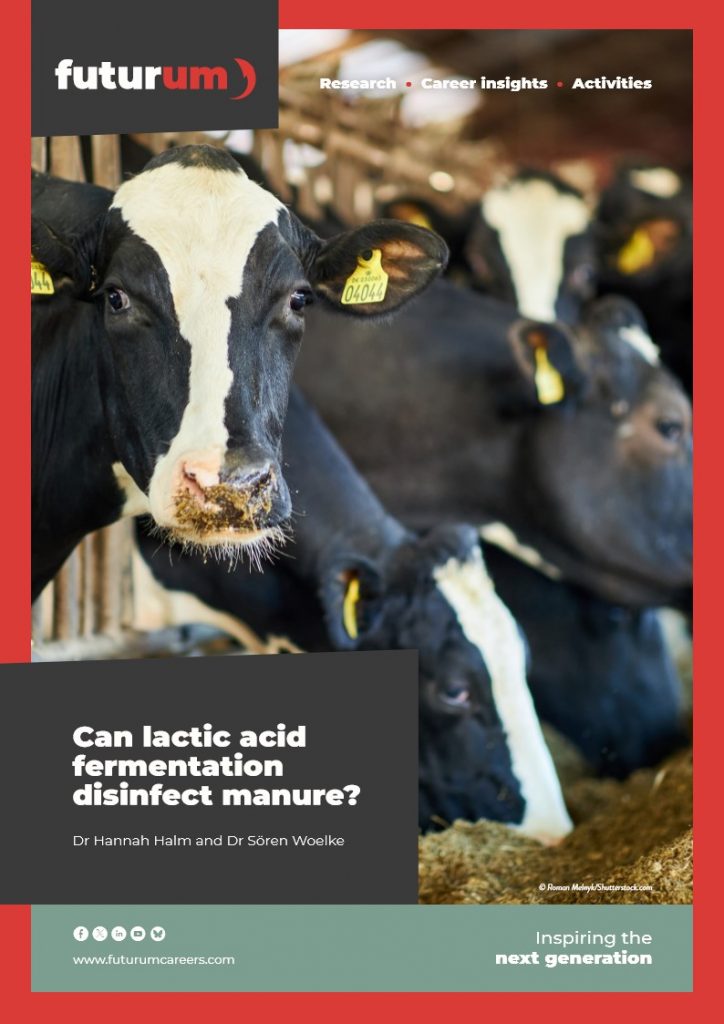
![Focusing on the positives and joyful moments in our lives can help us to build resilience, cope with challenges and be the best we can be. But can an app […]](https://futurumcareers.com/wp-content/uploads/2019/03/app-400x284.png)
